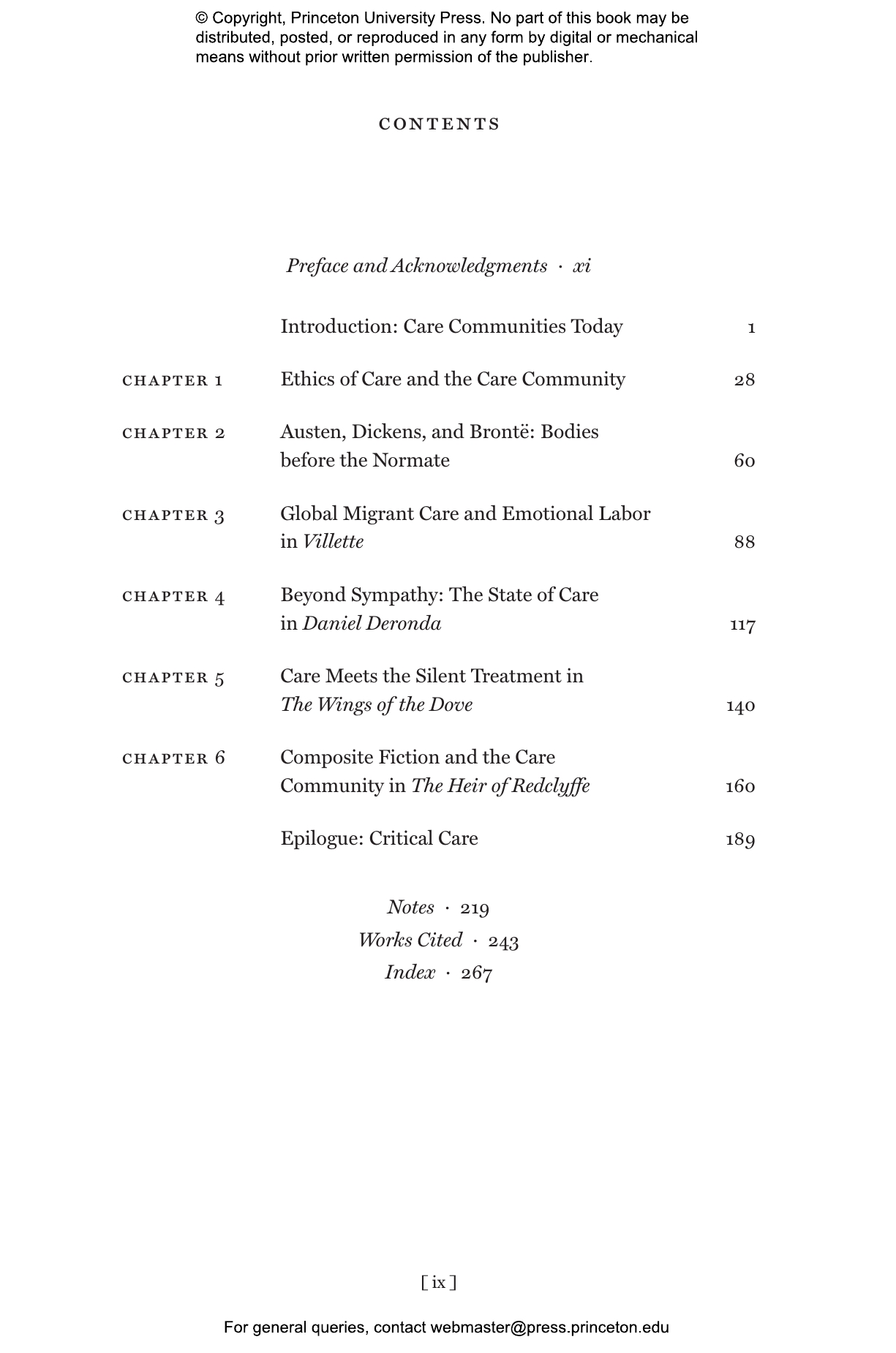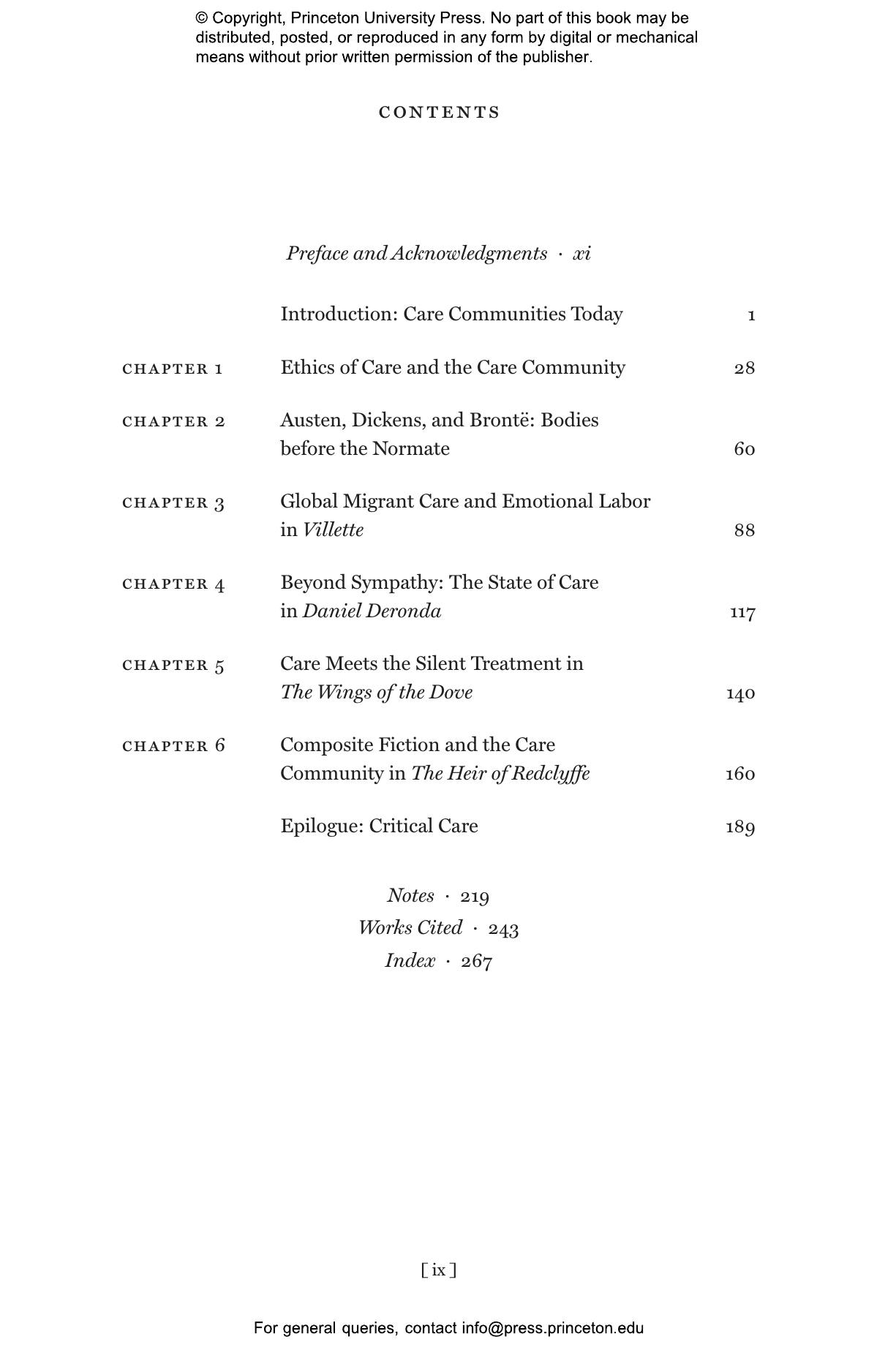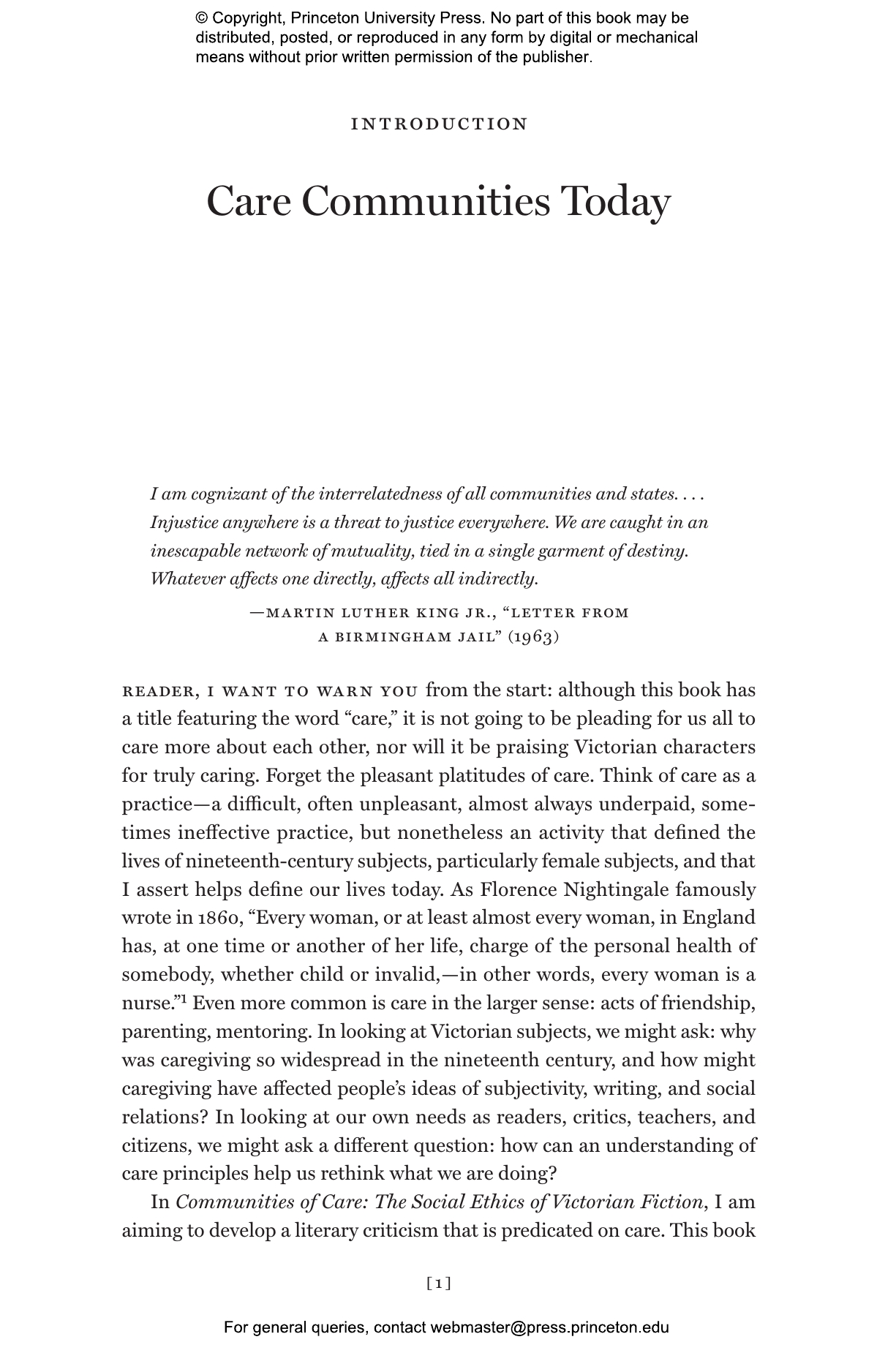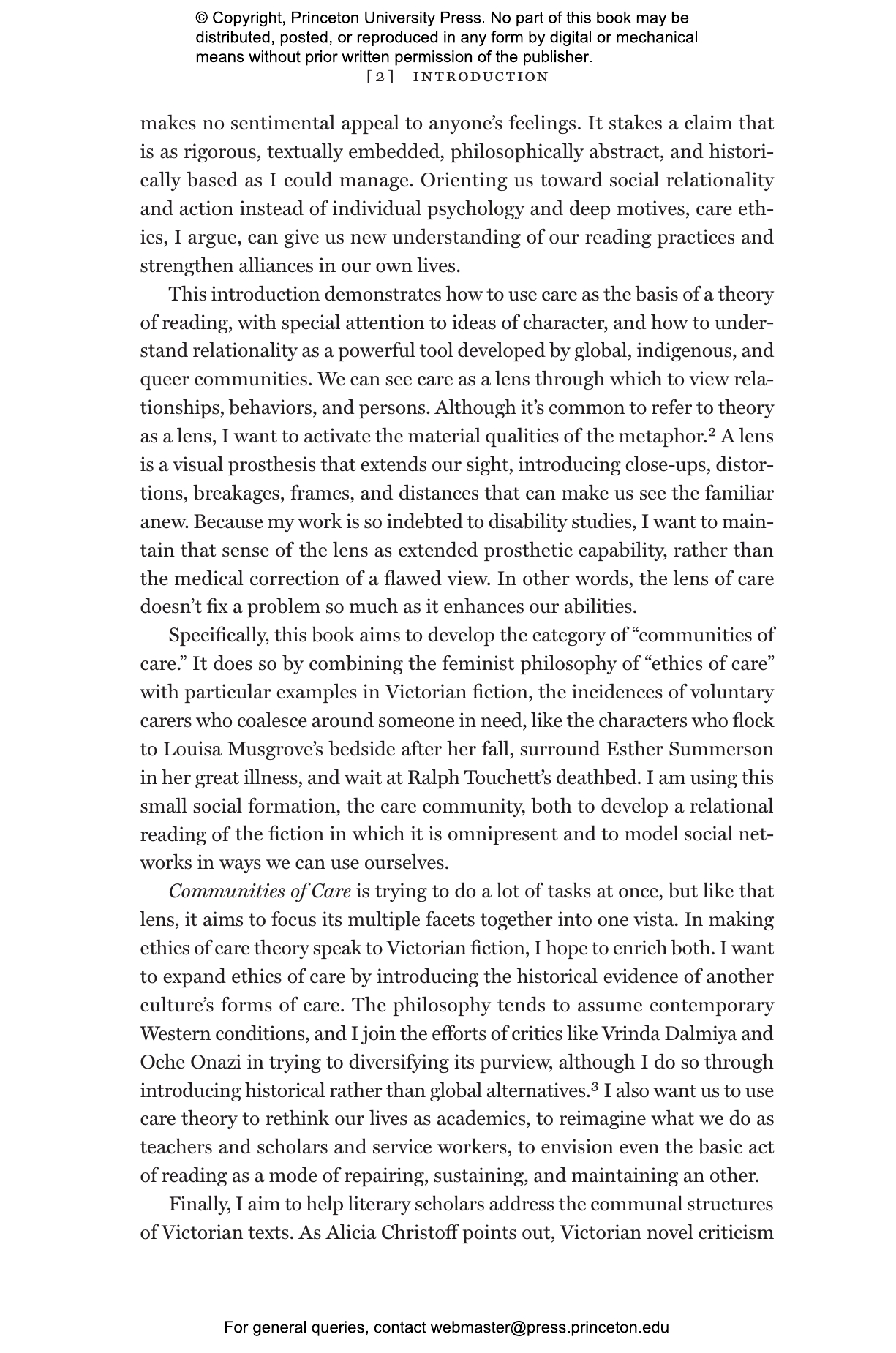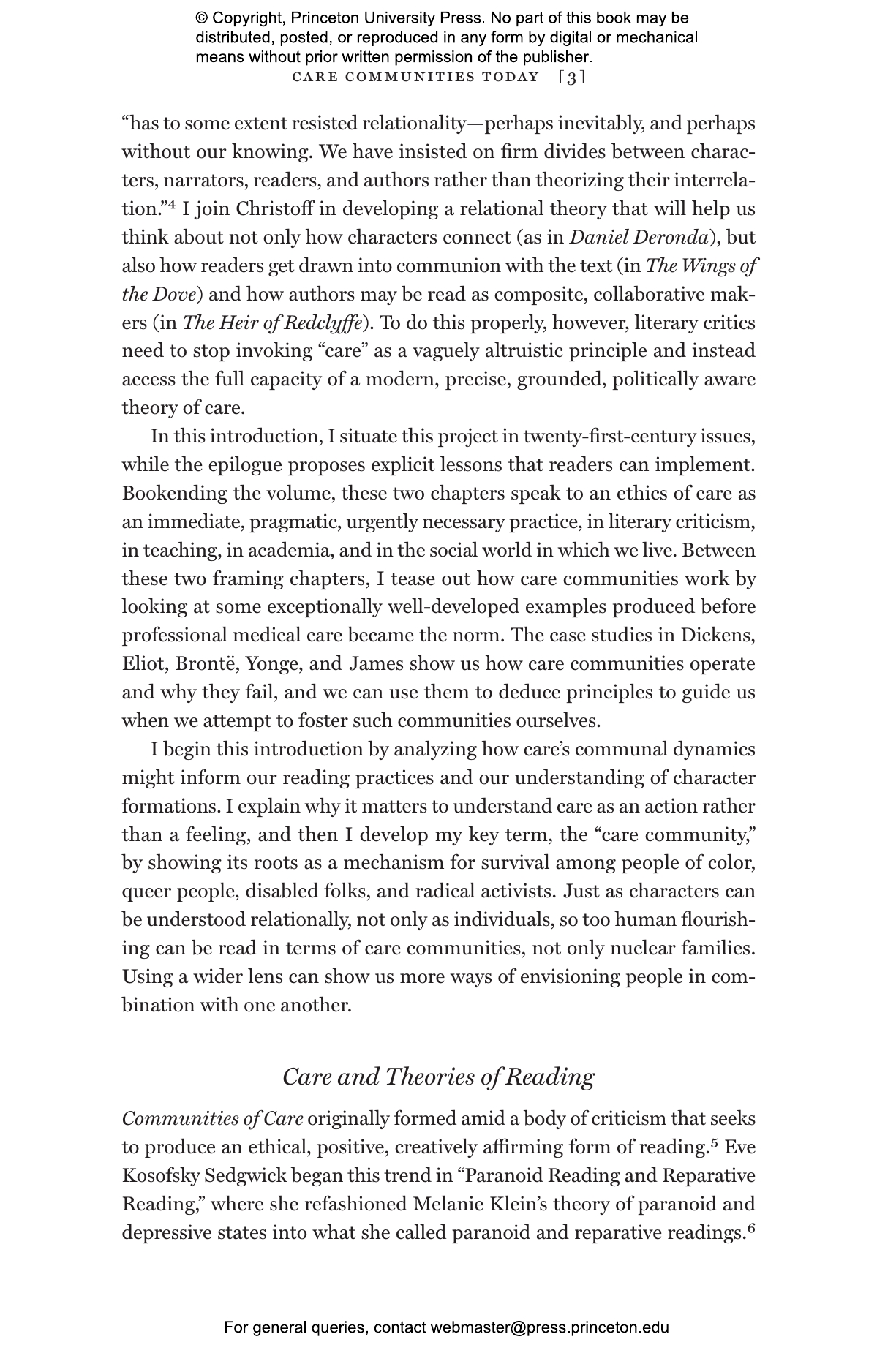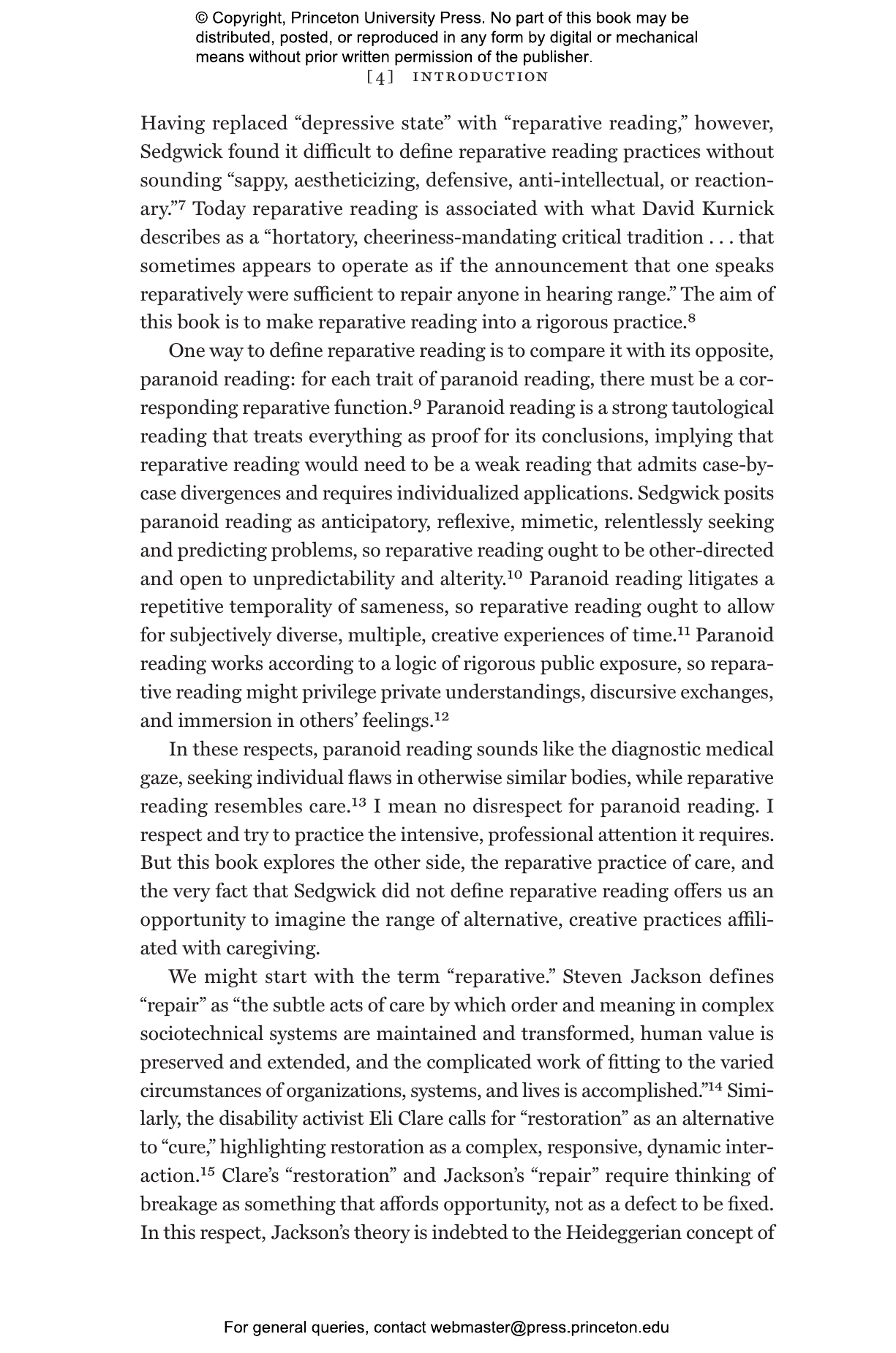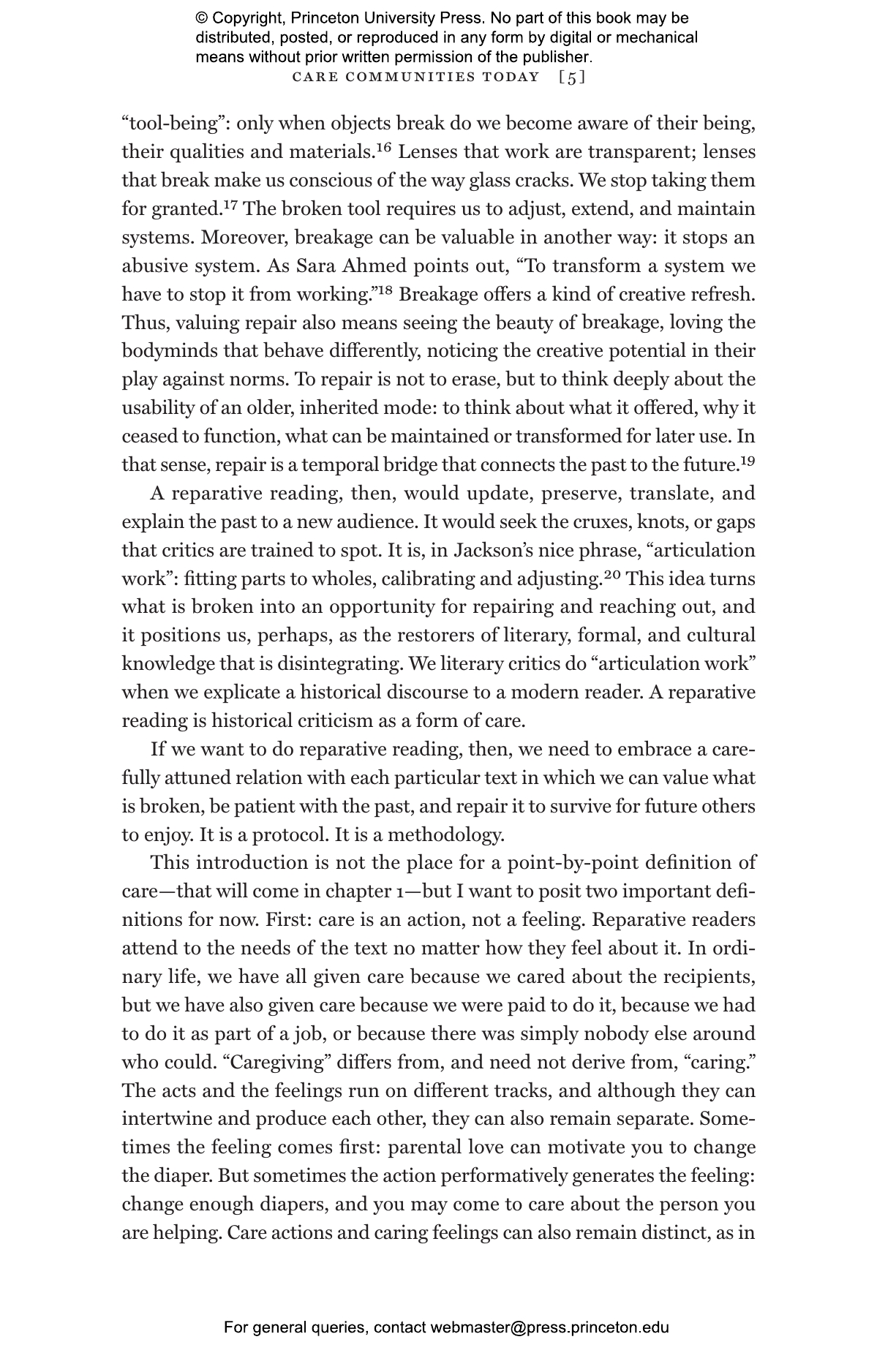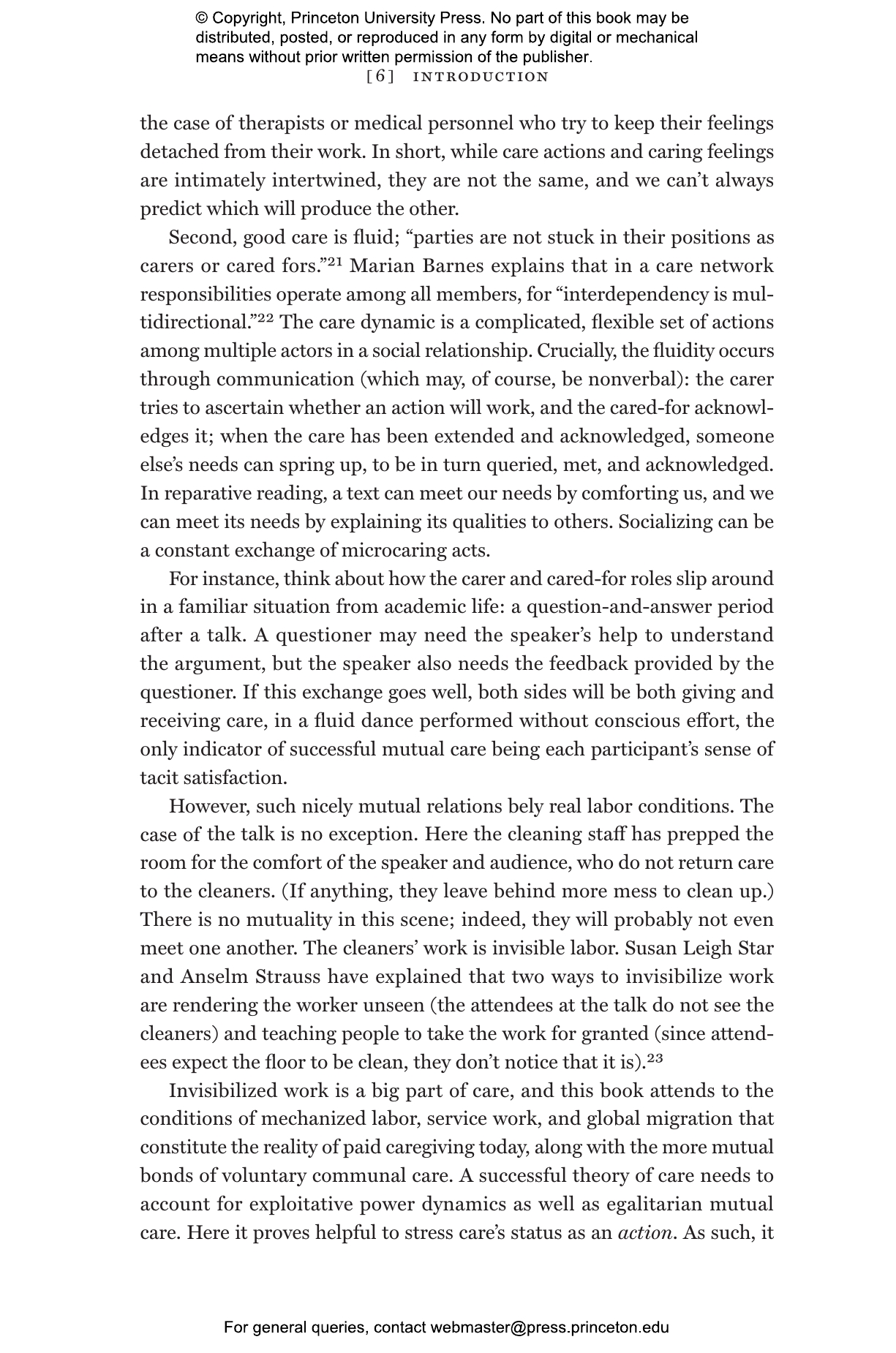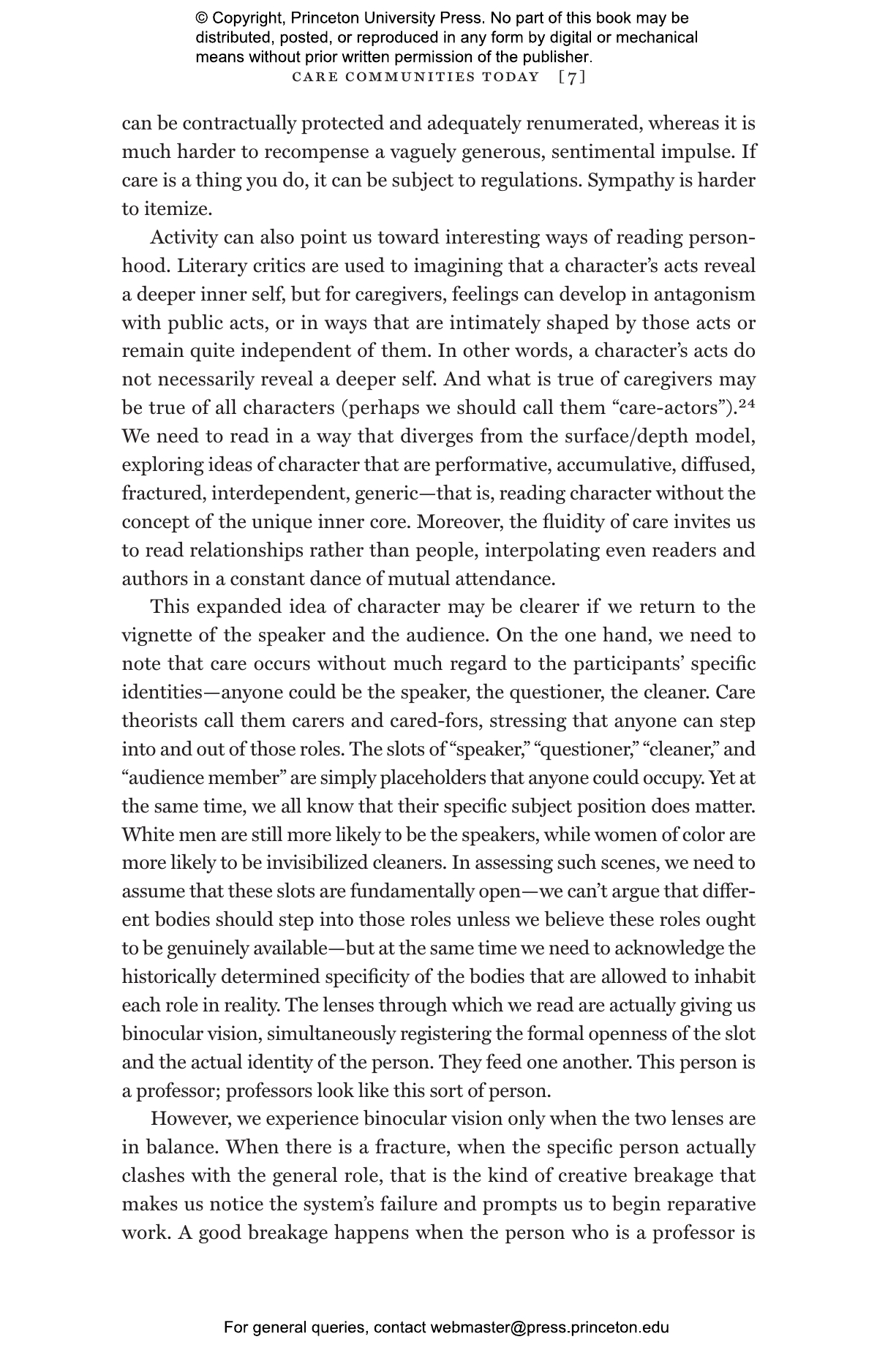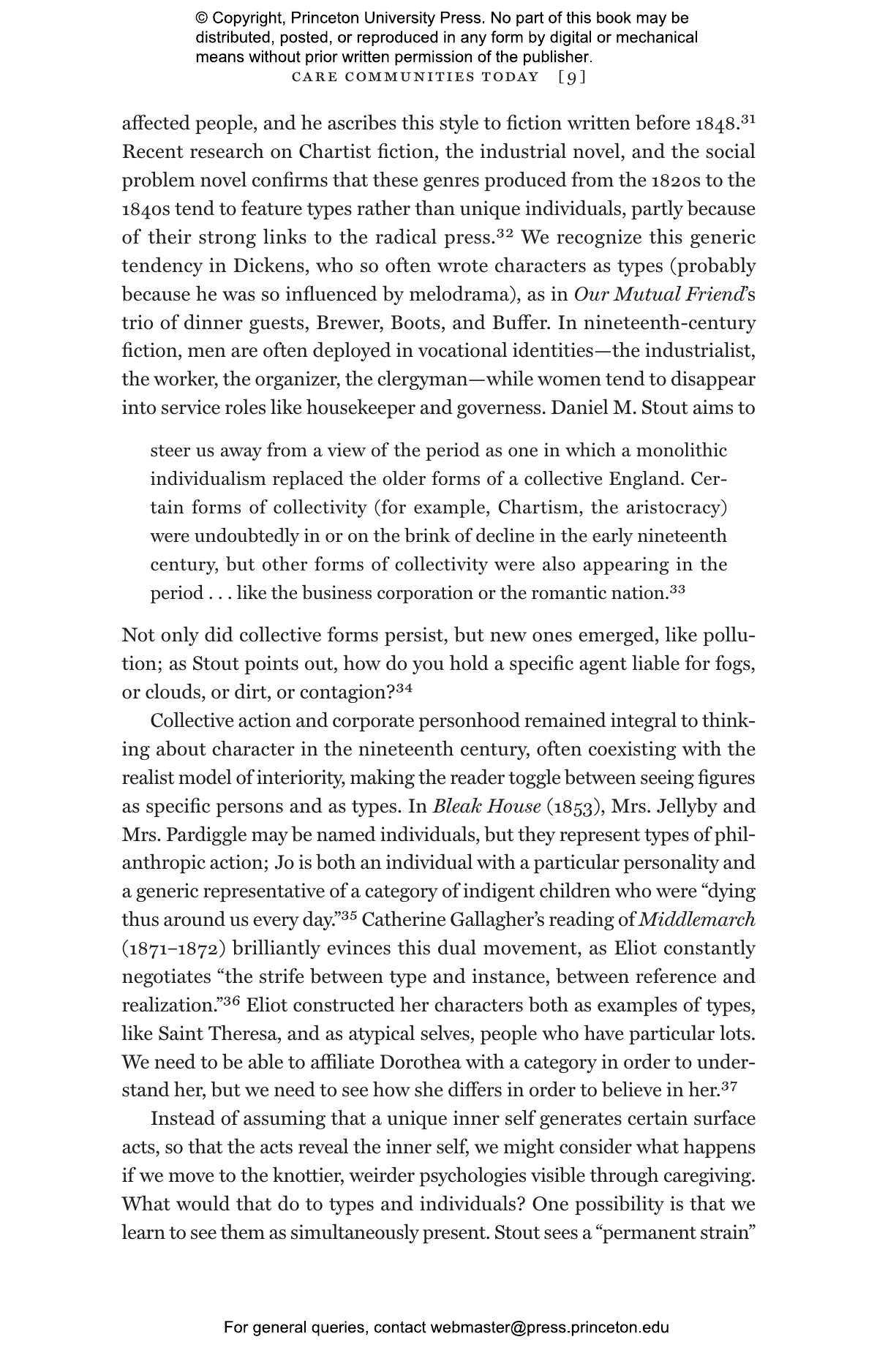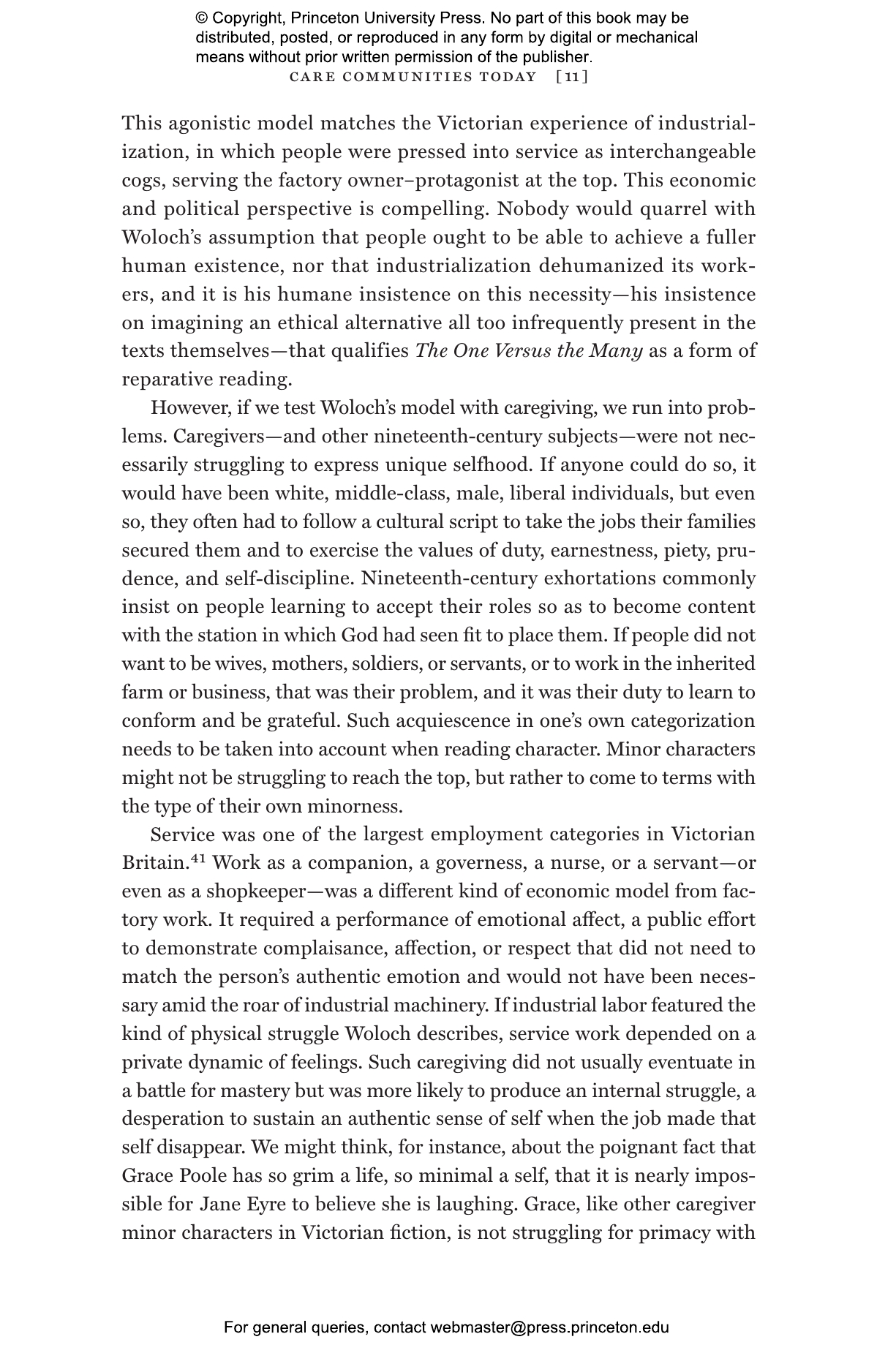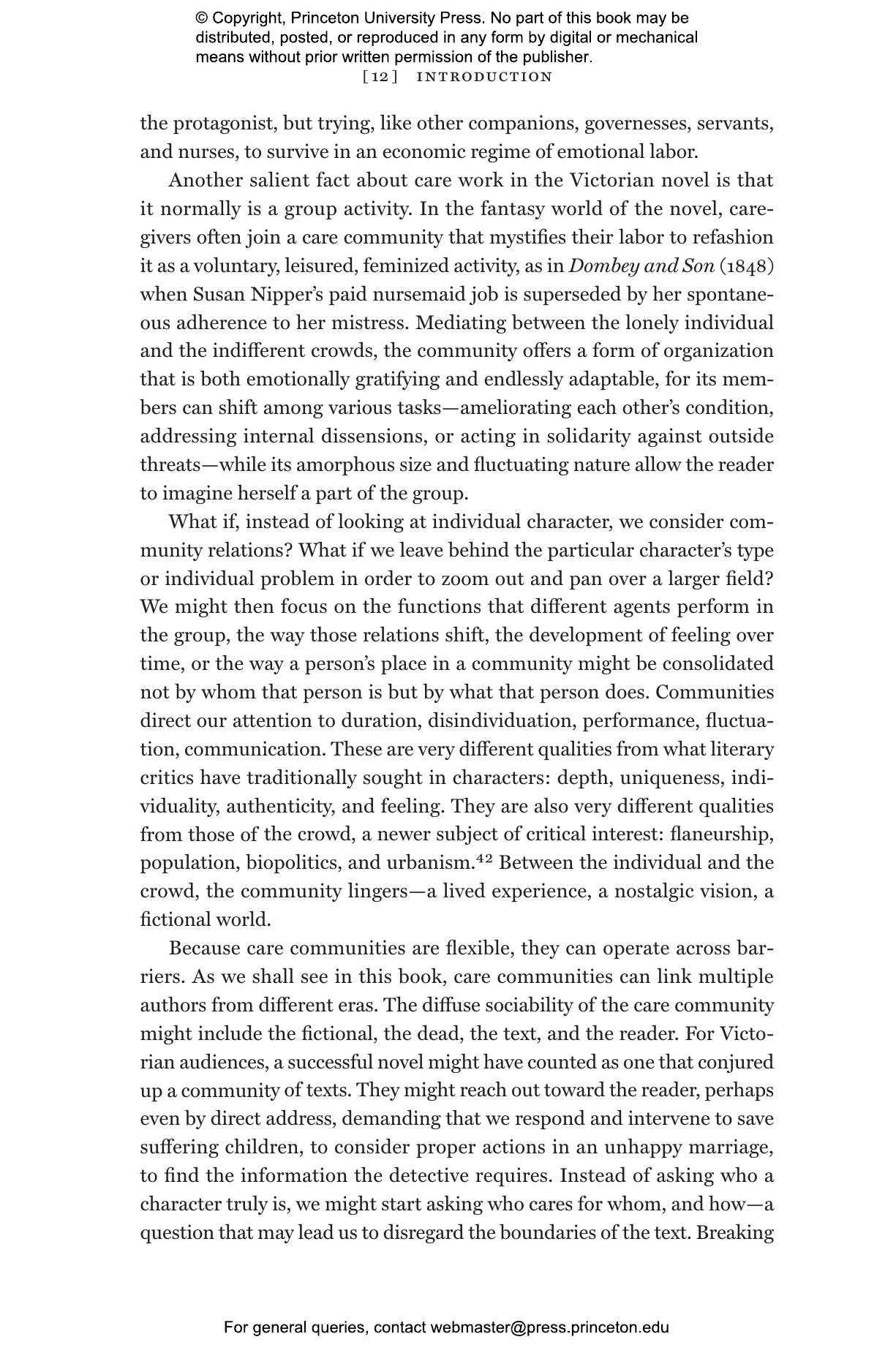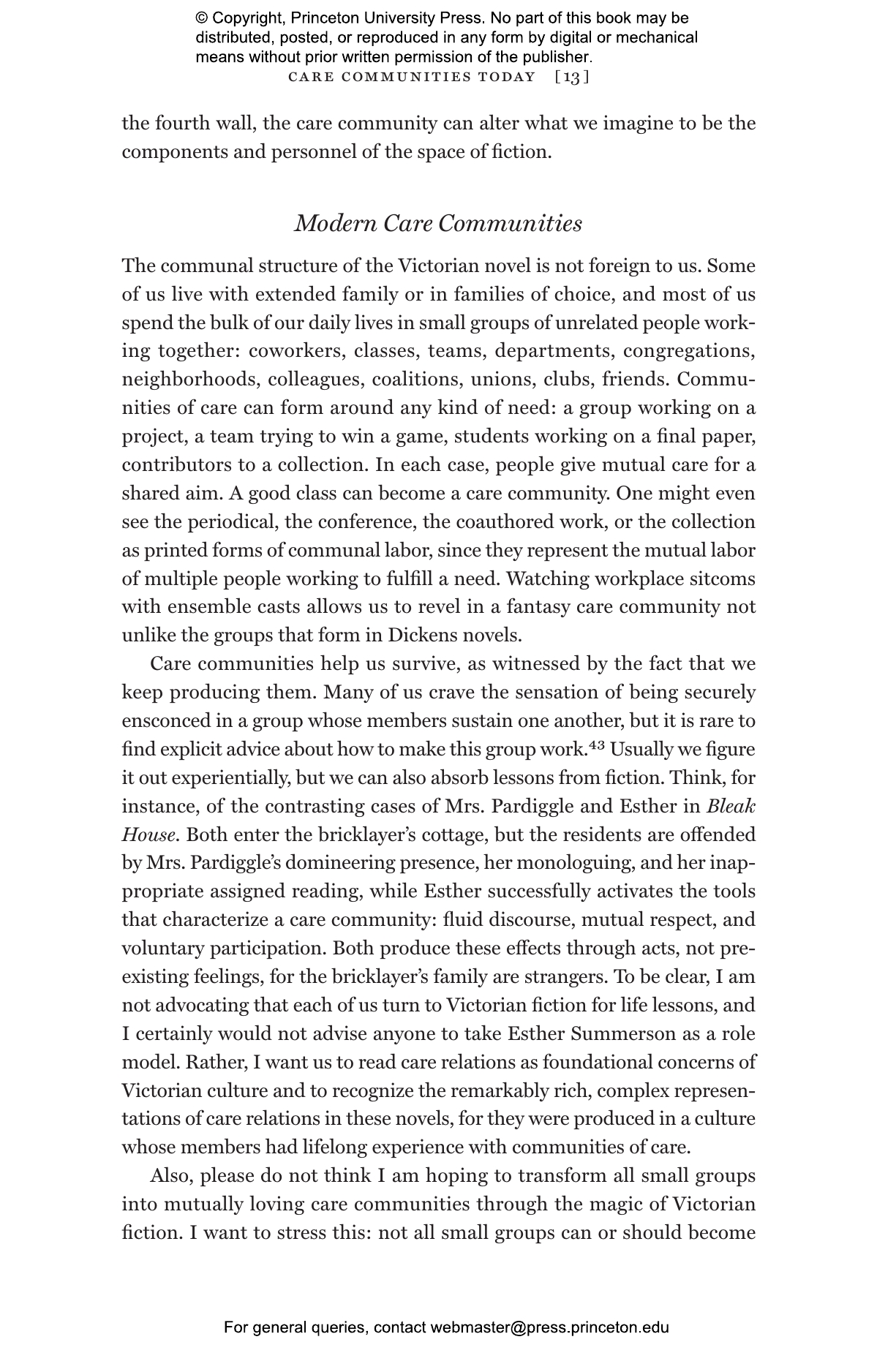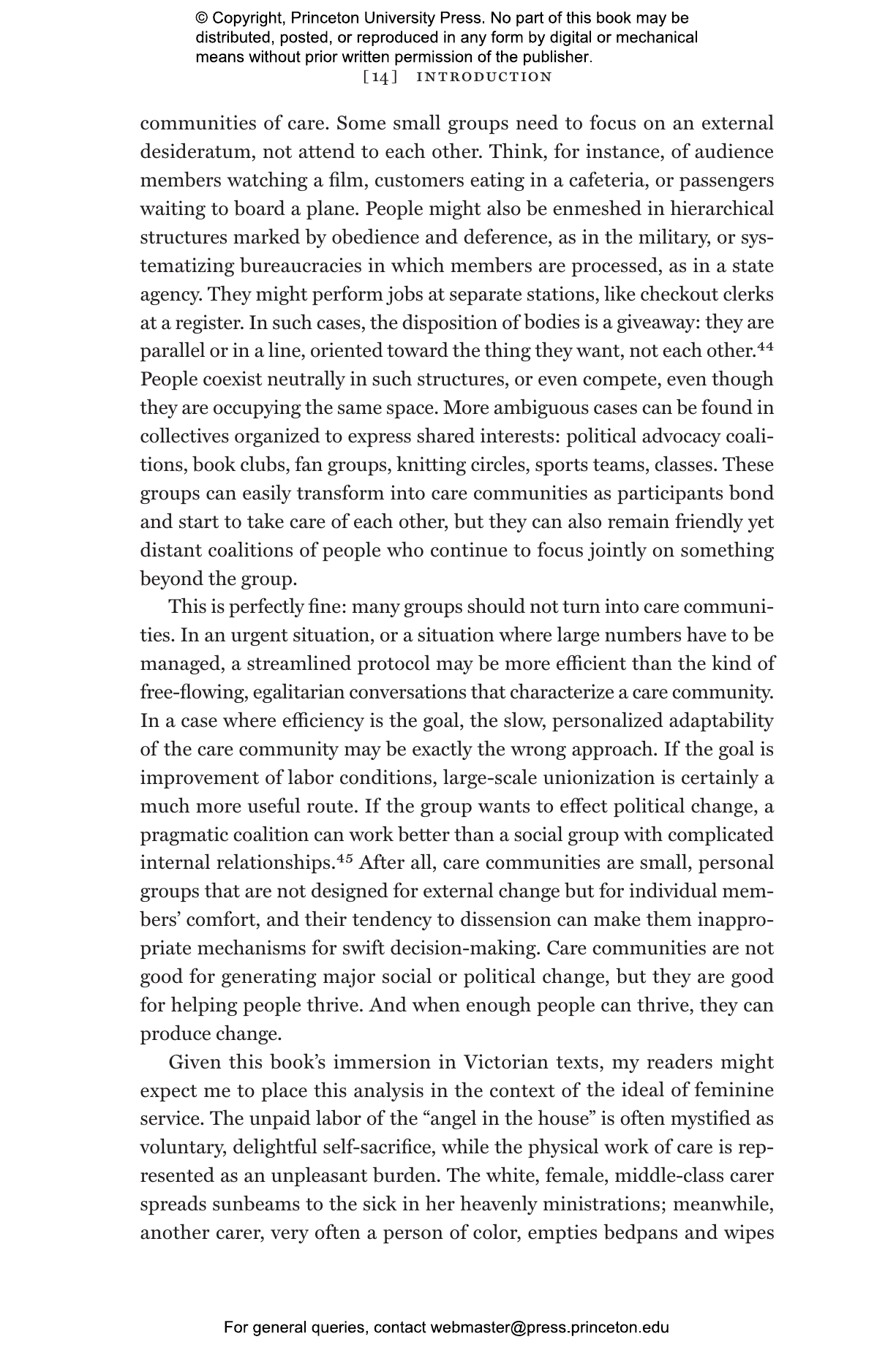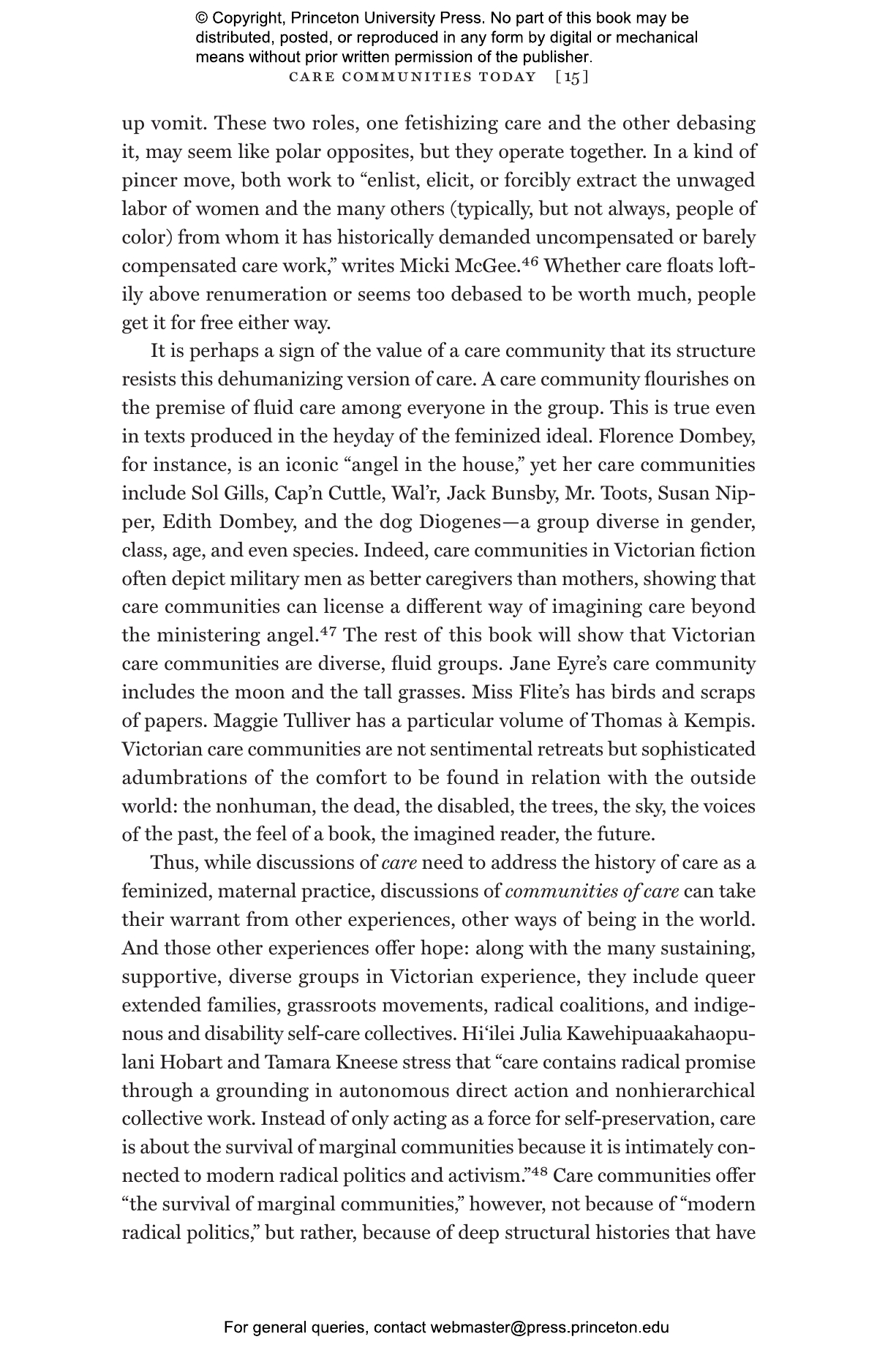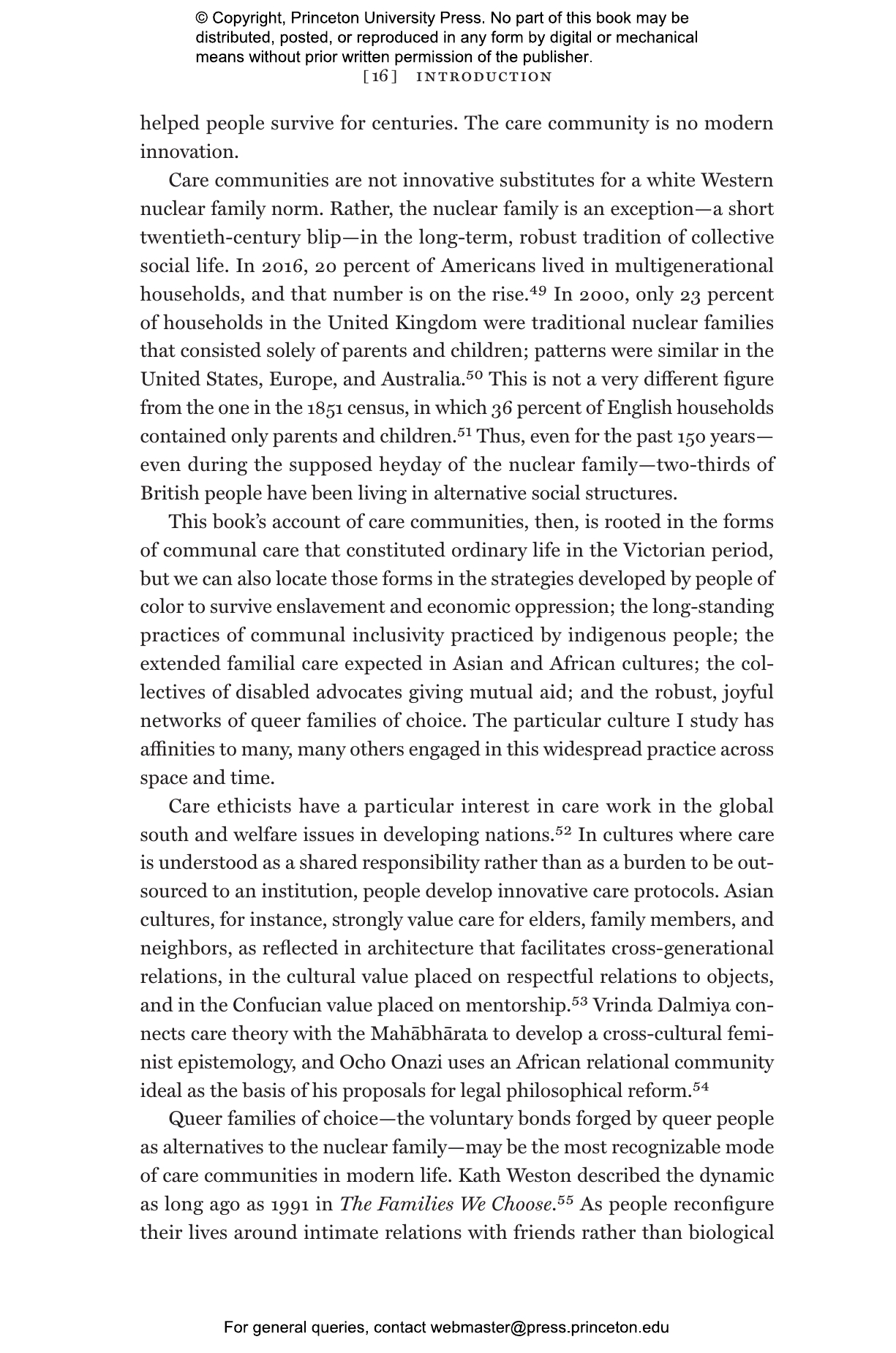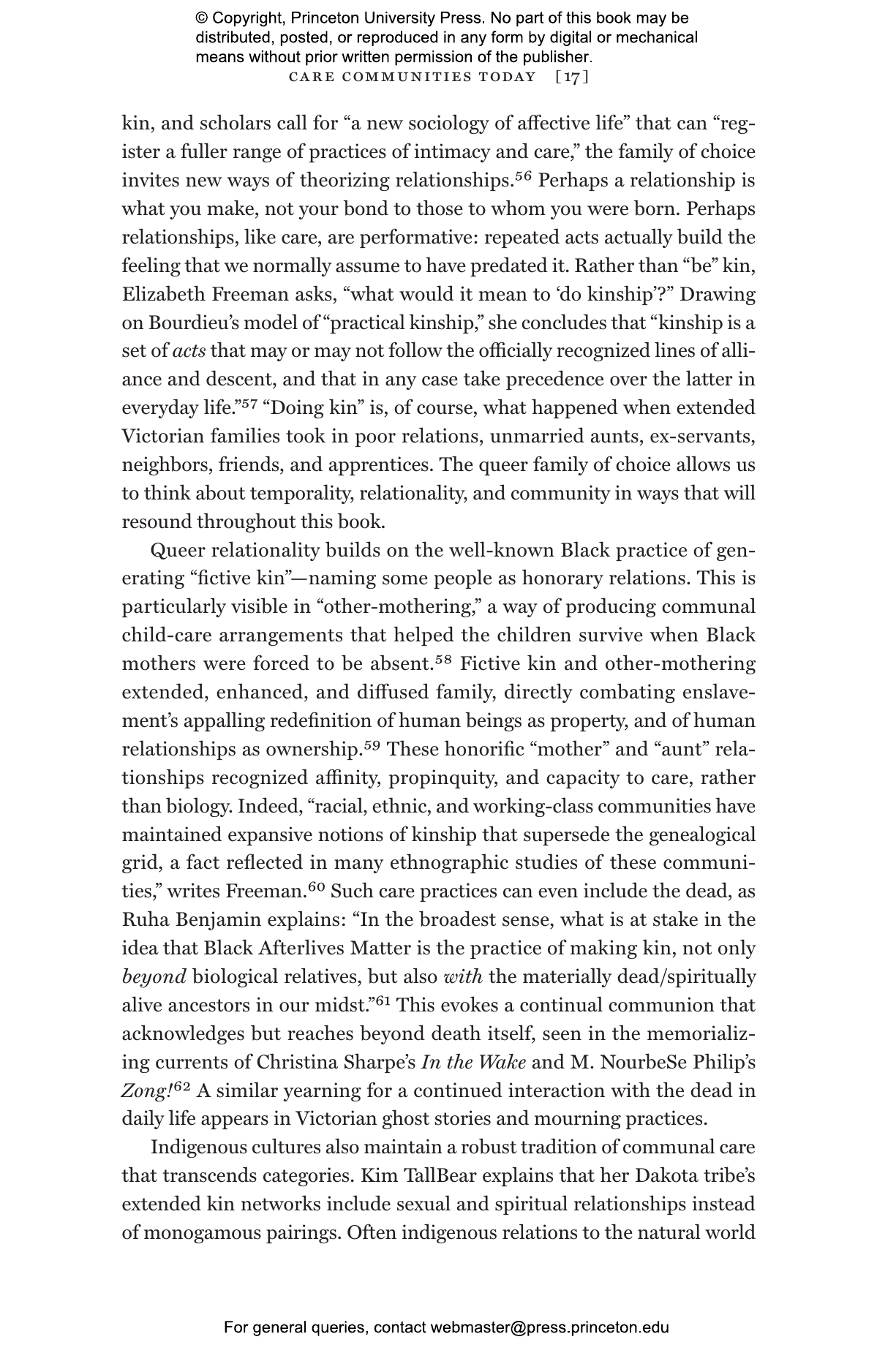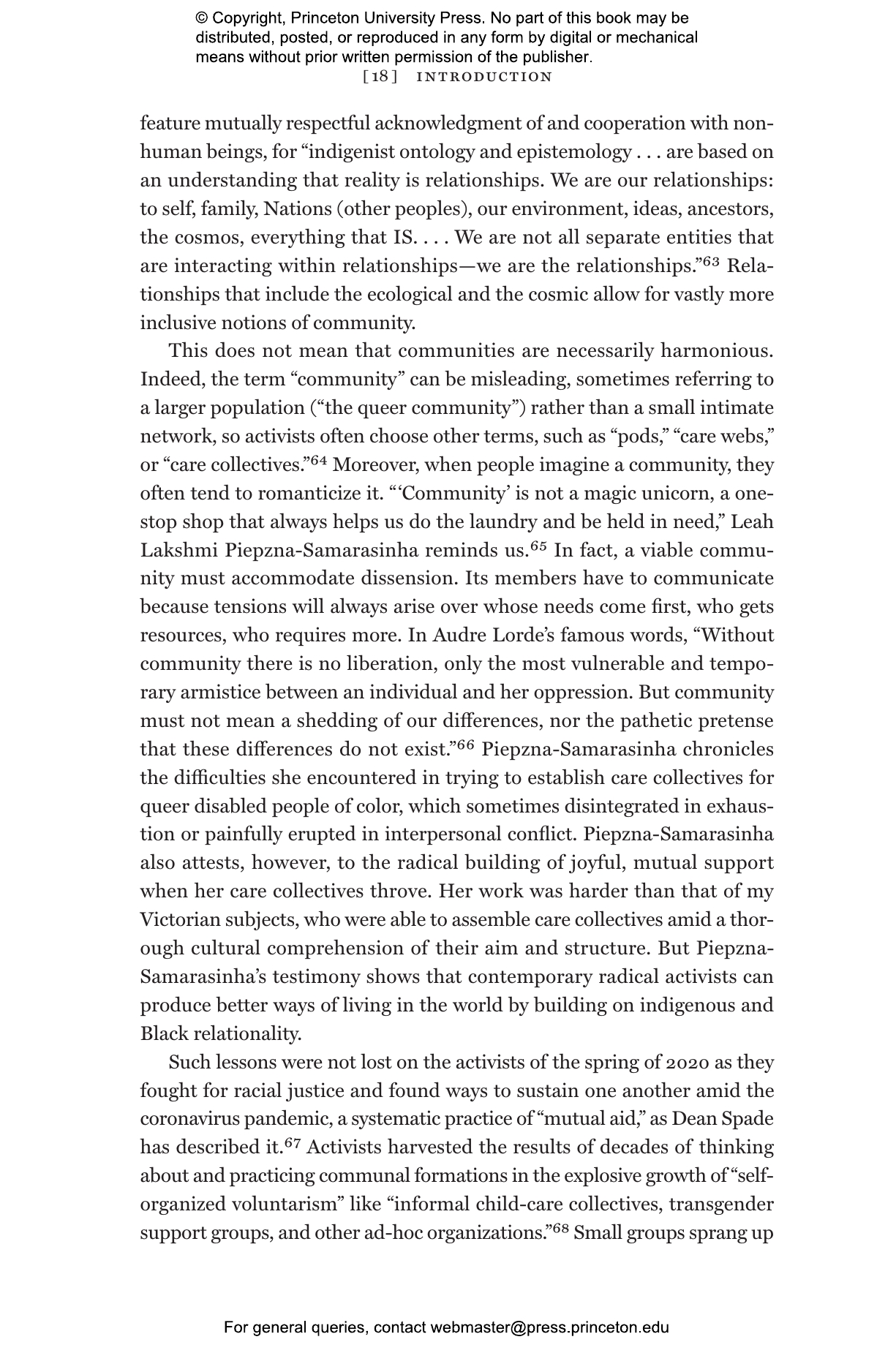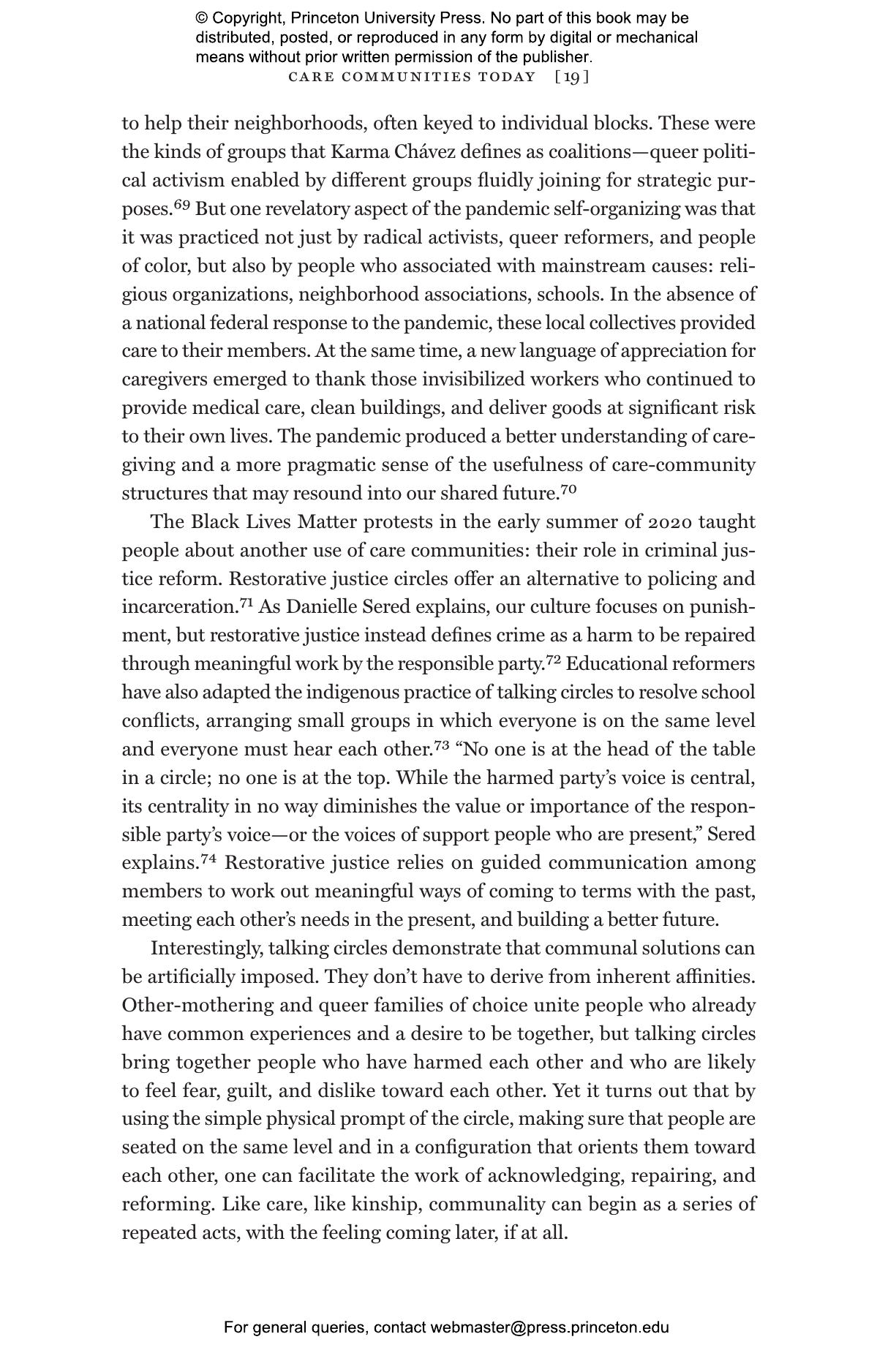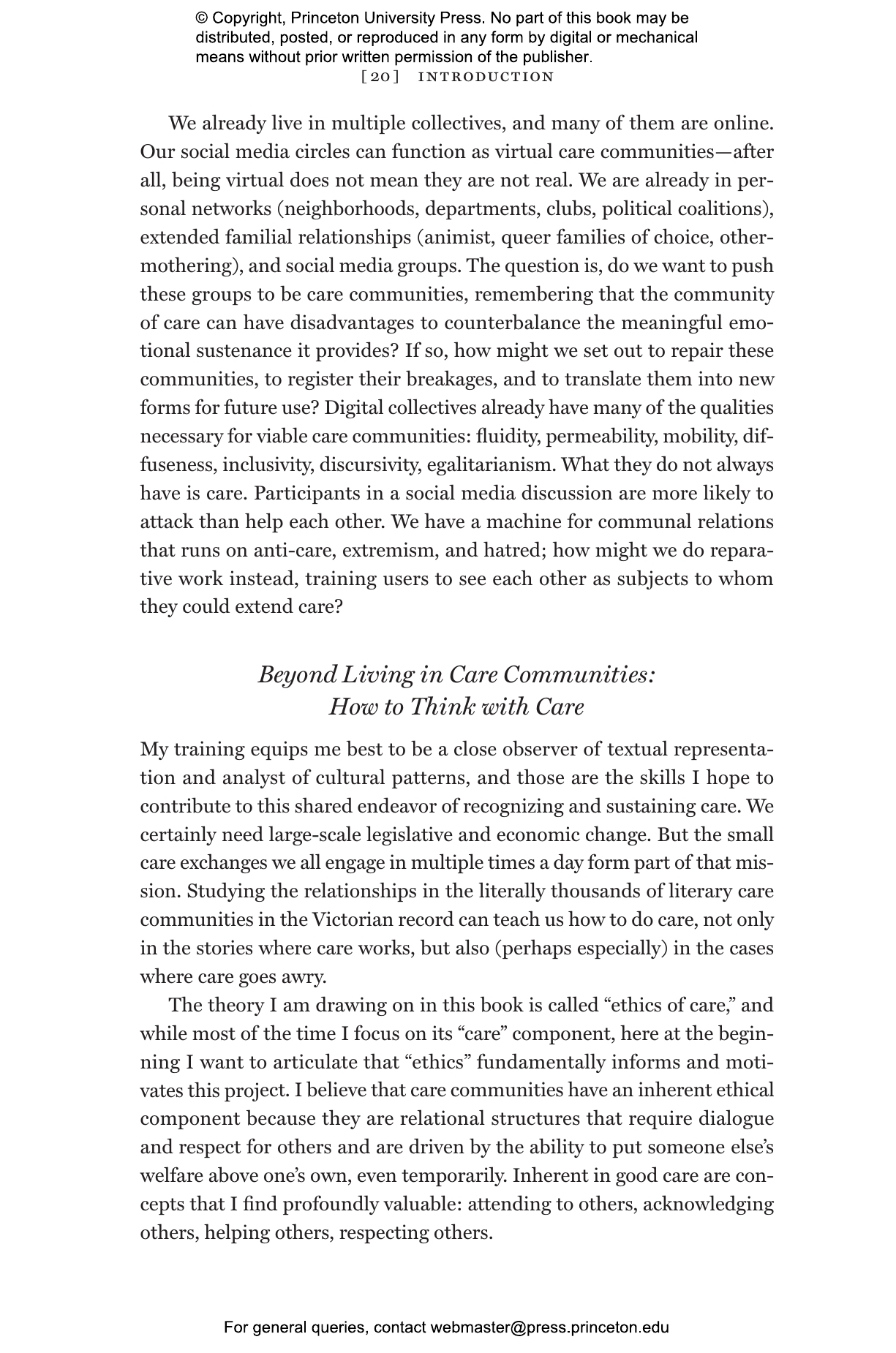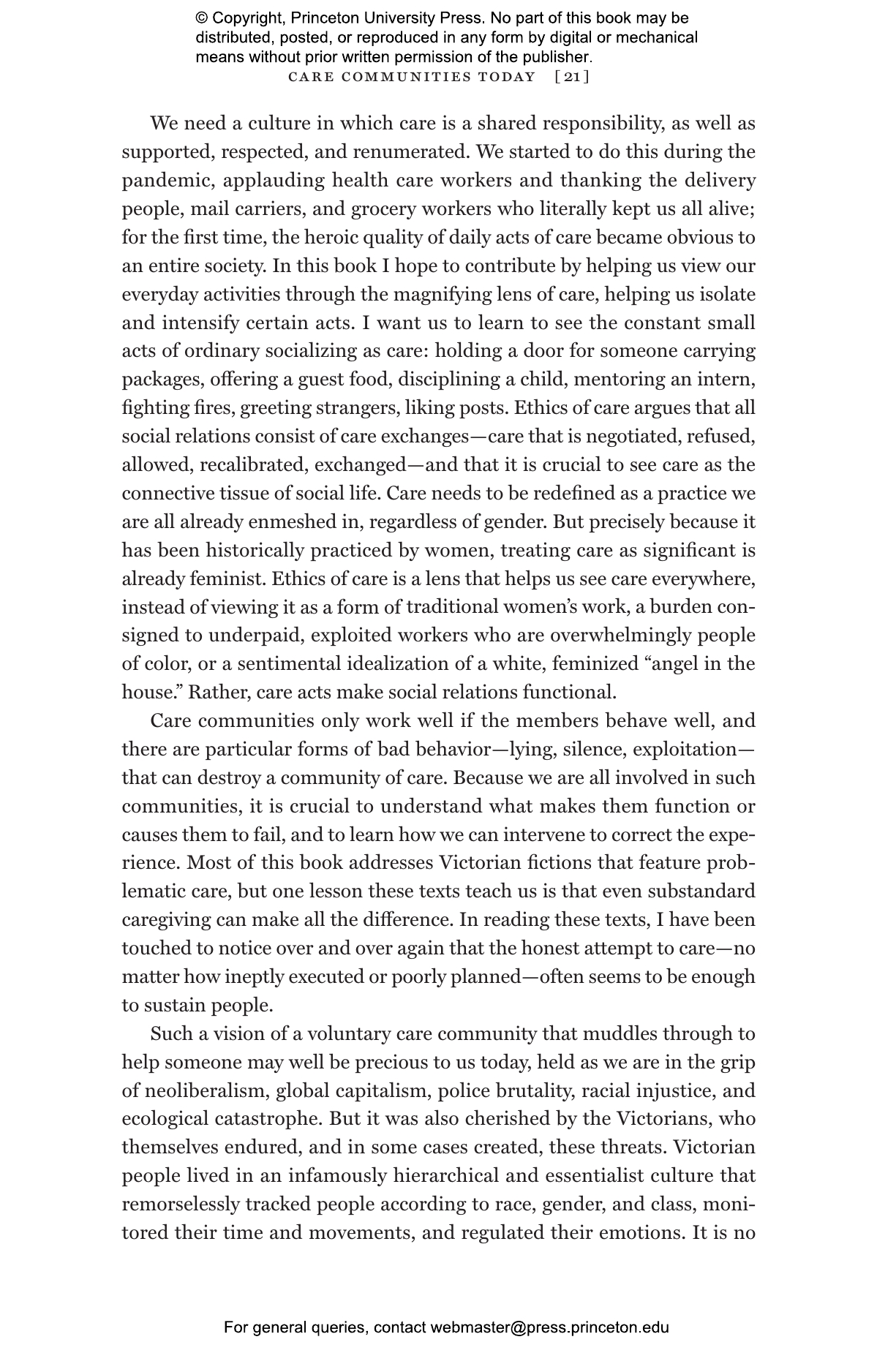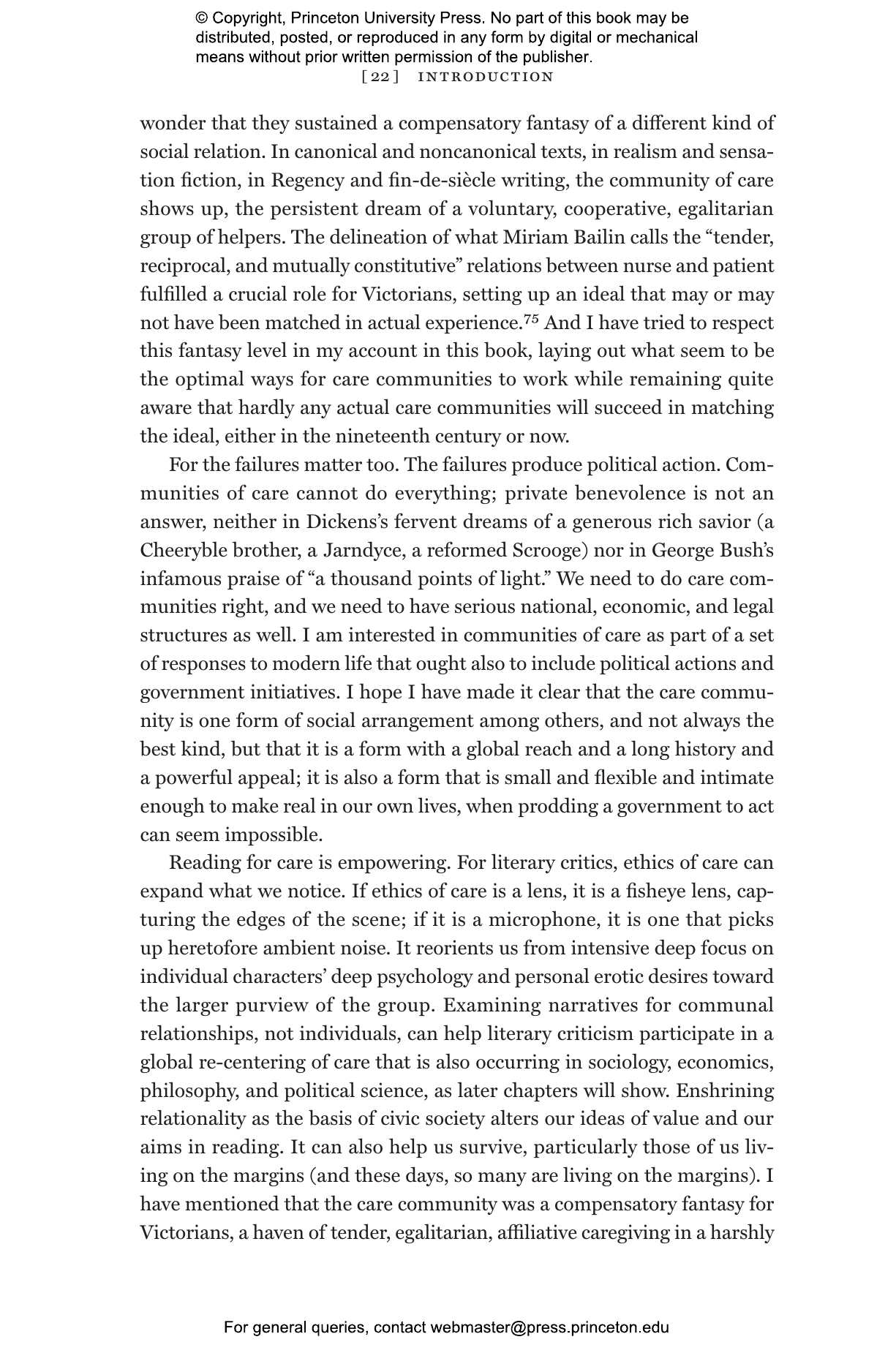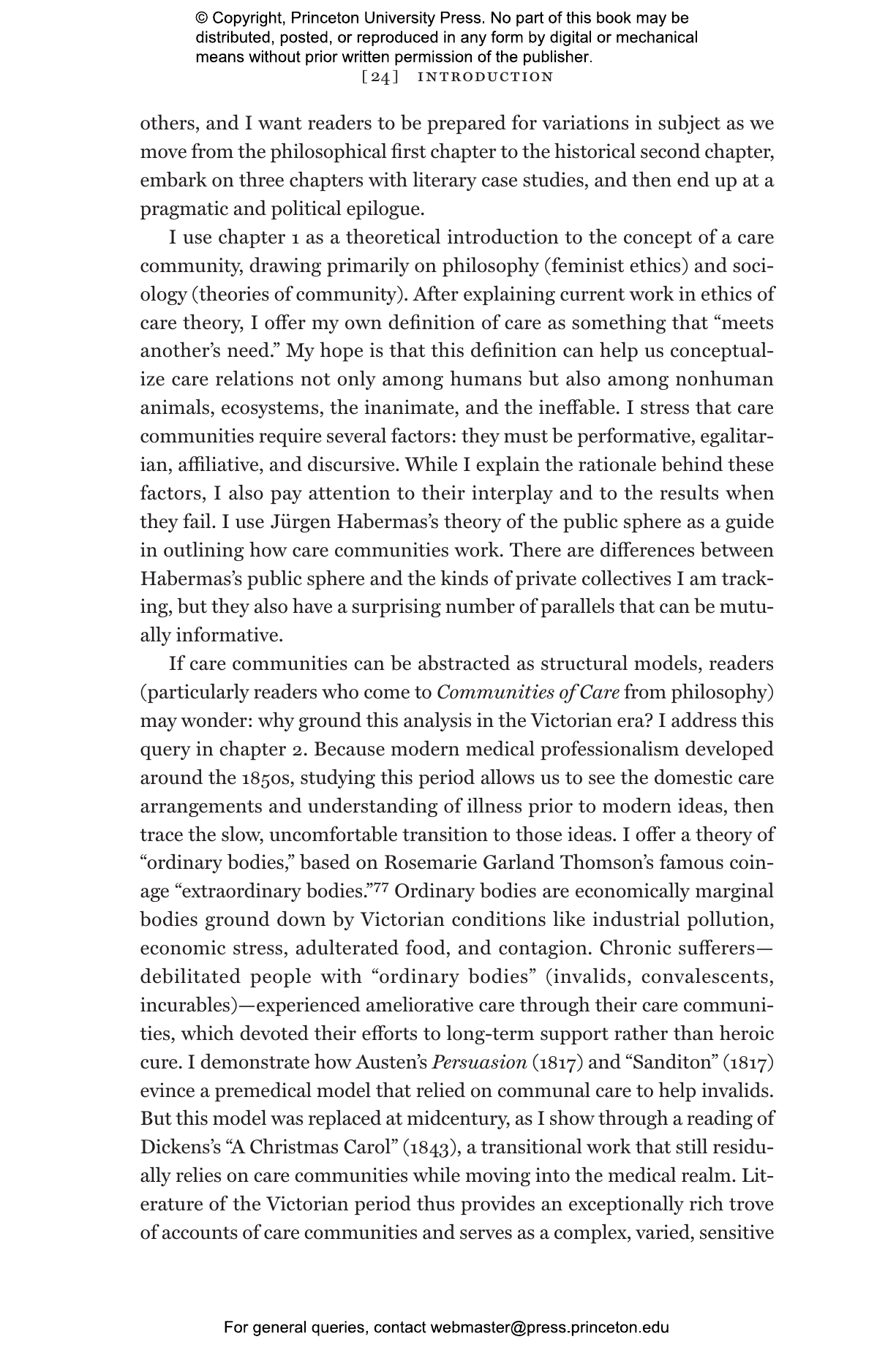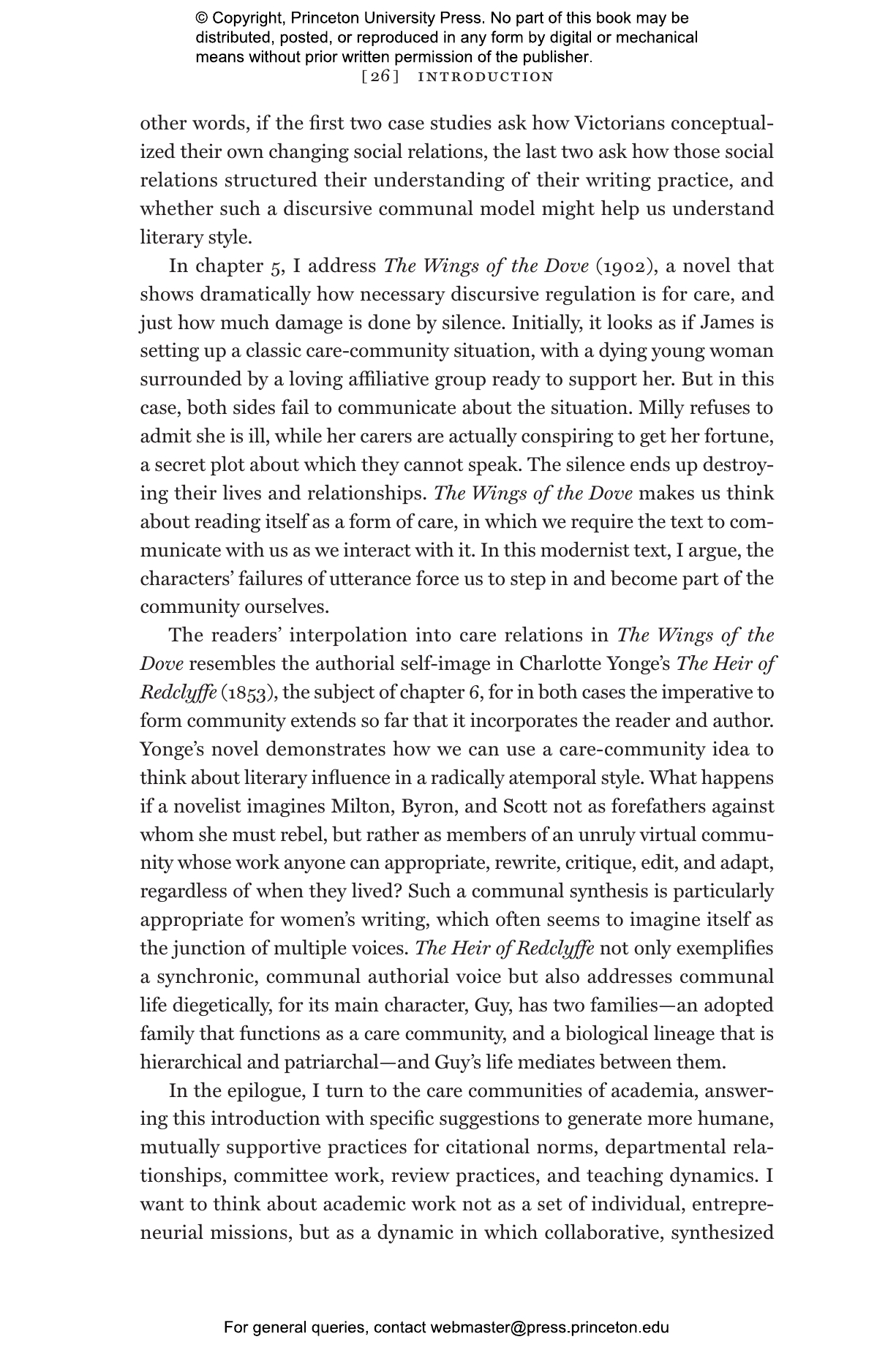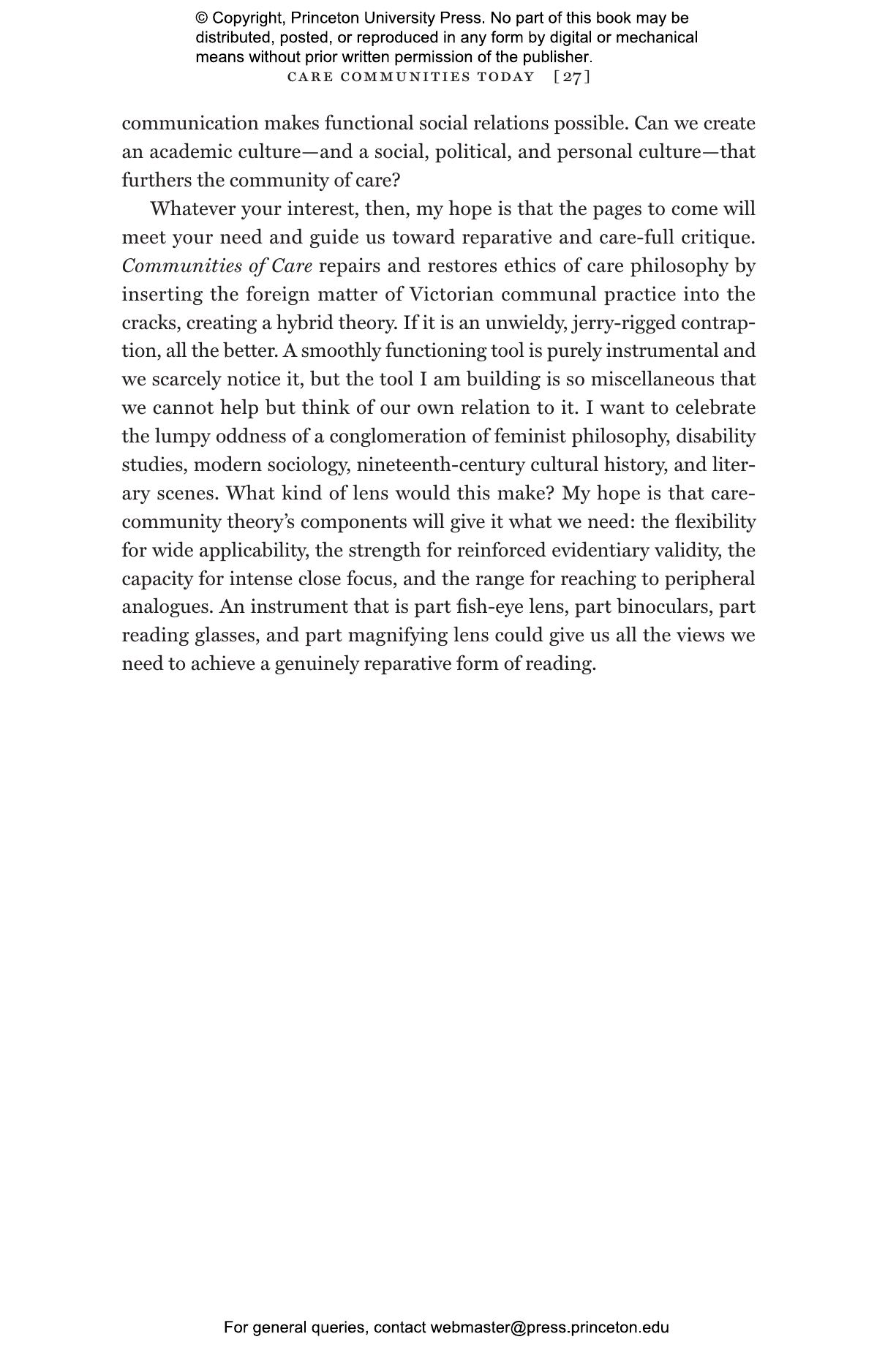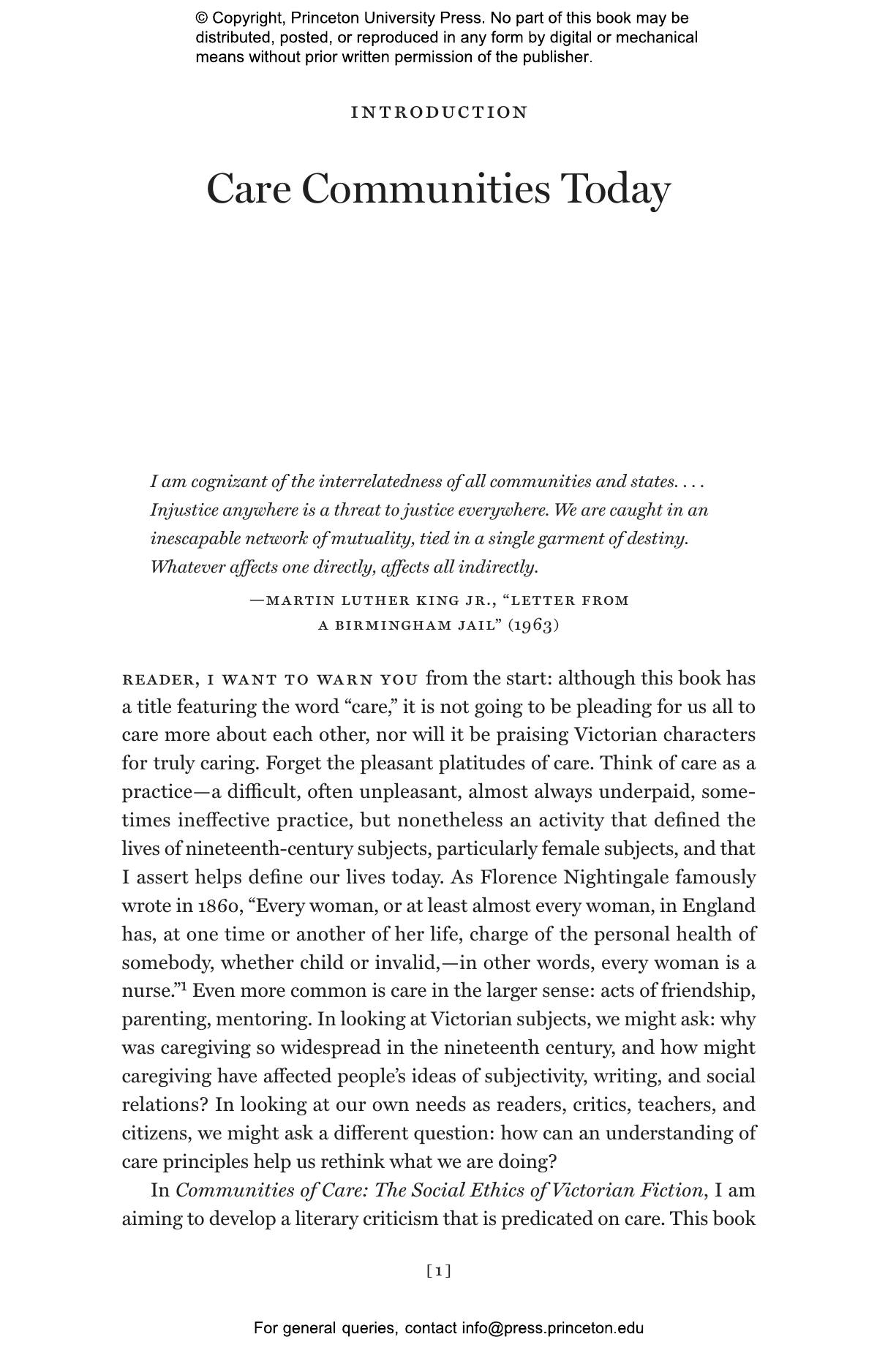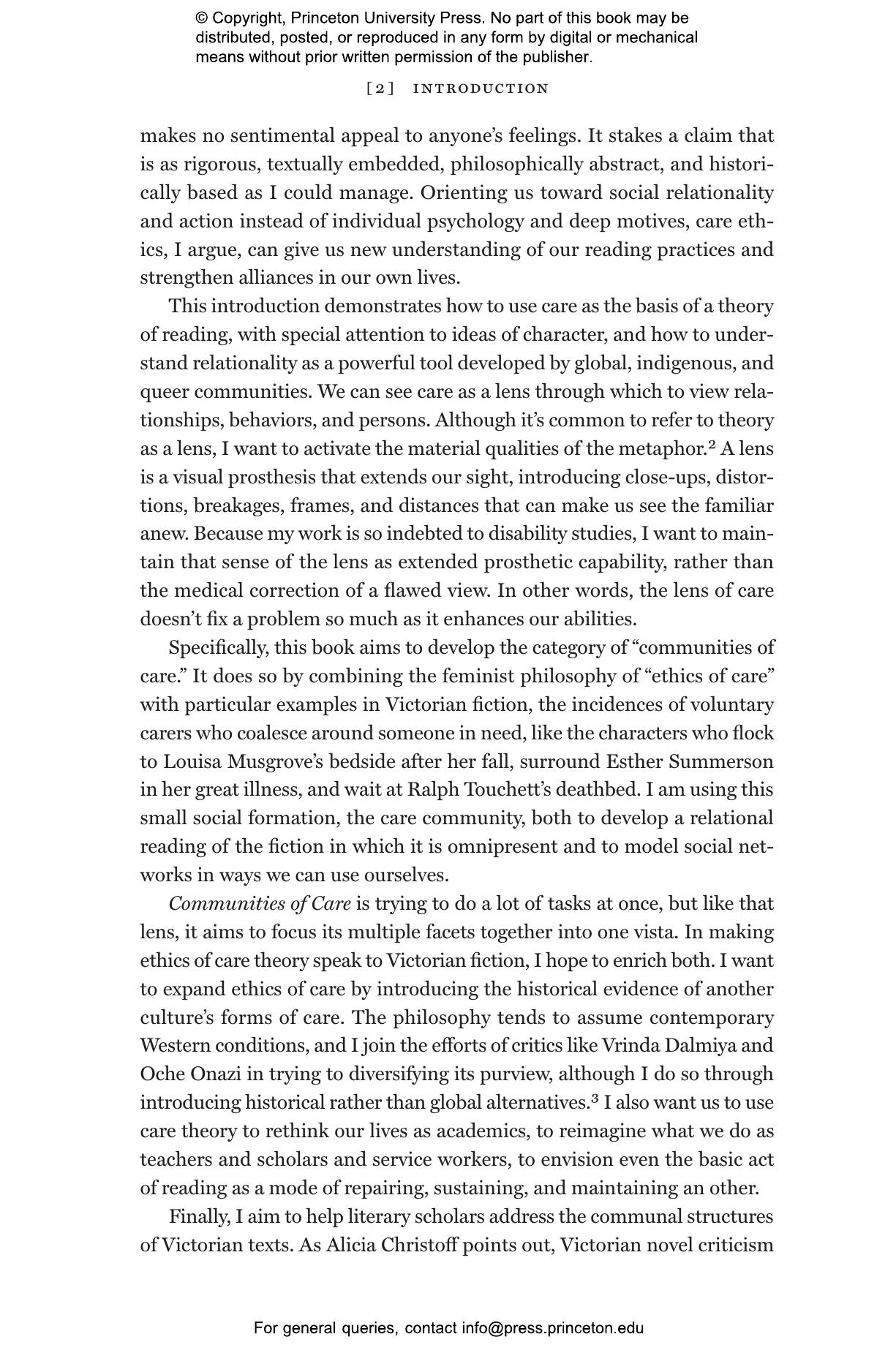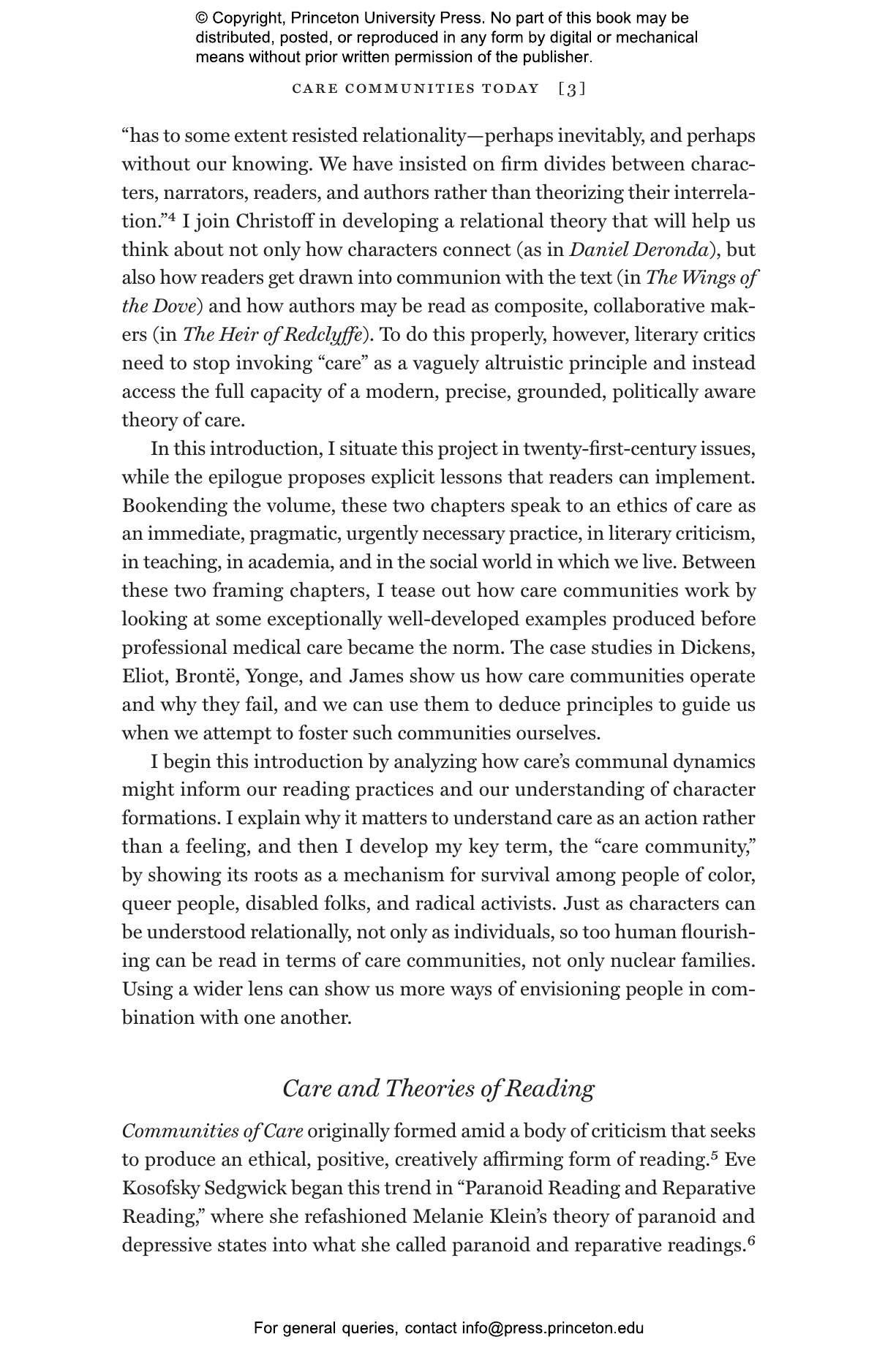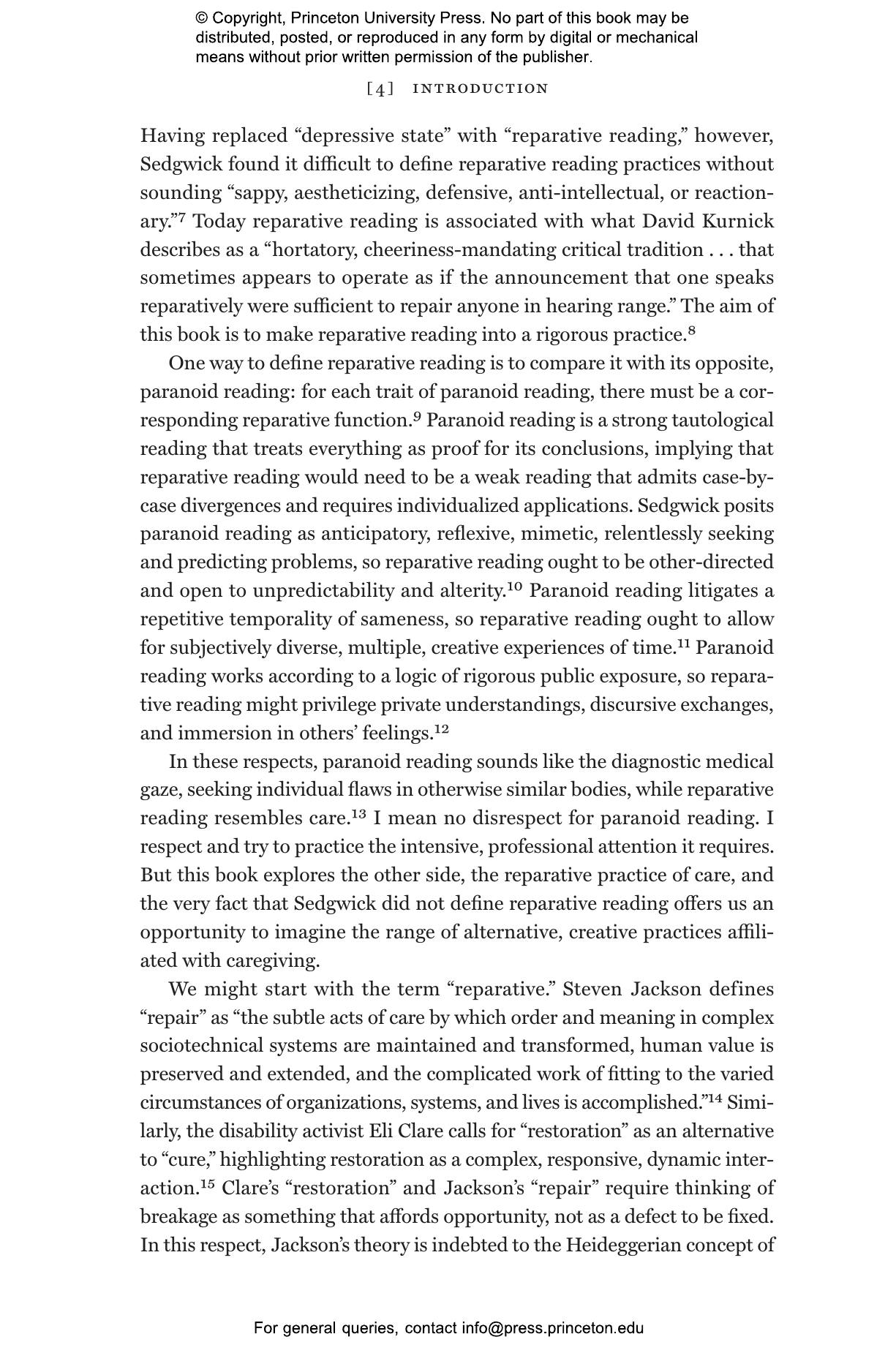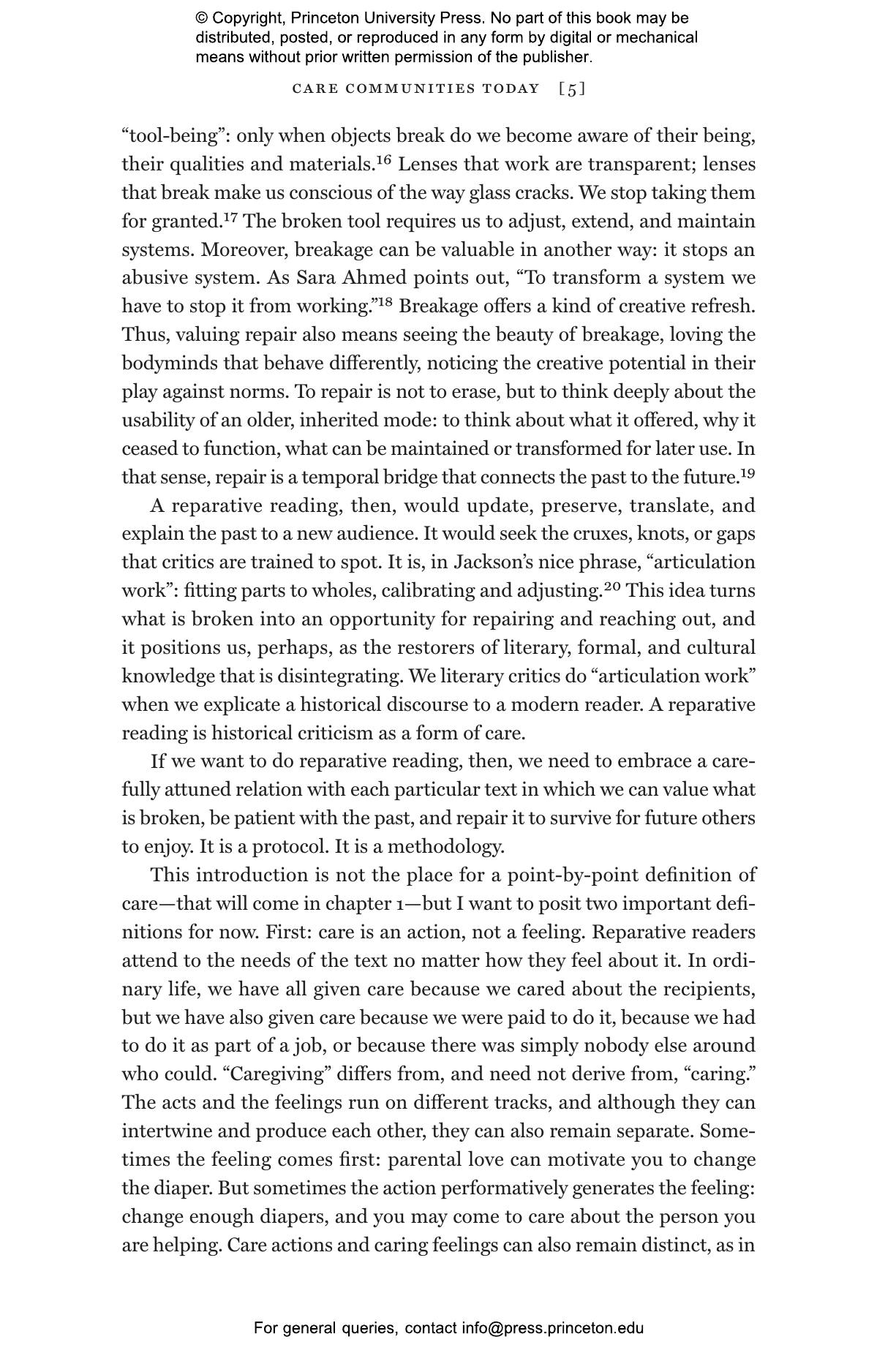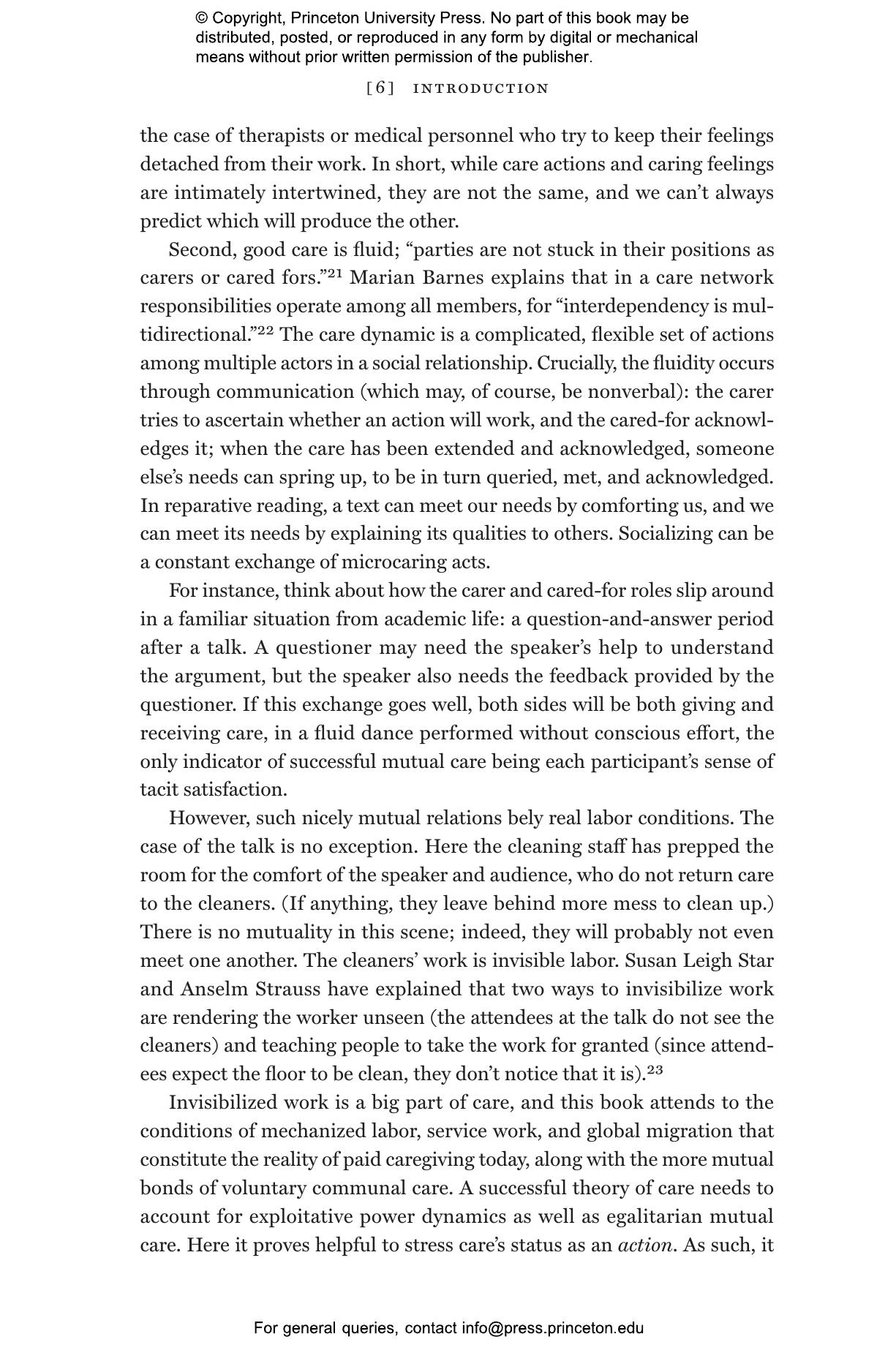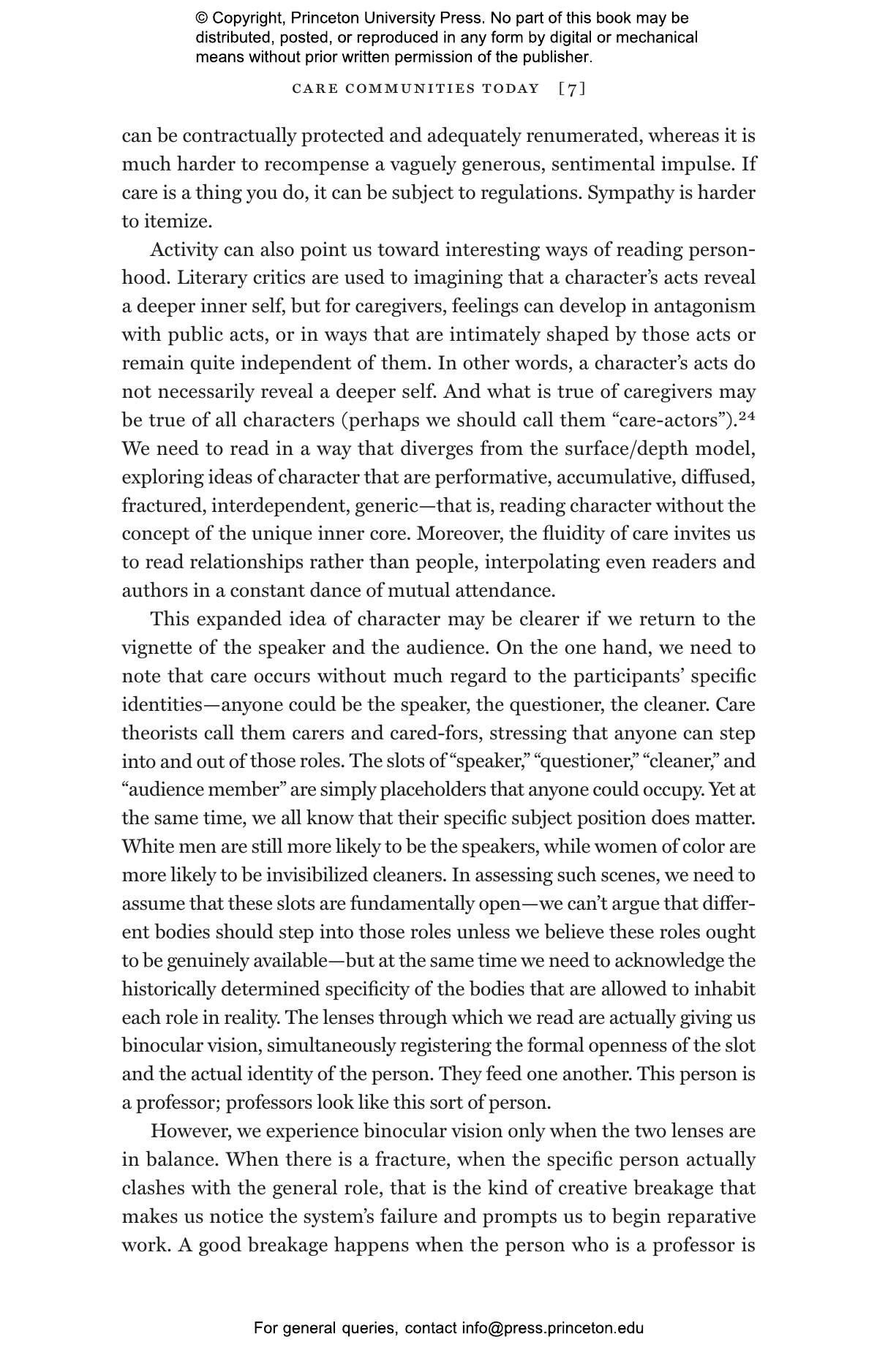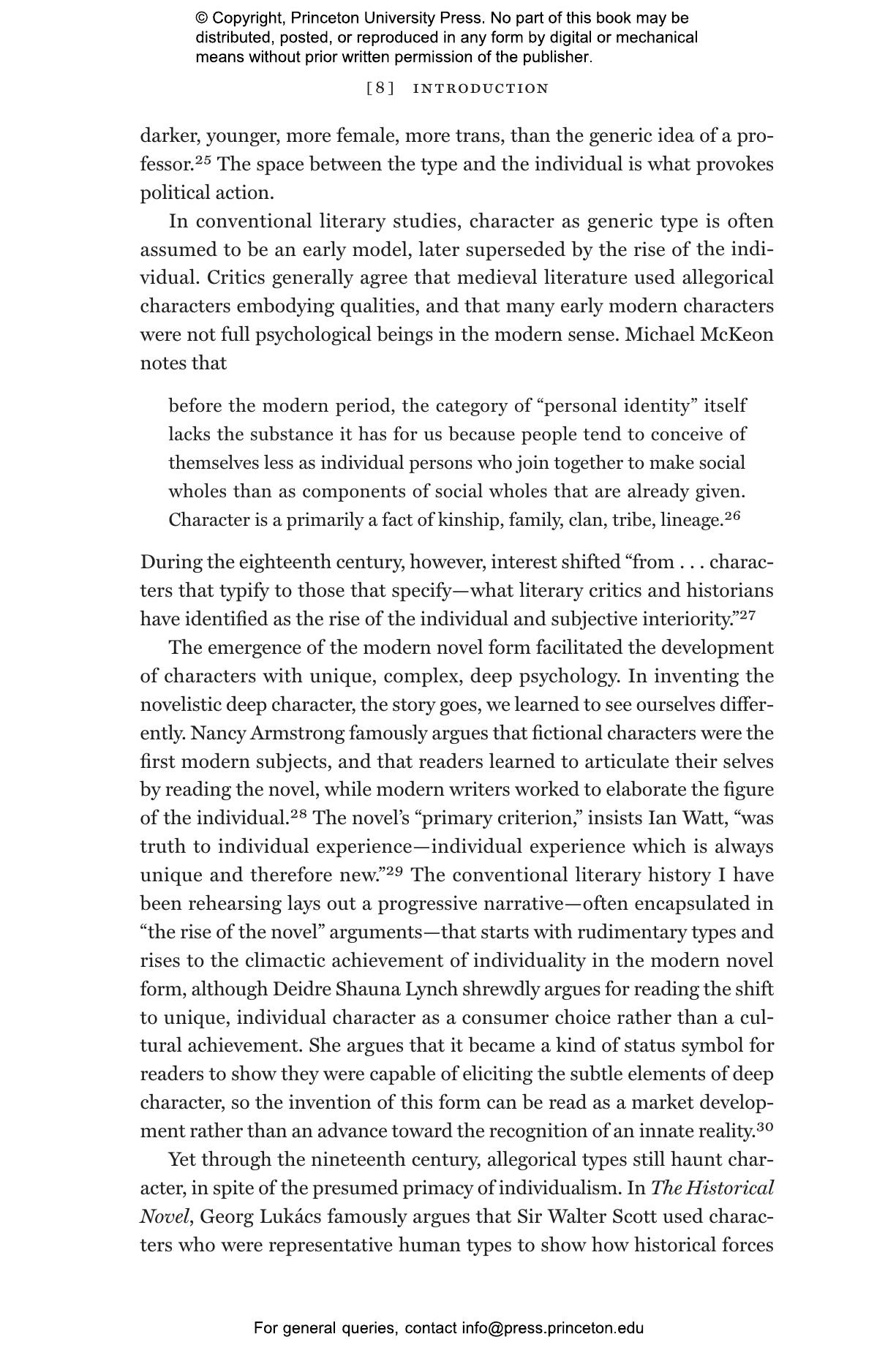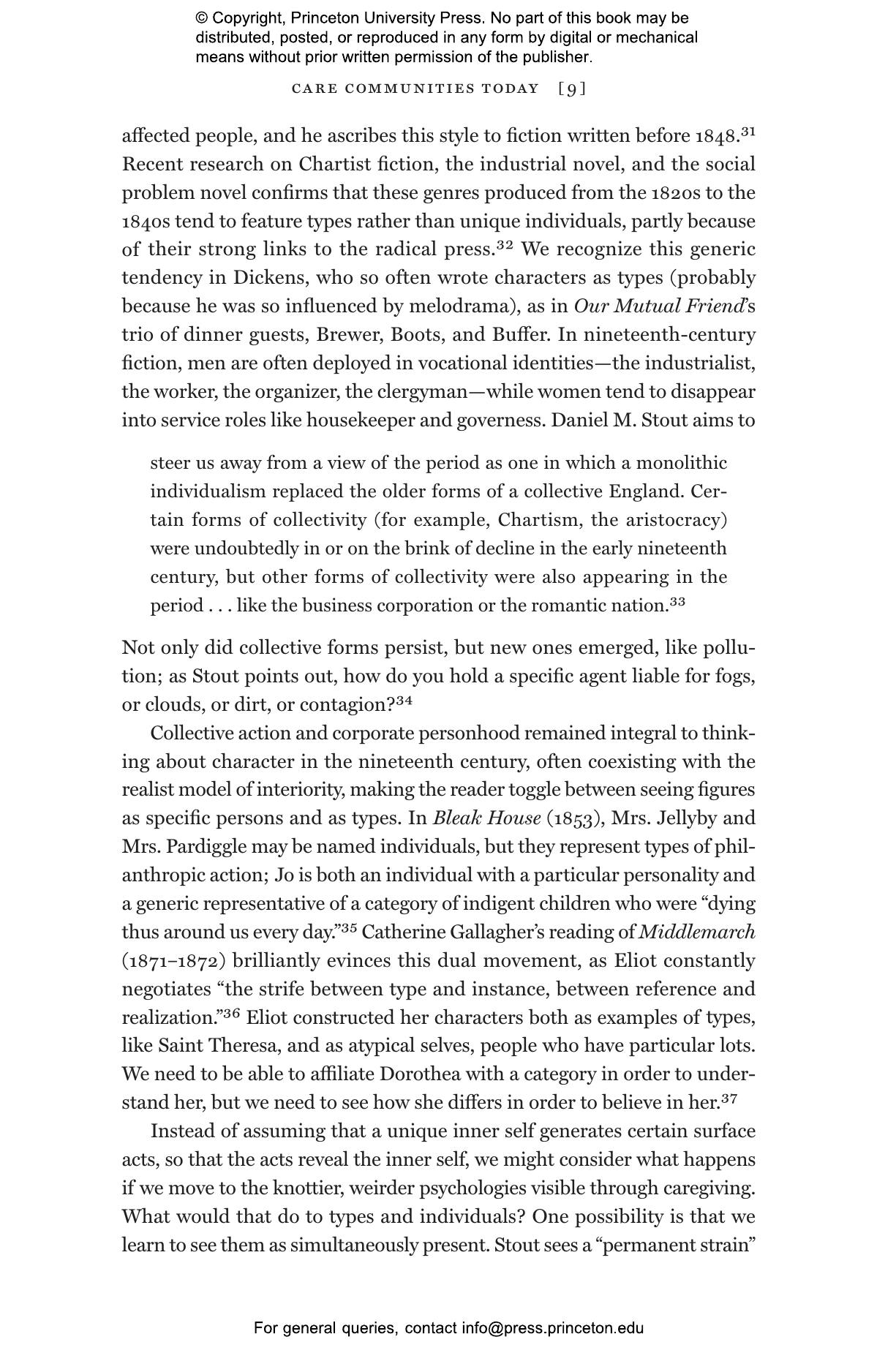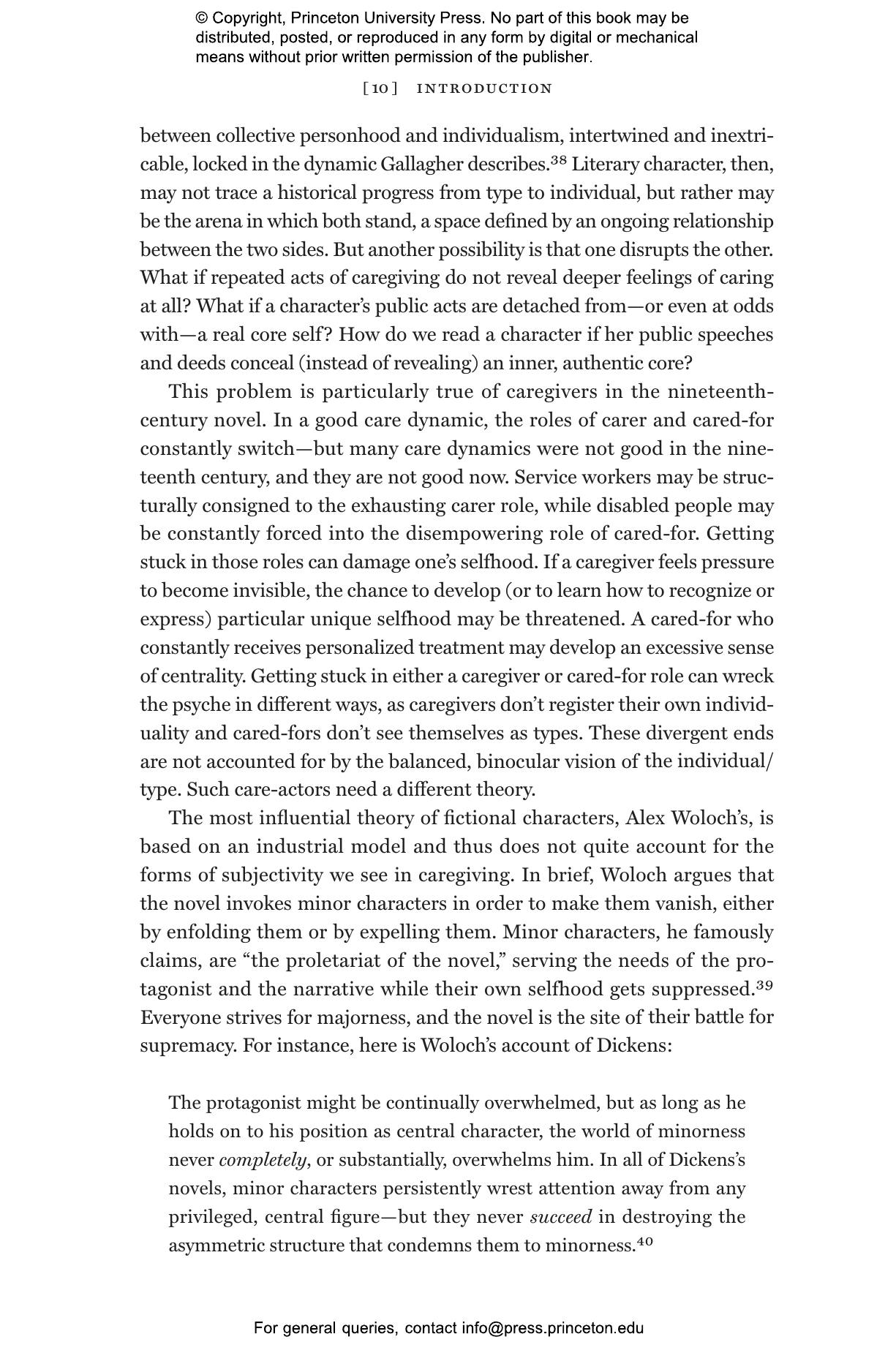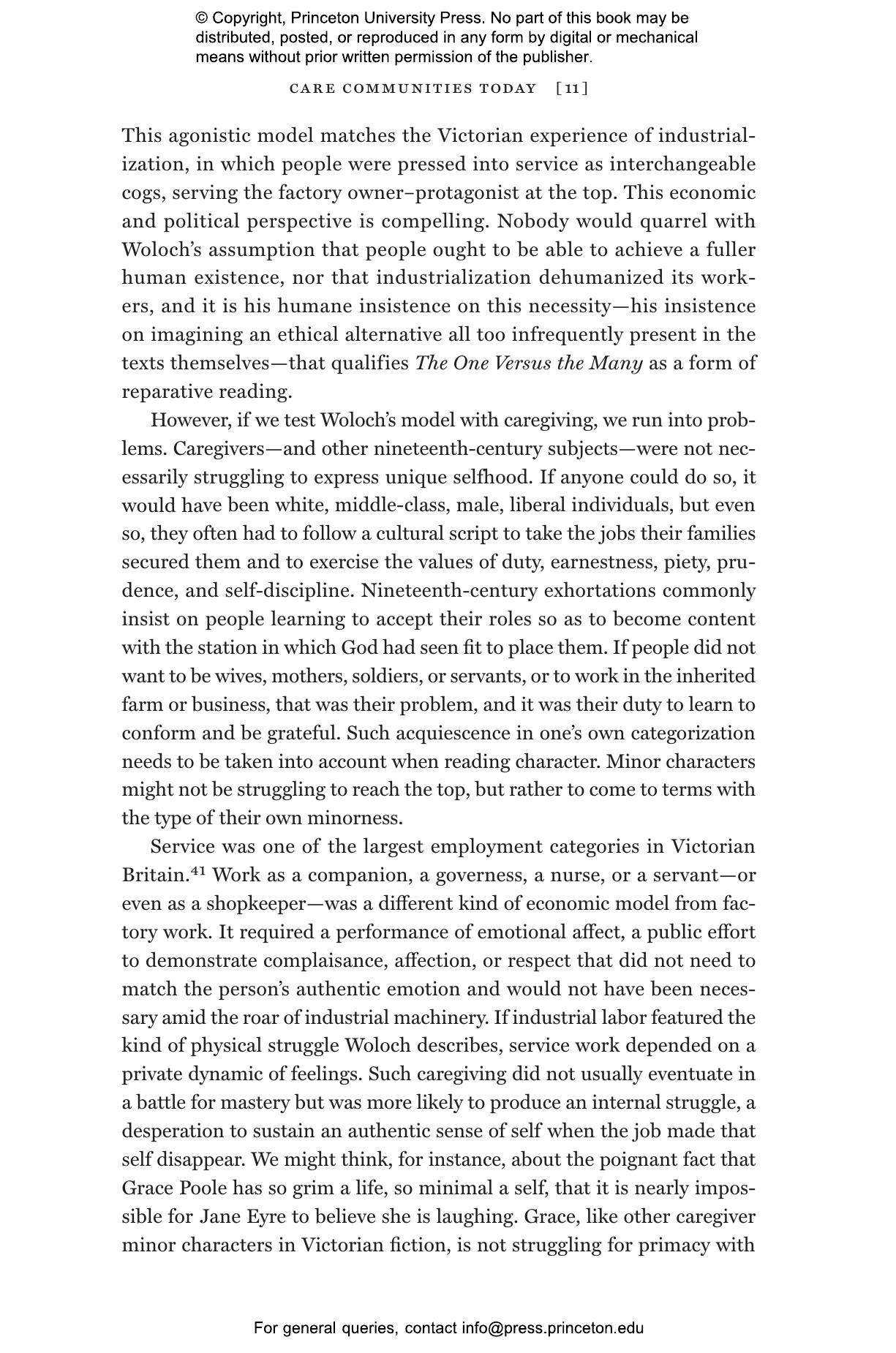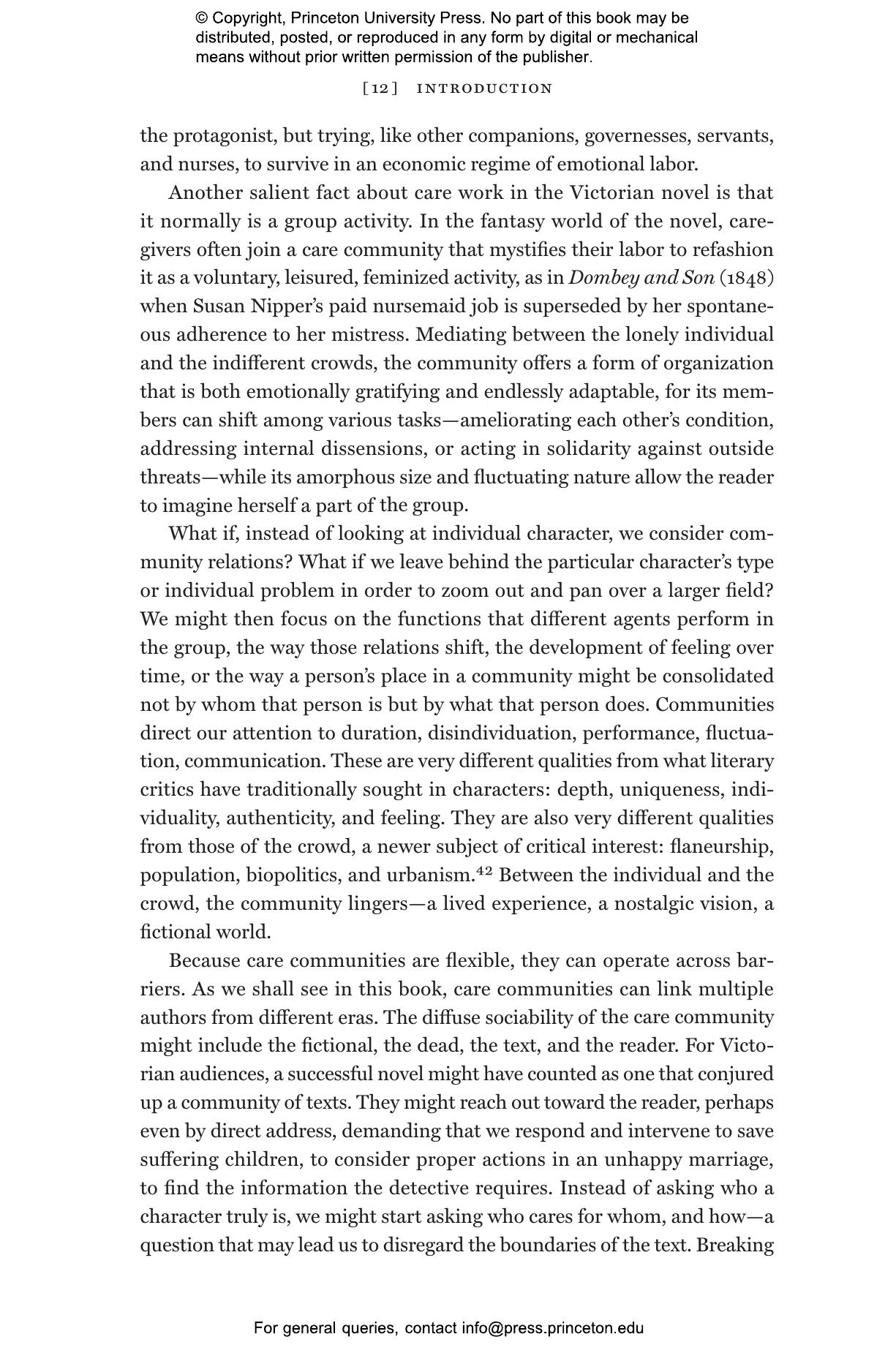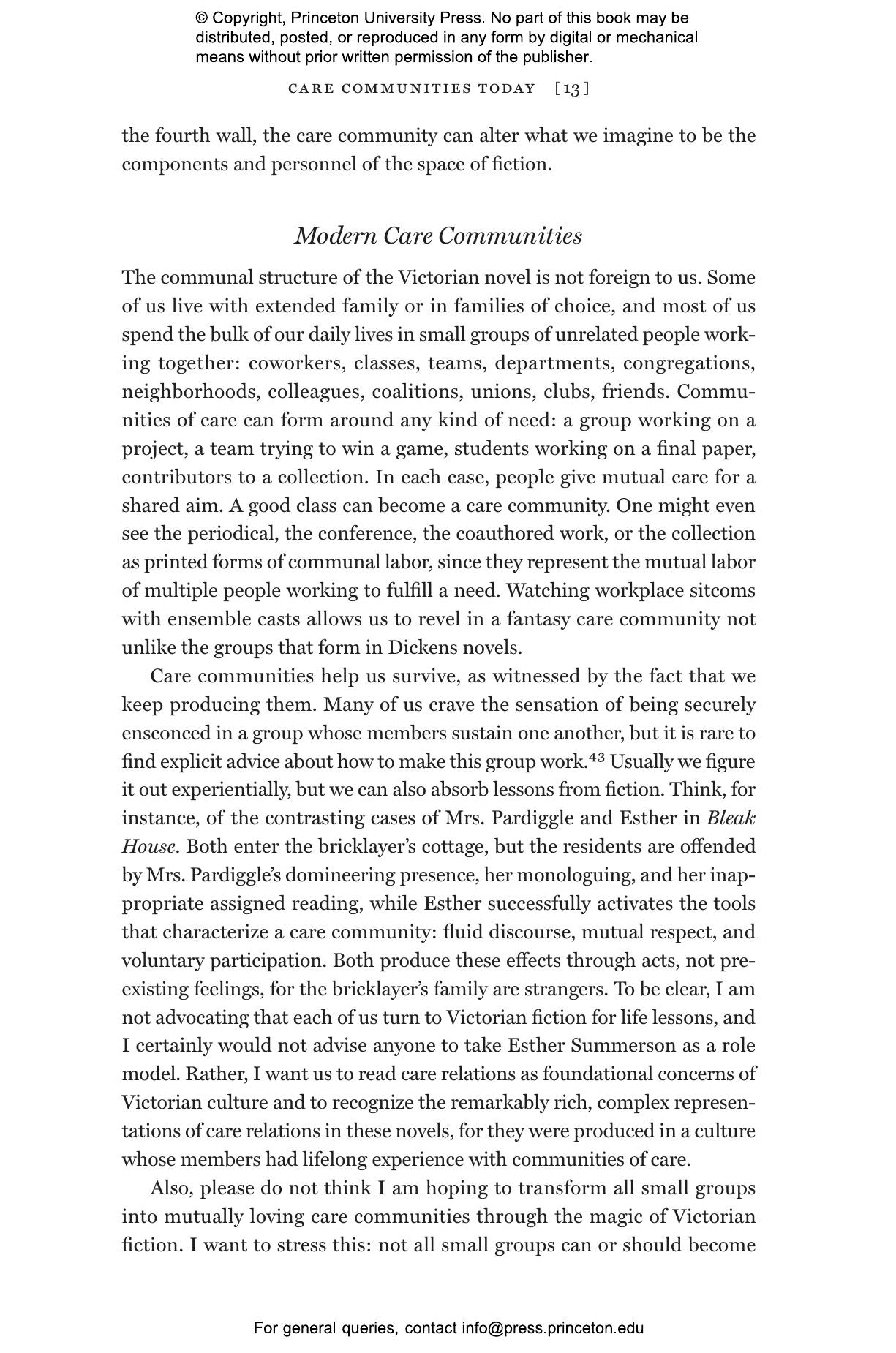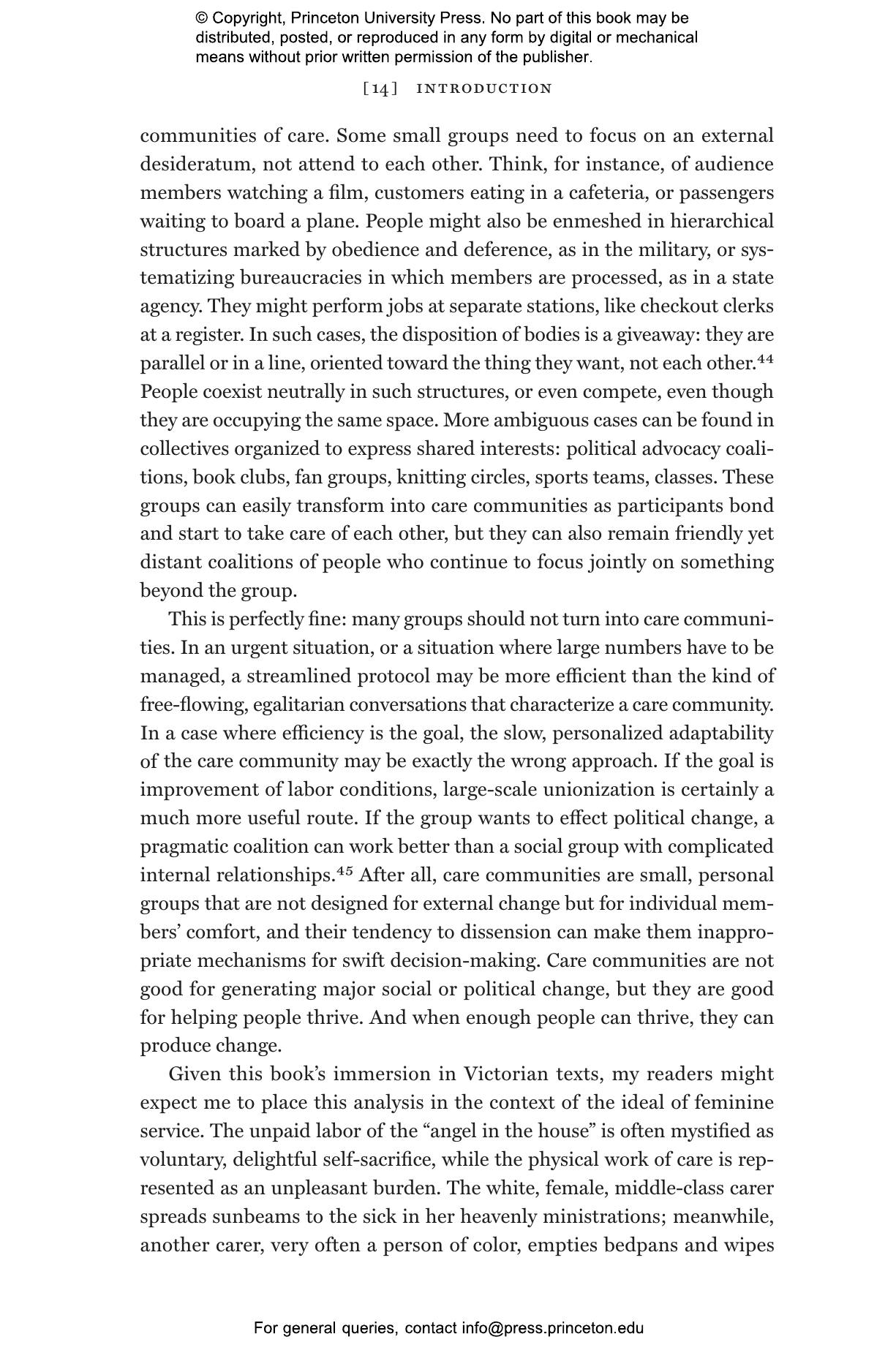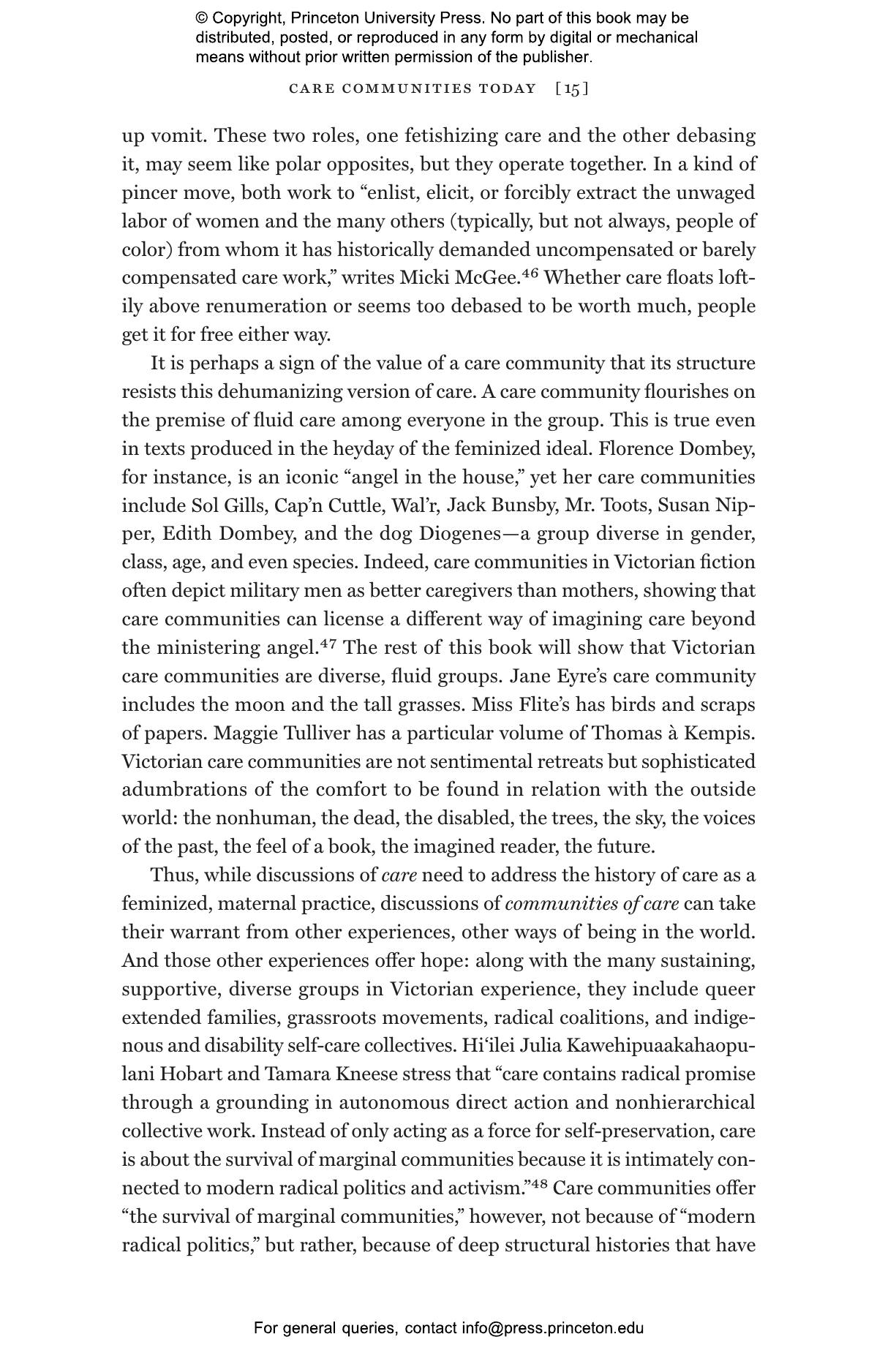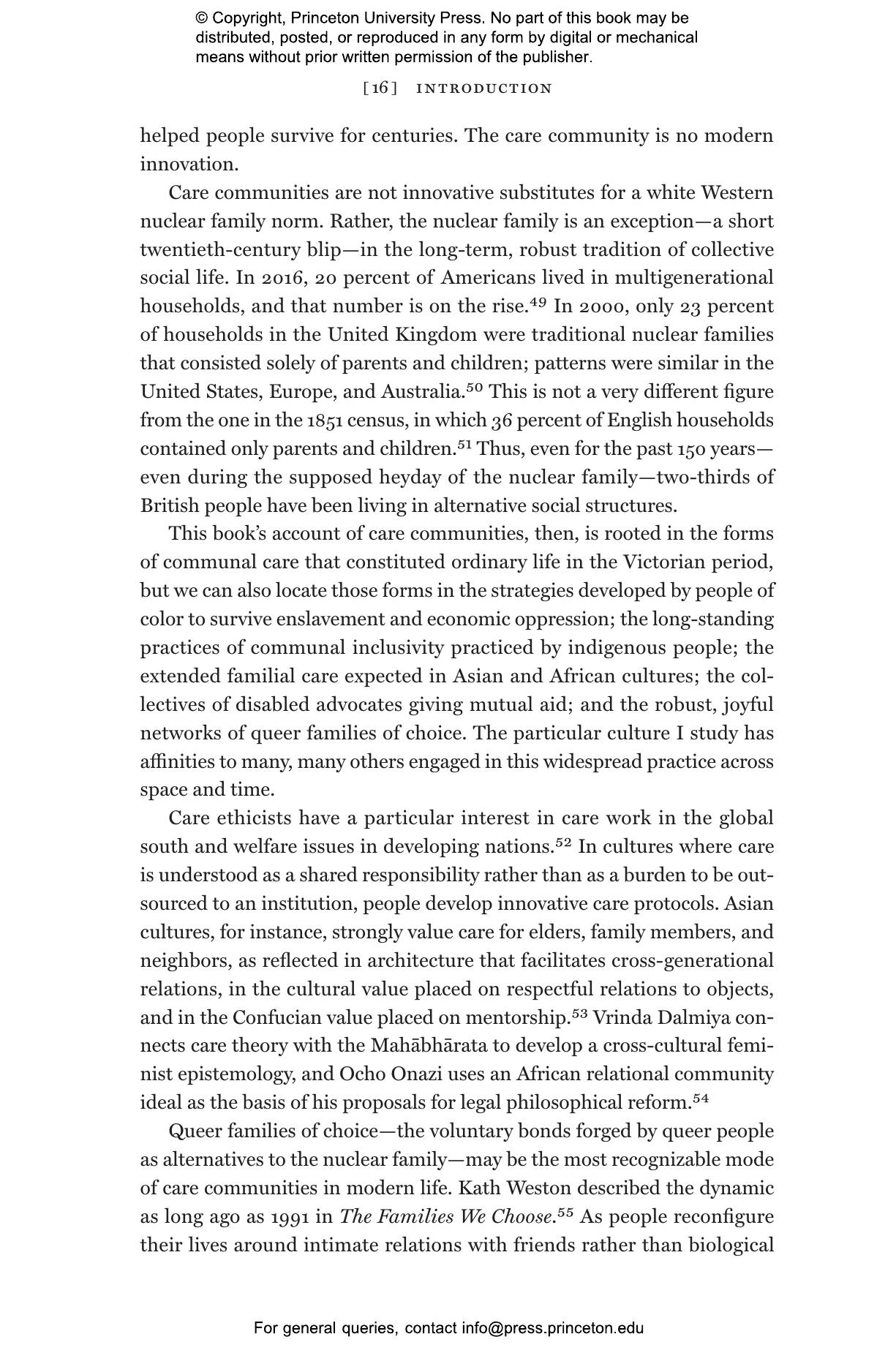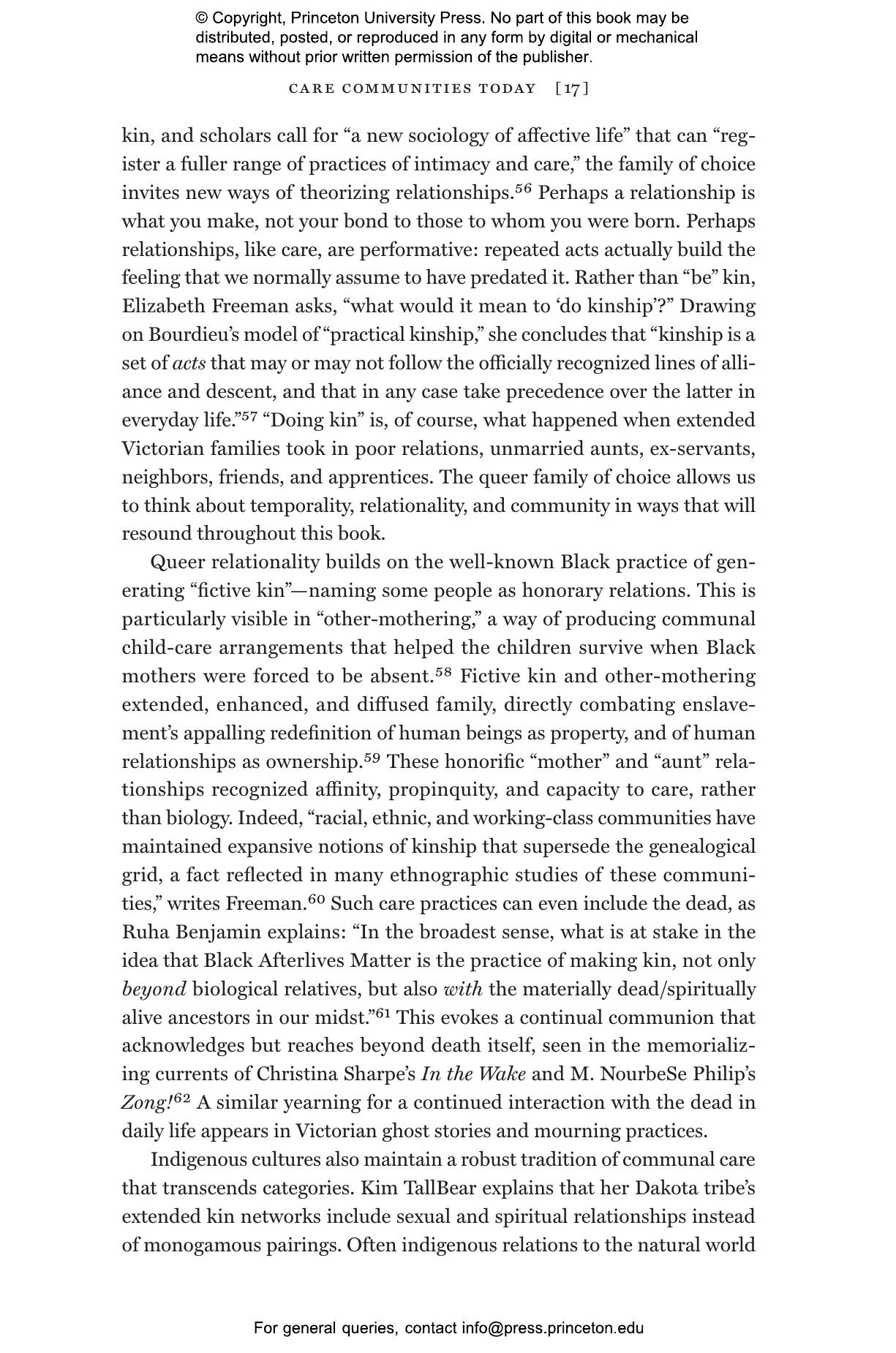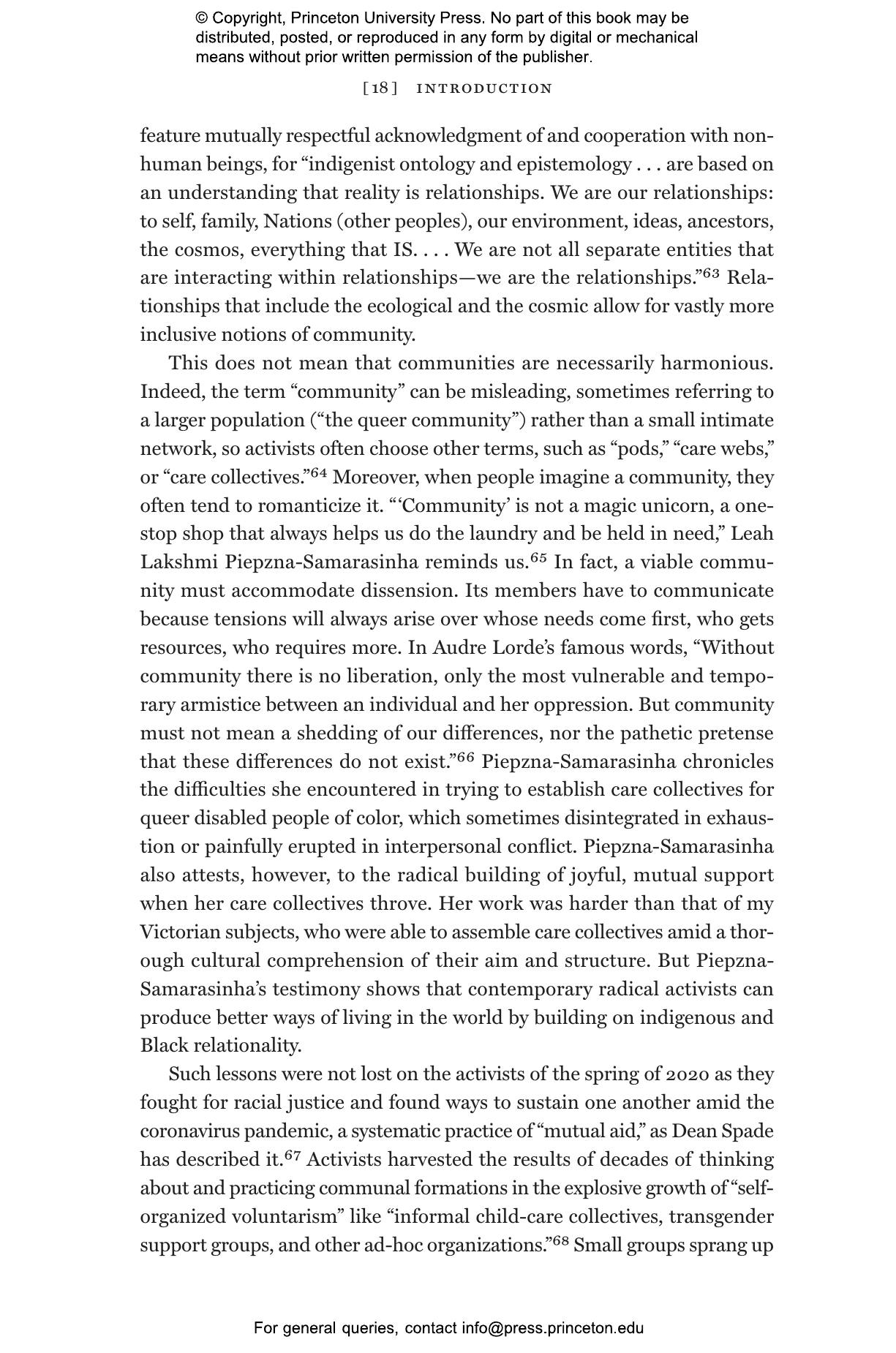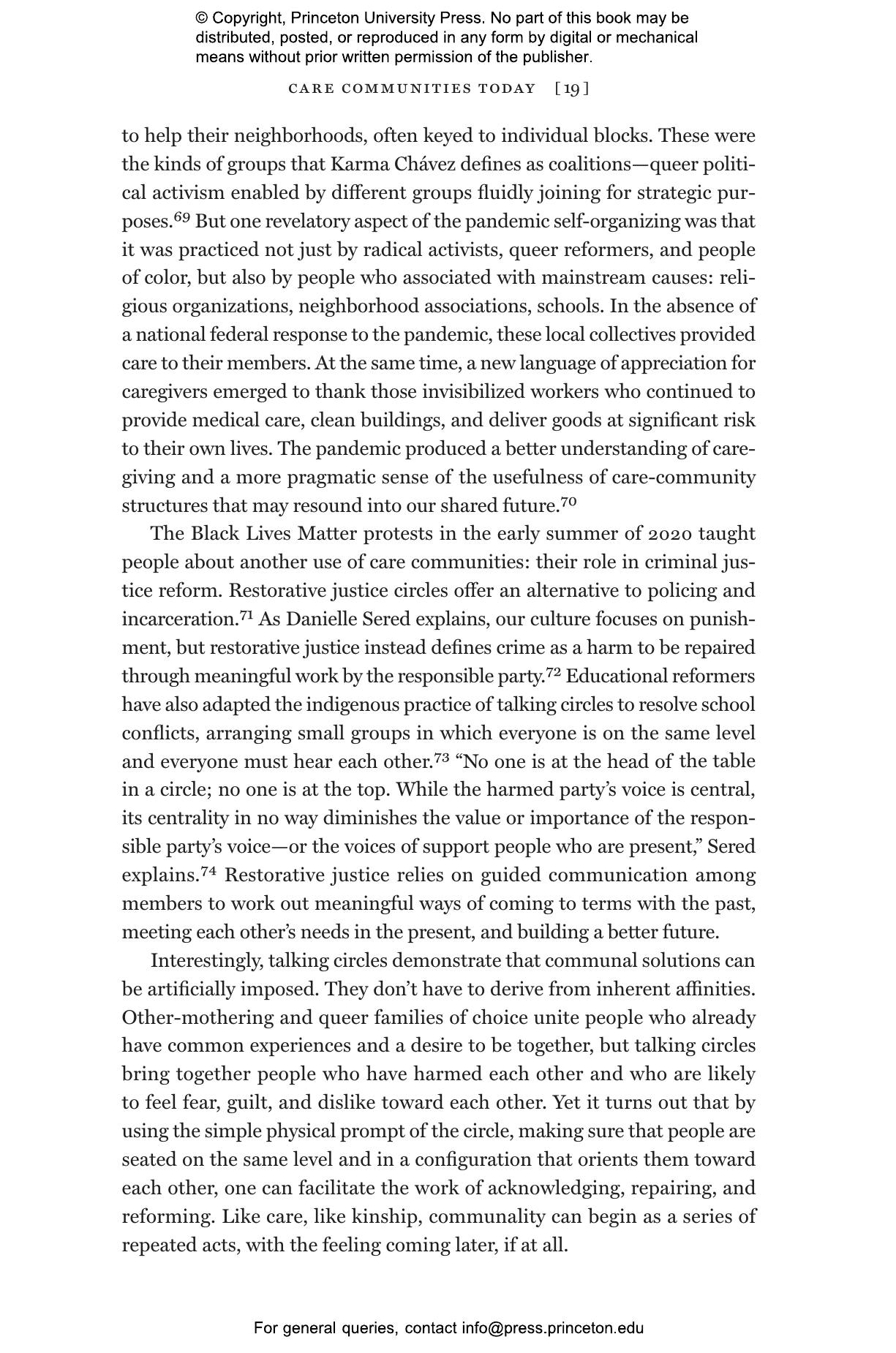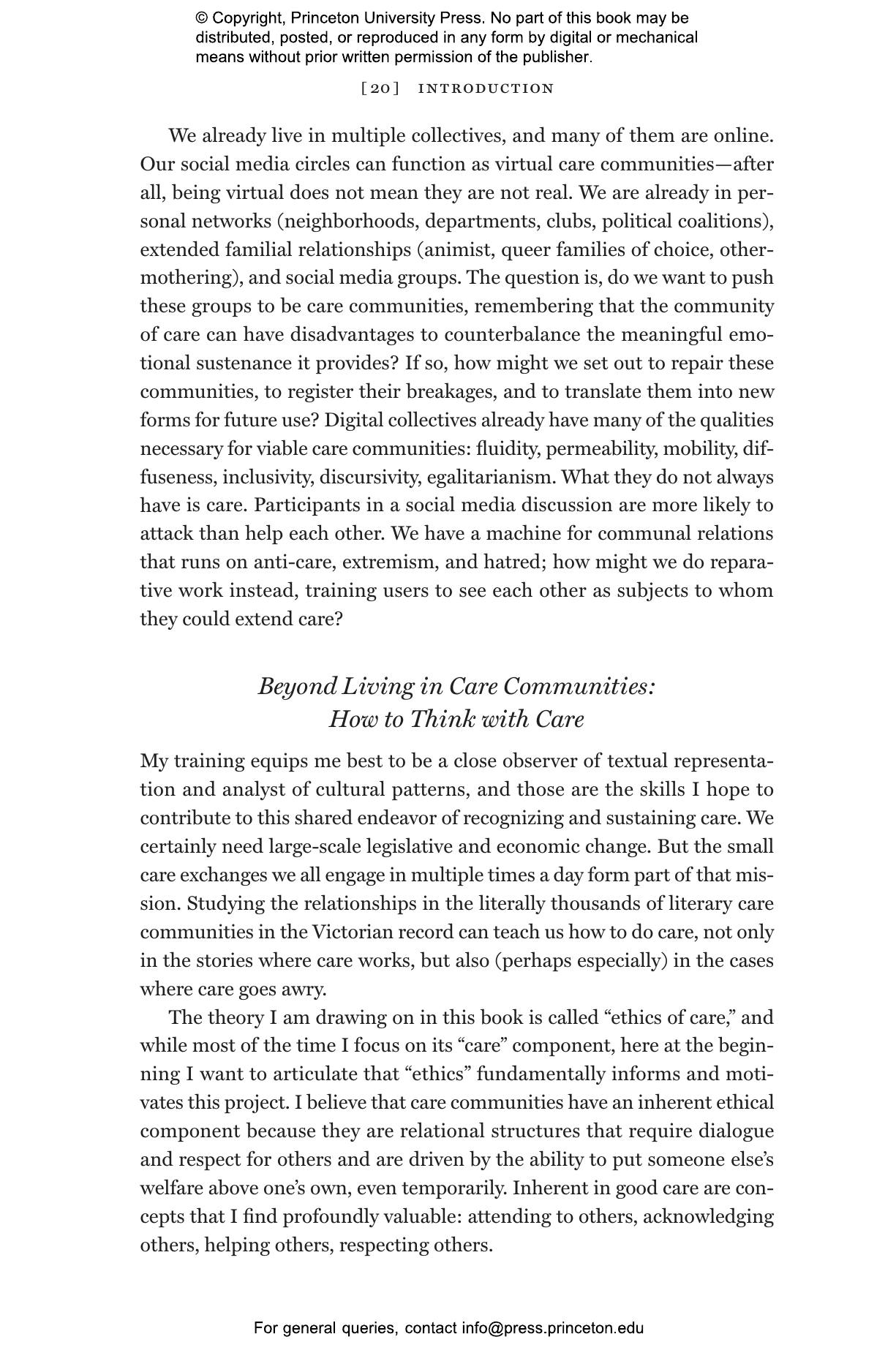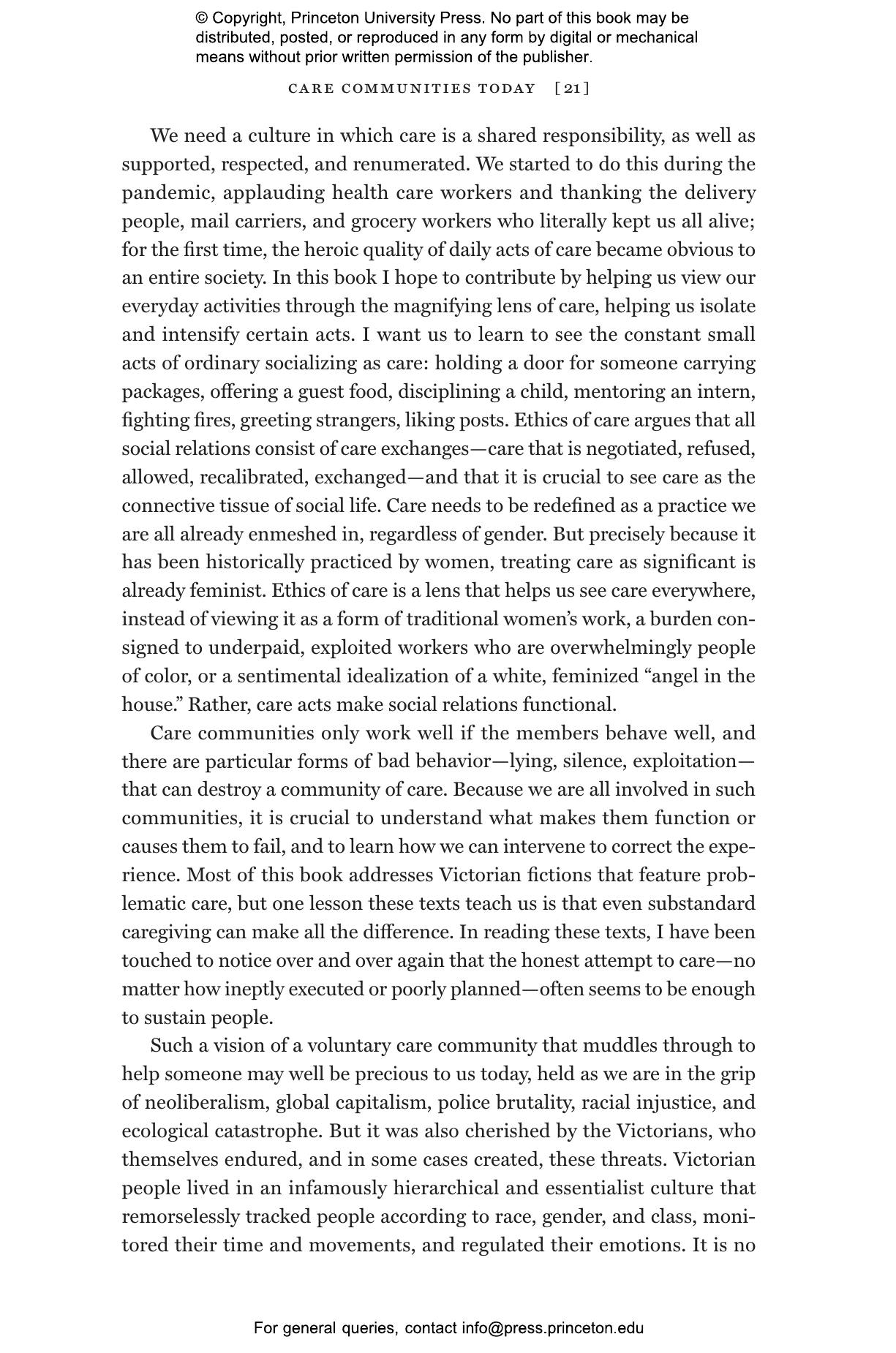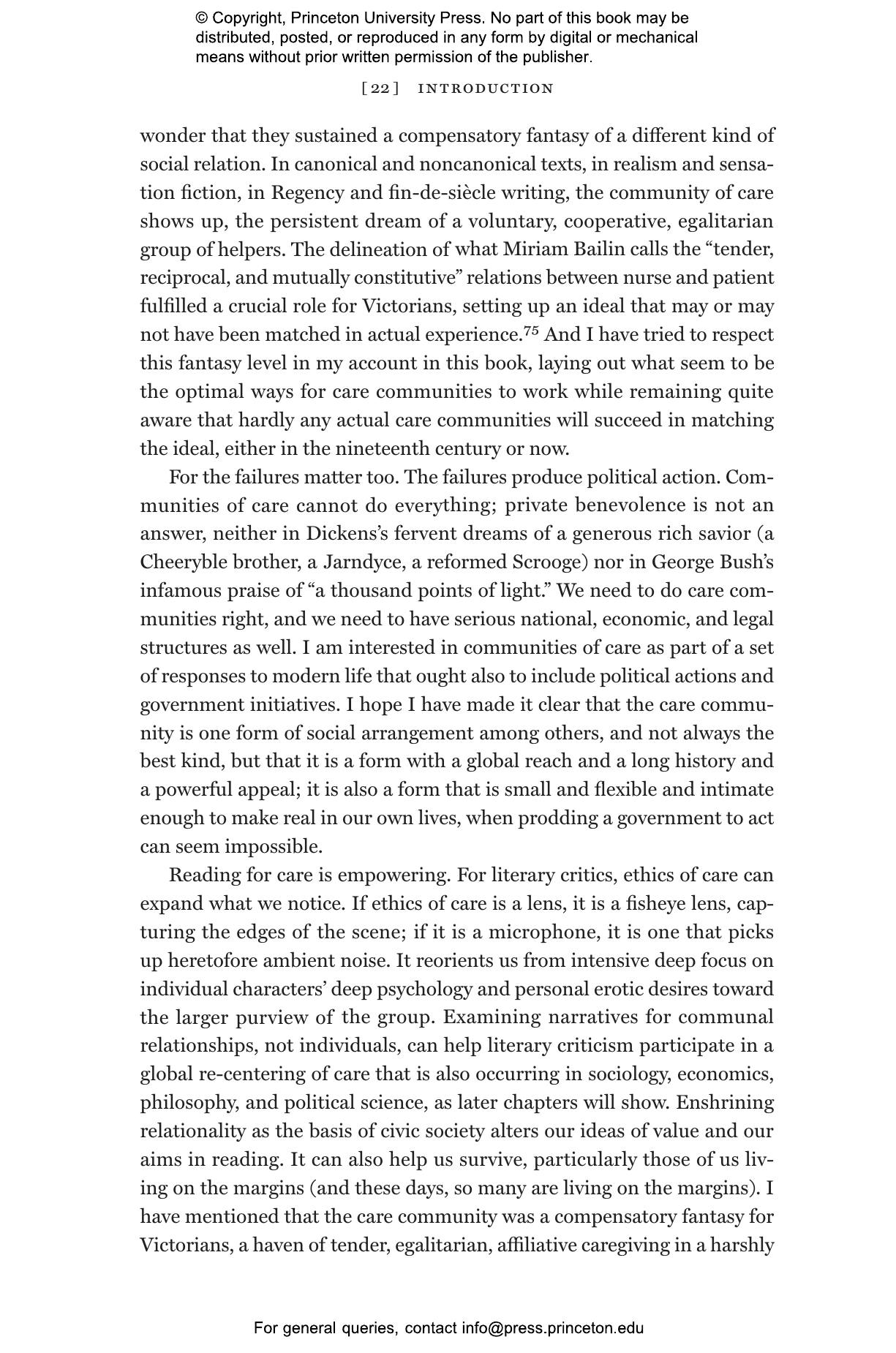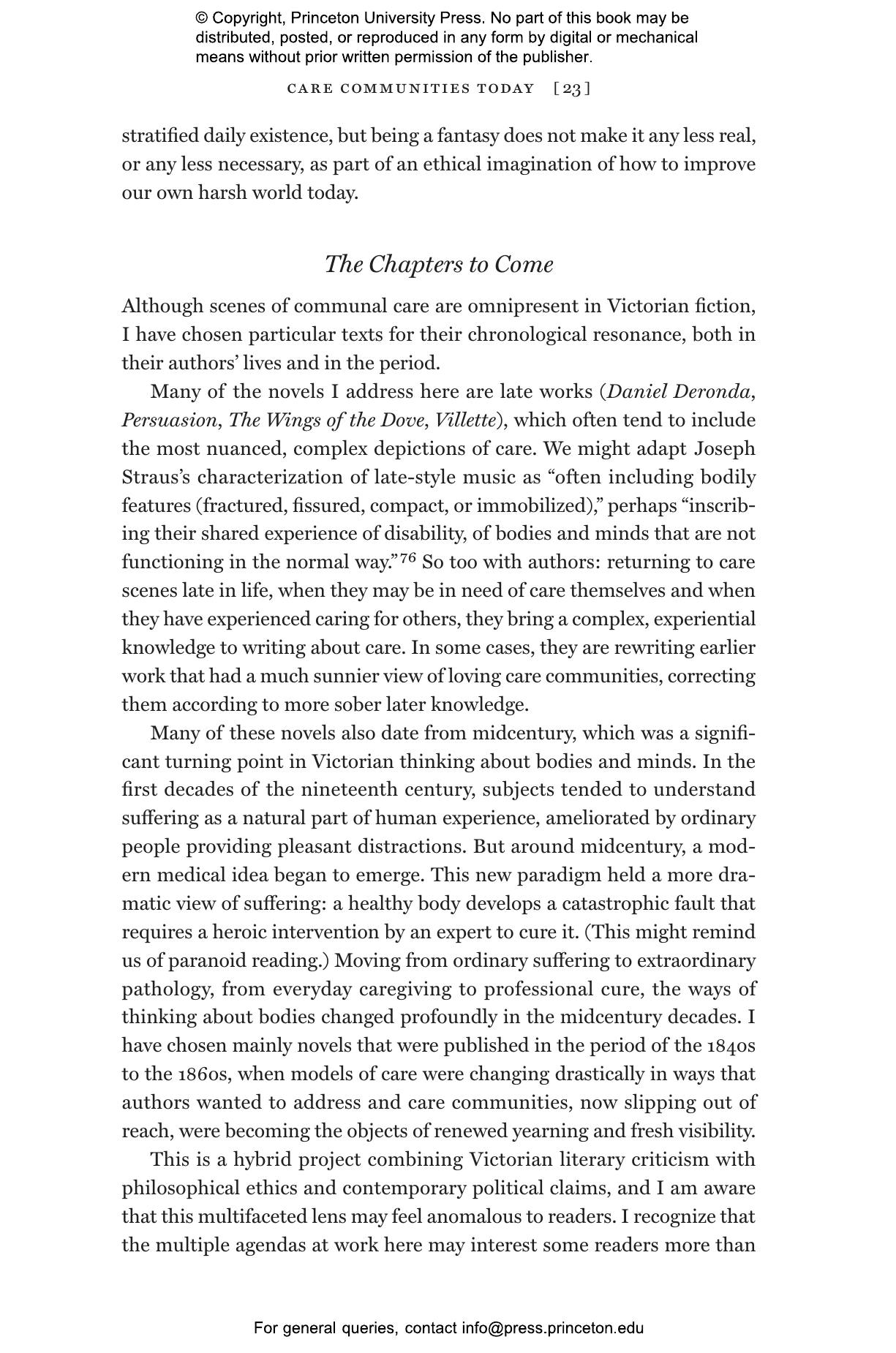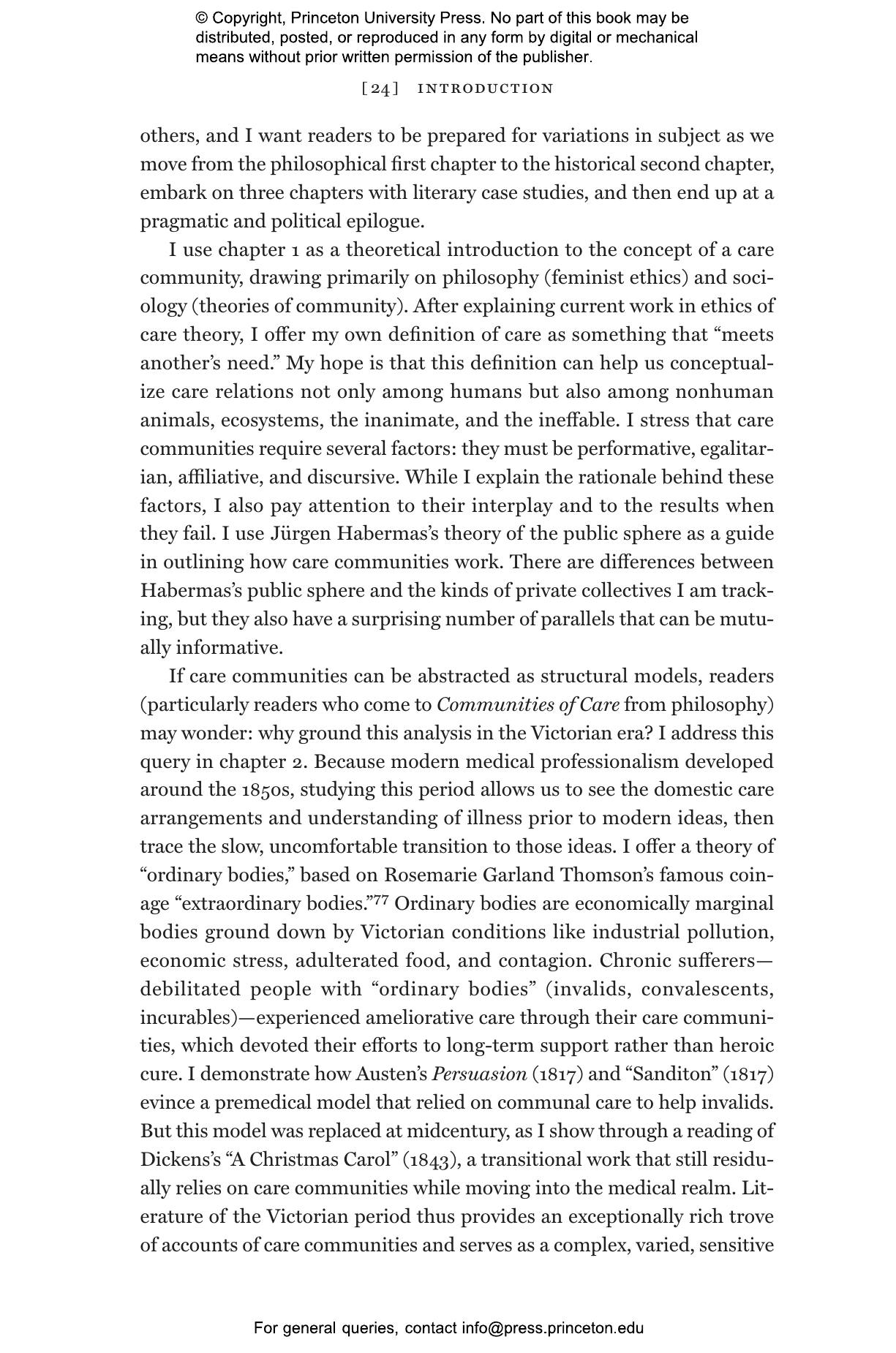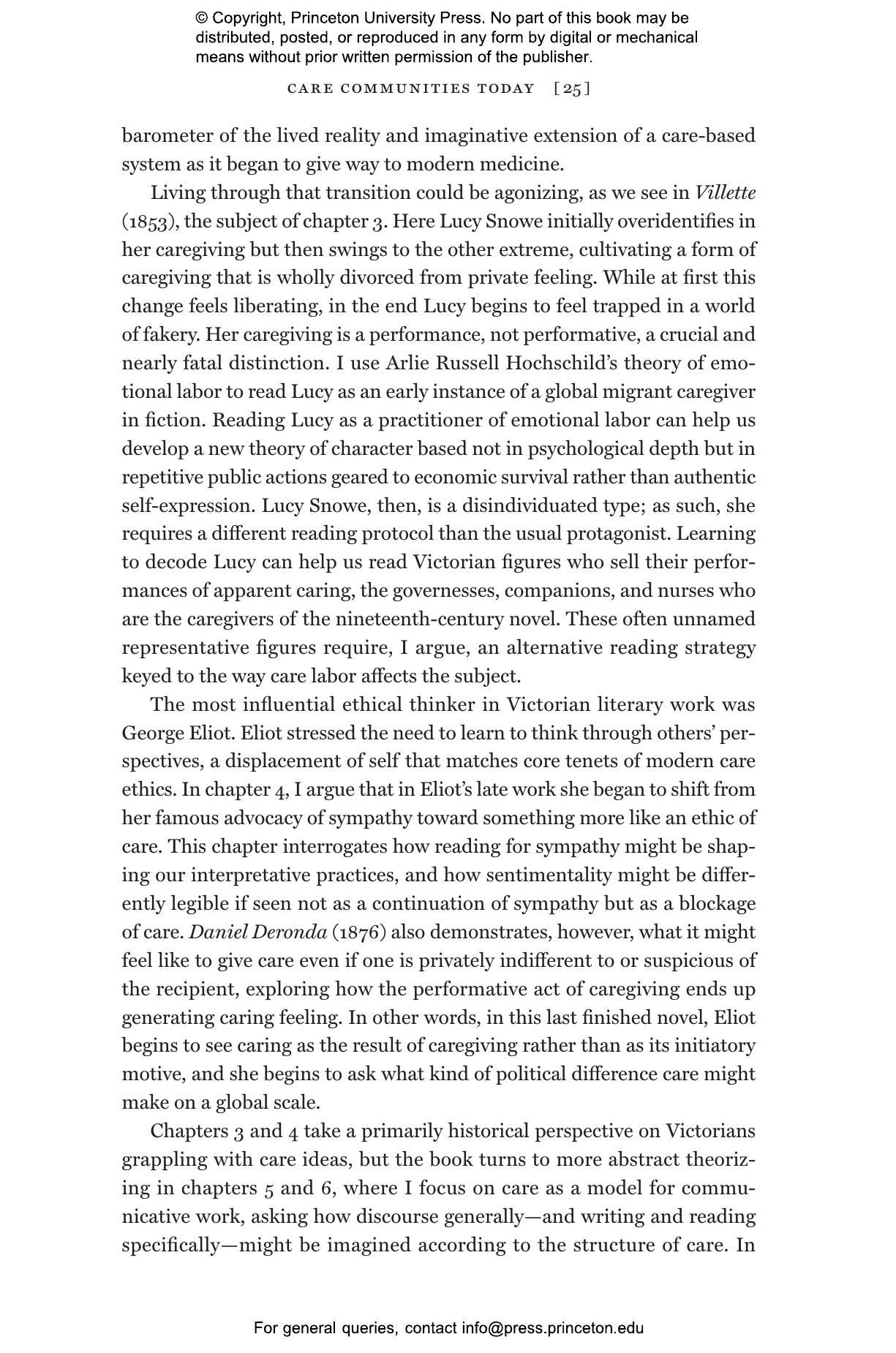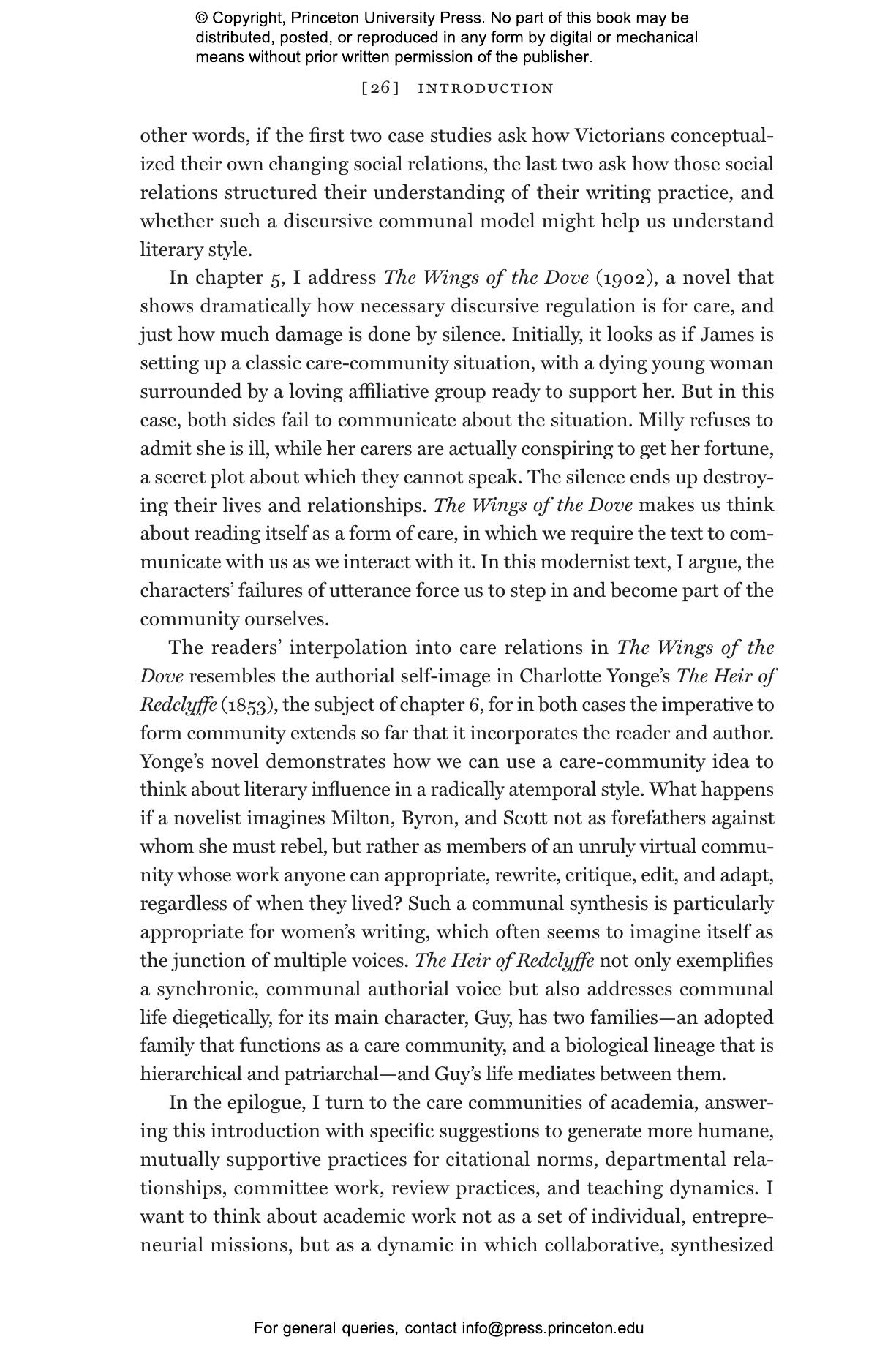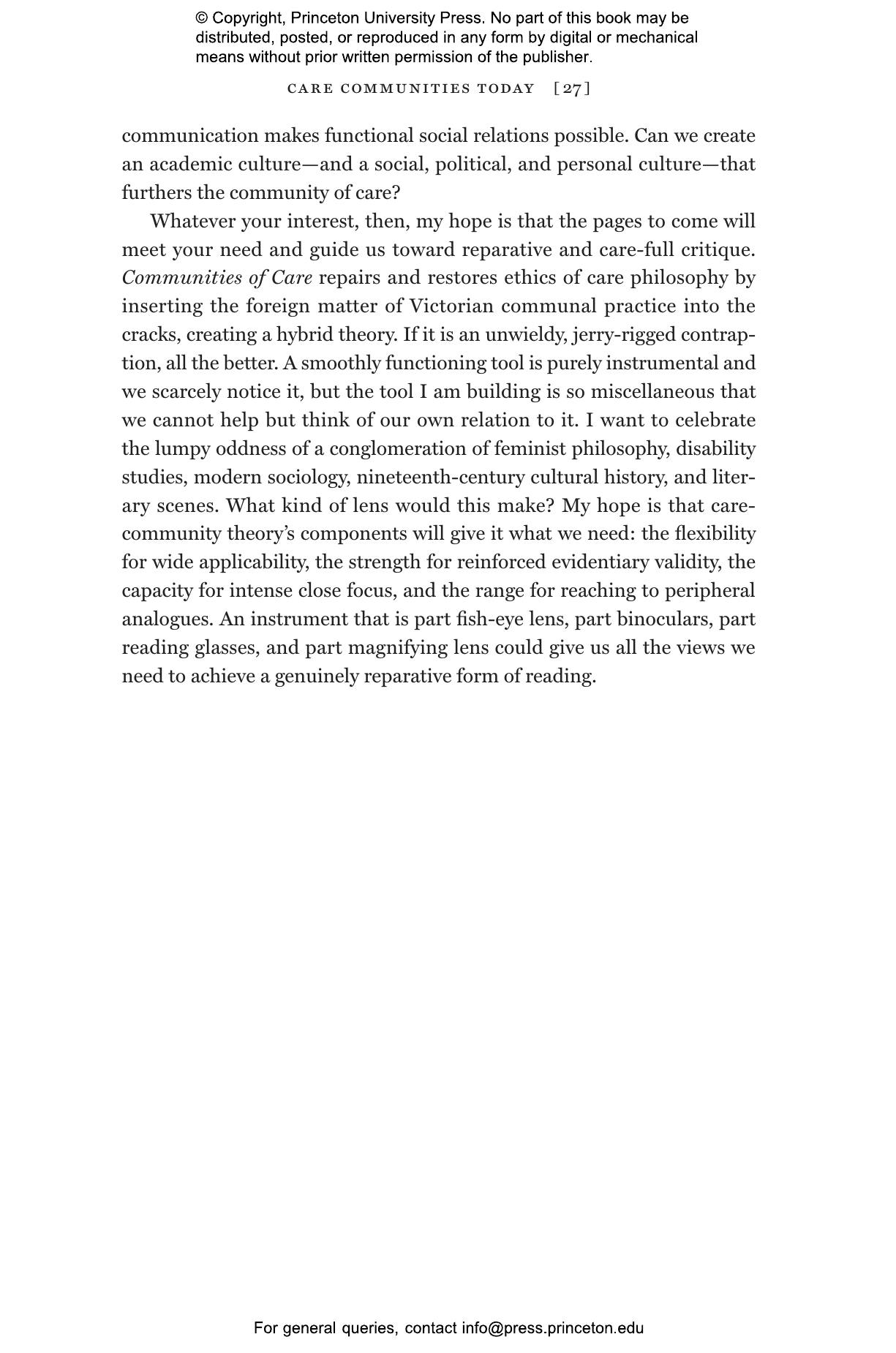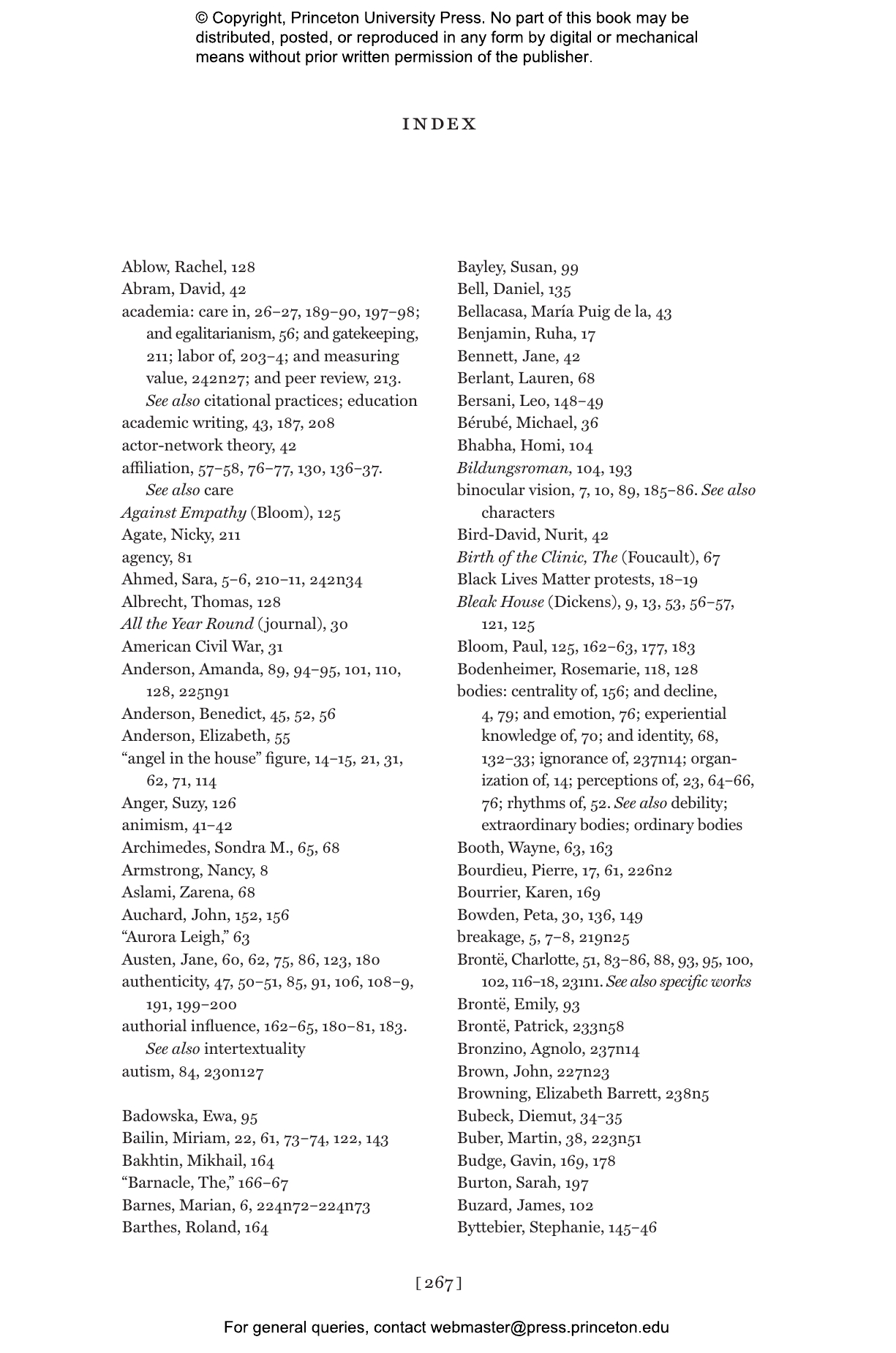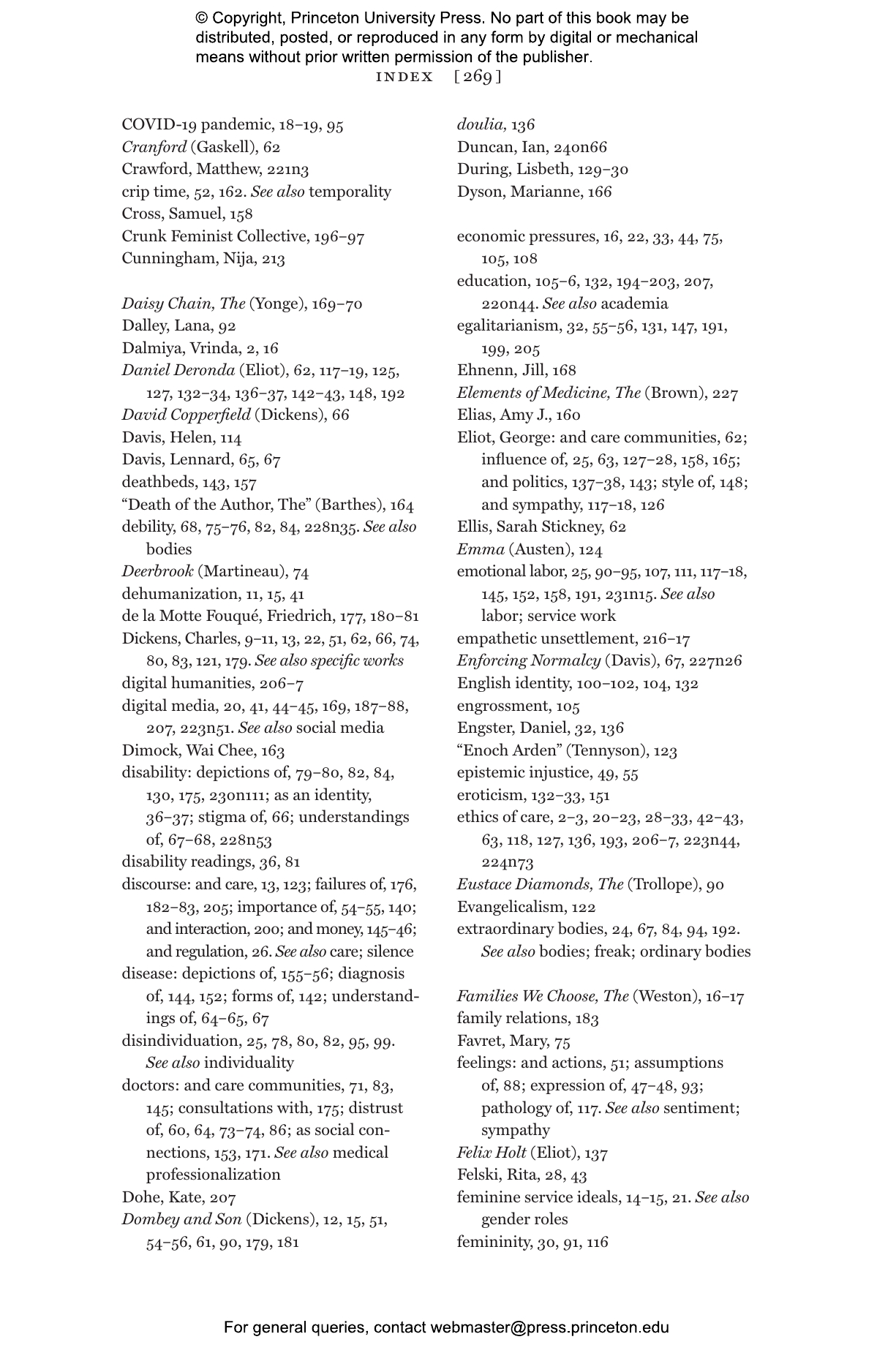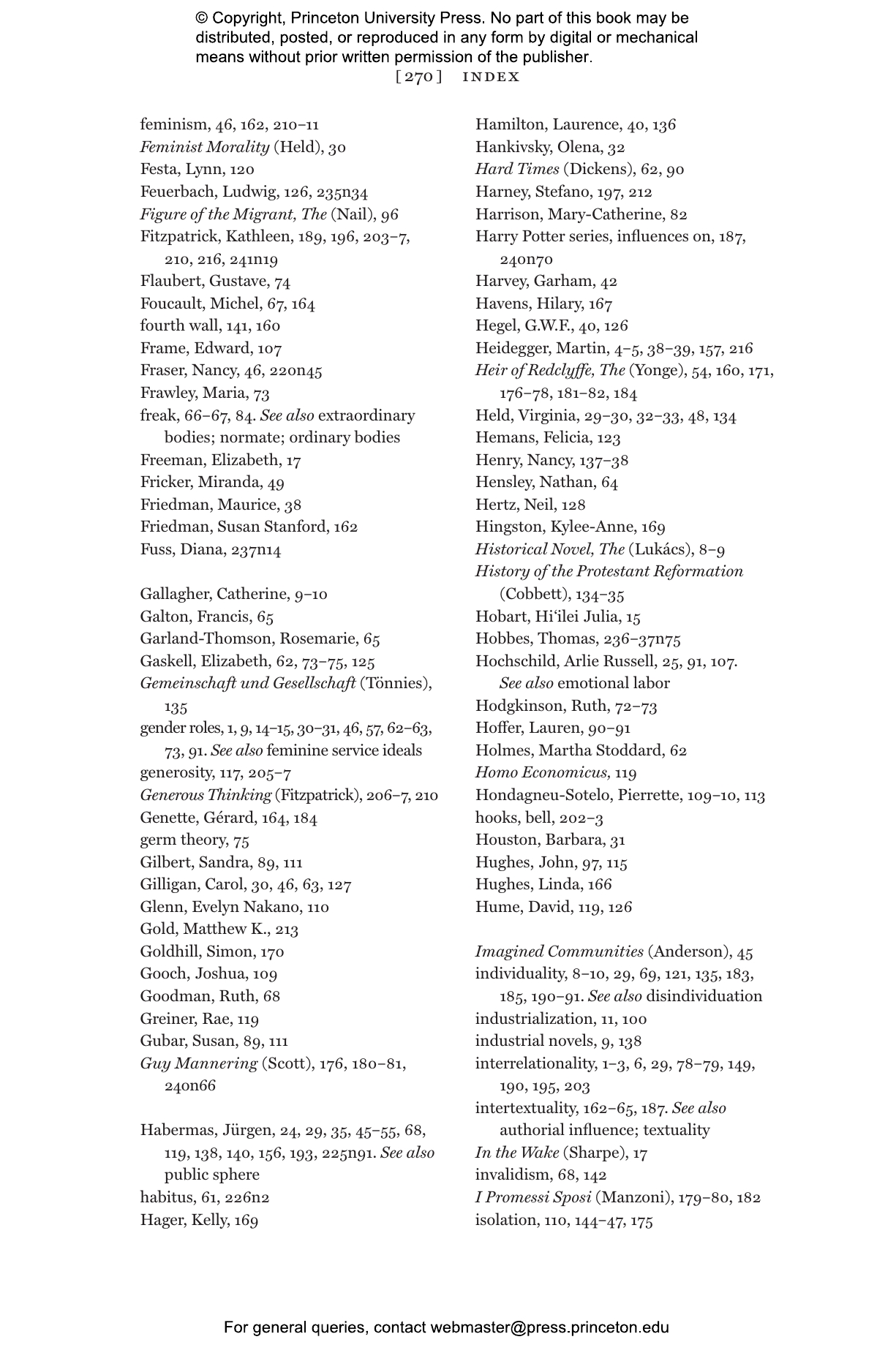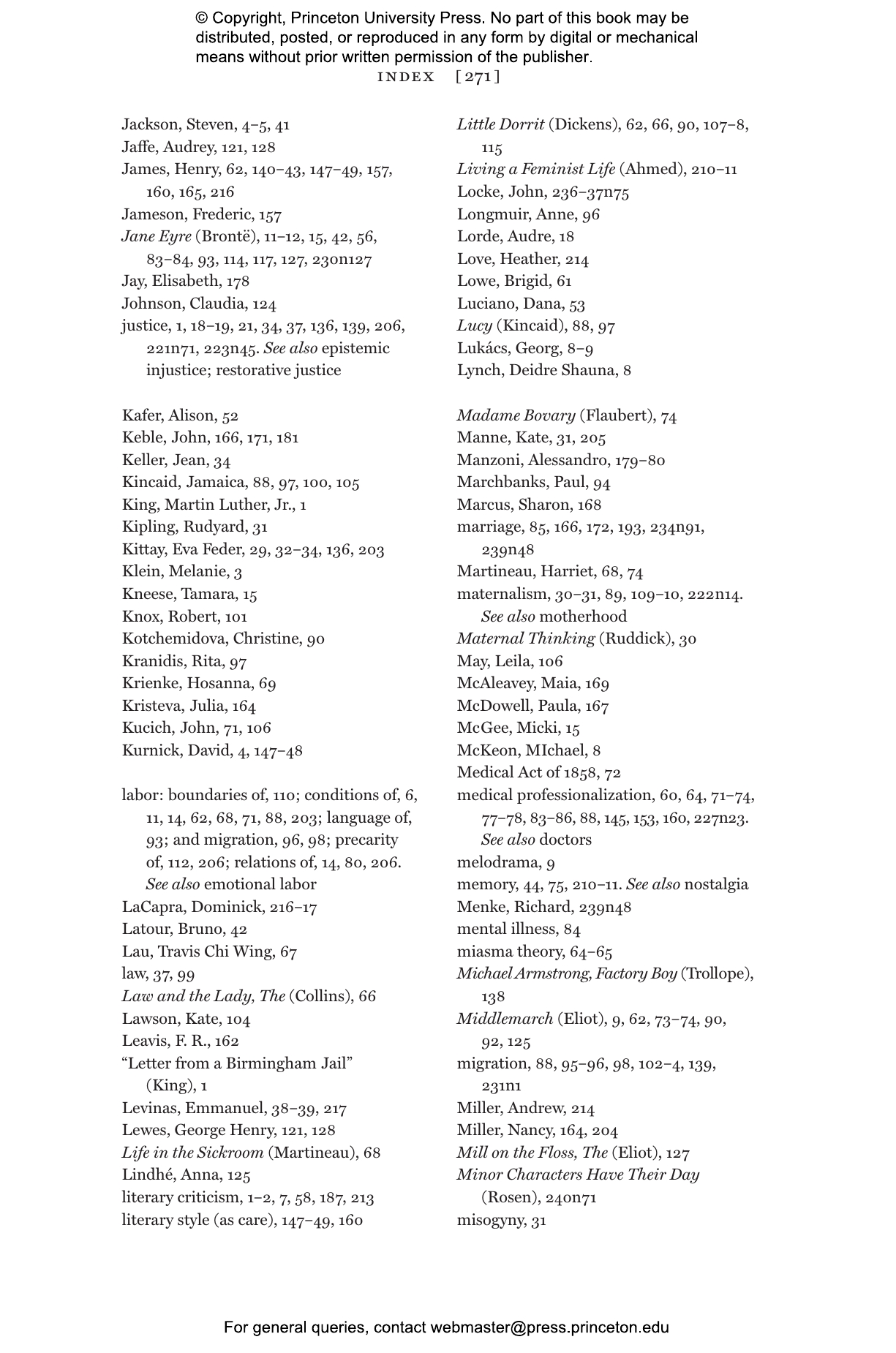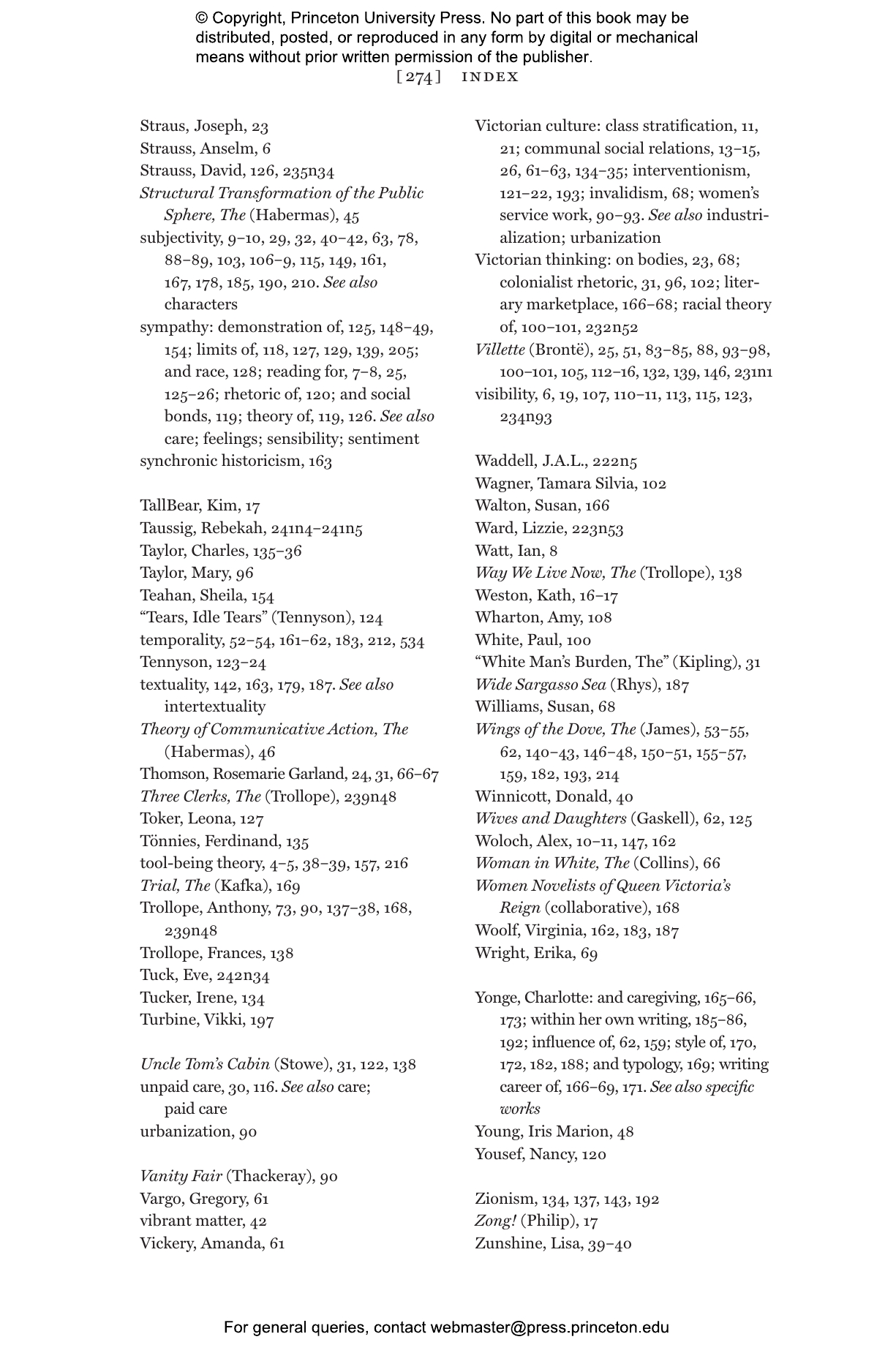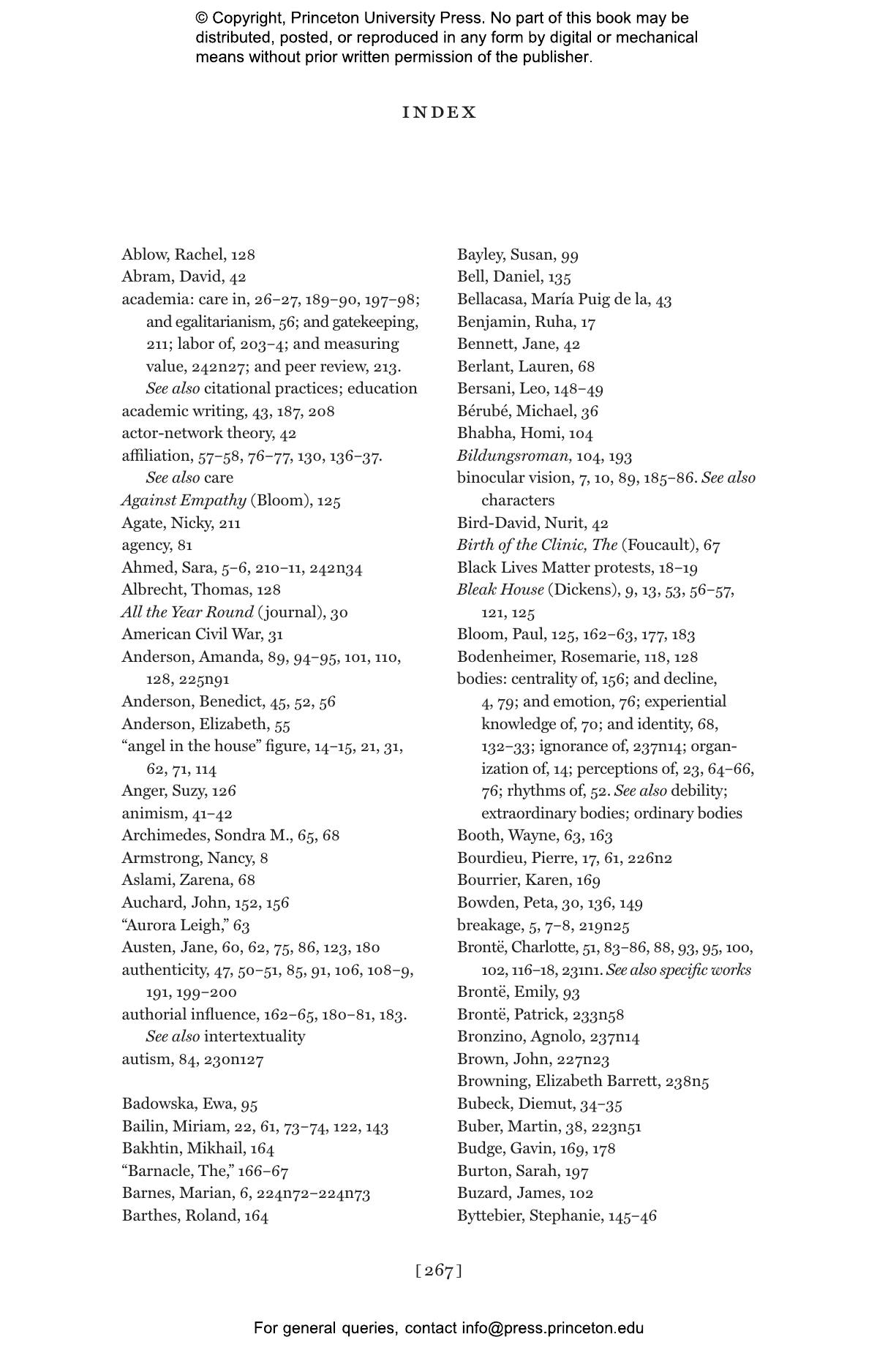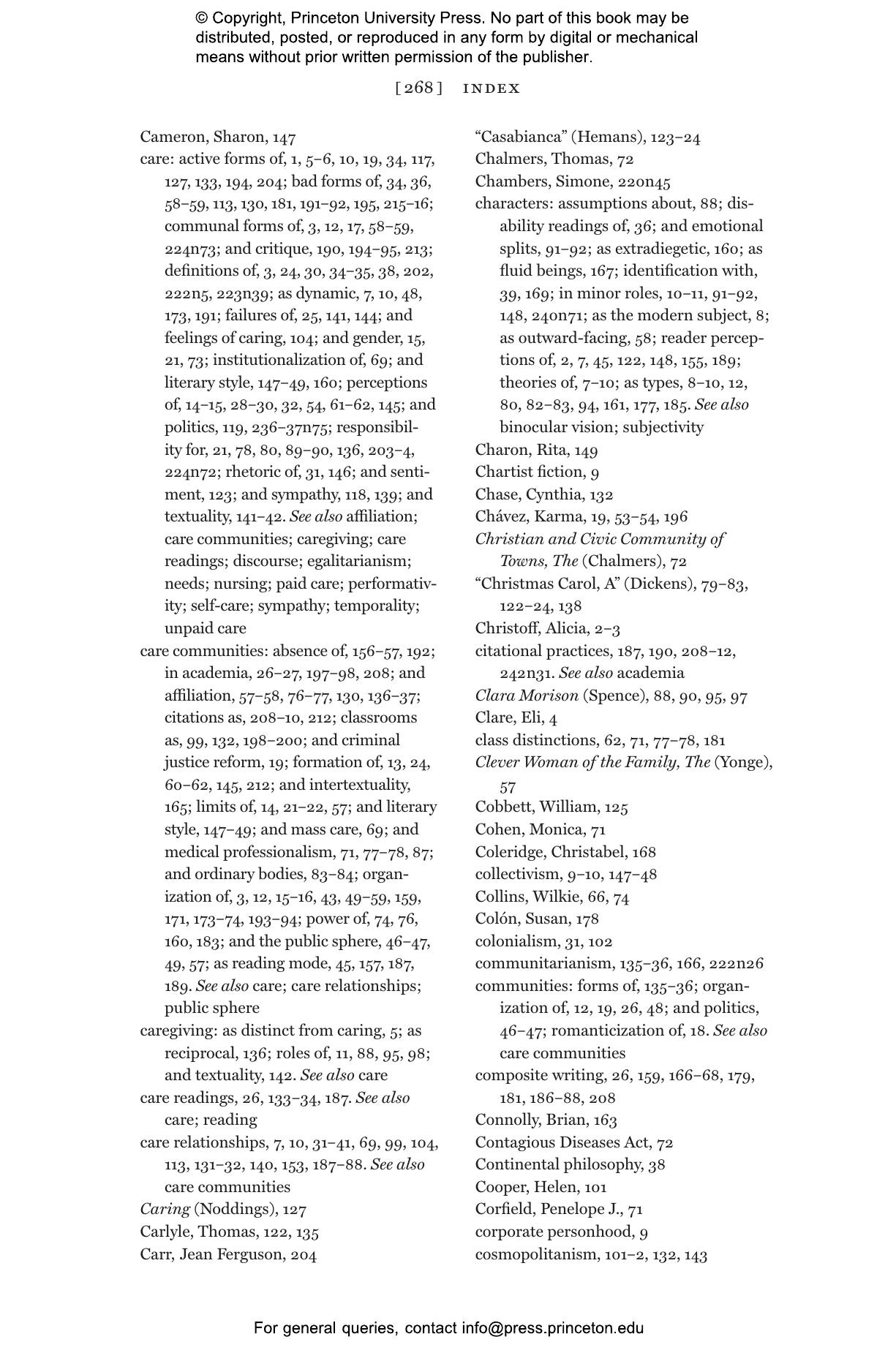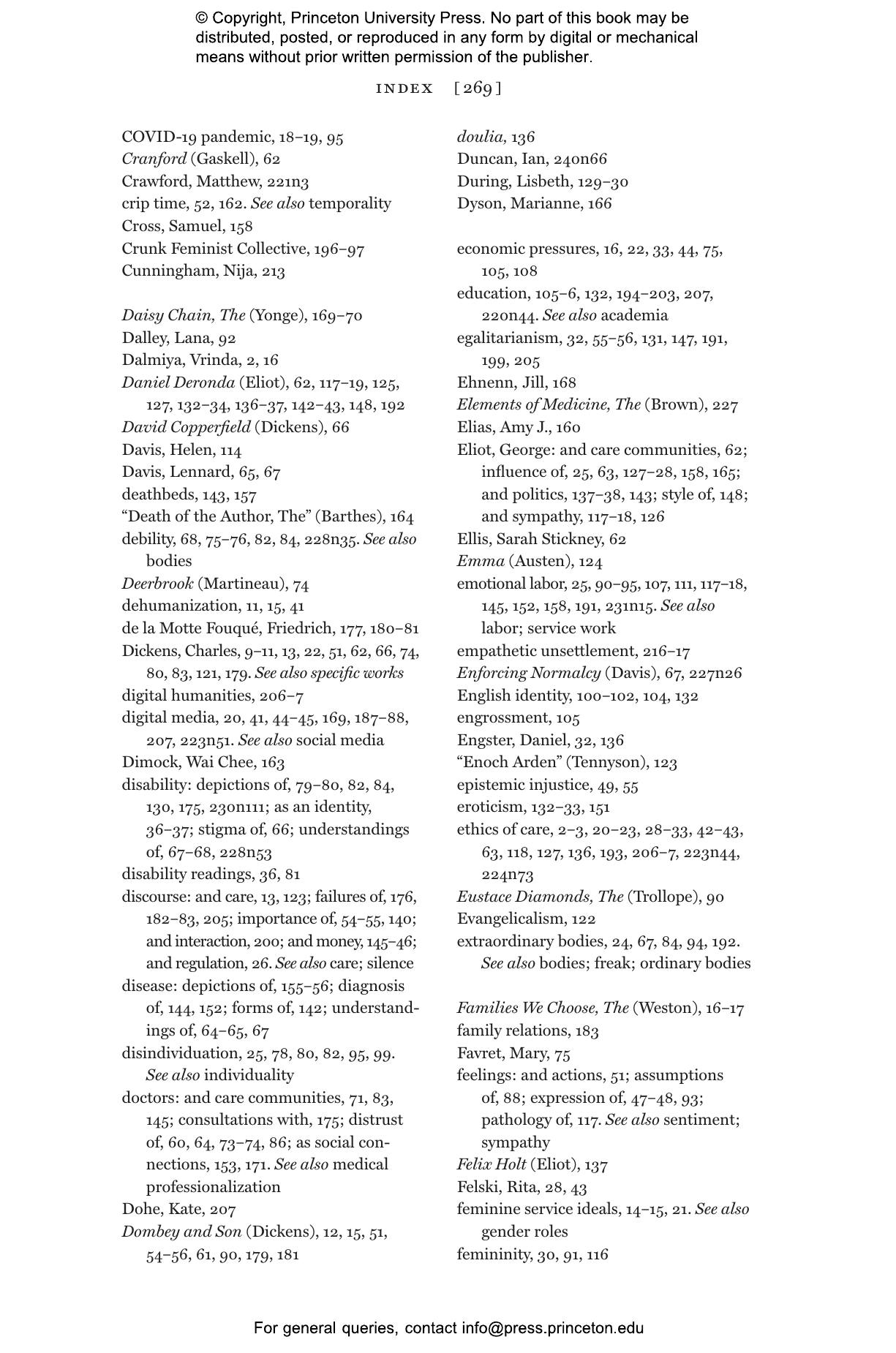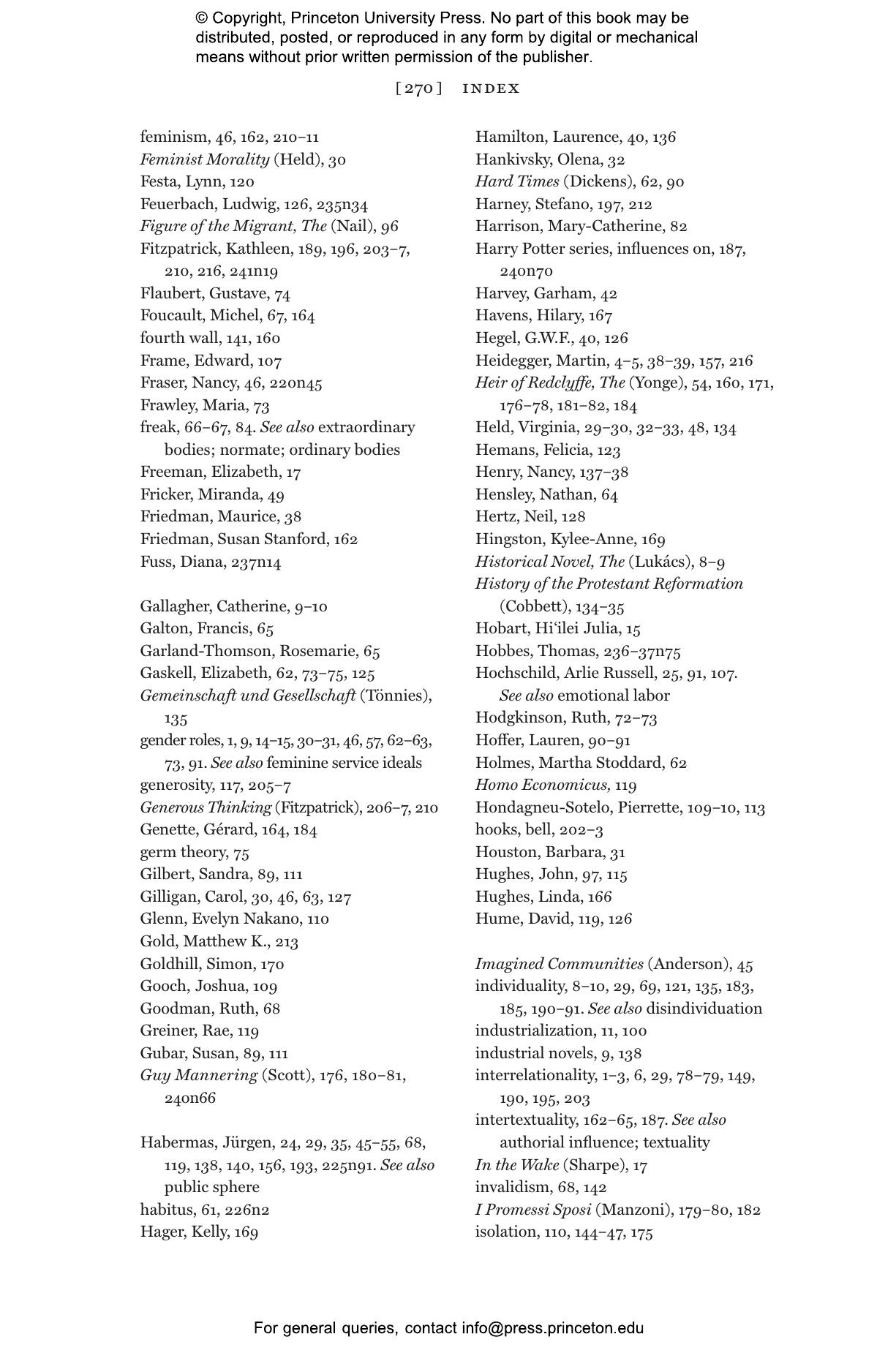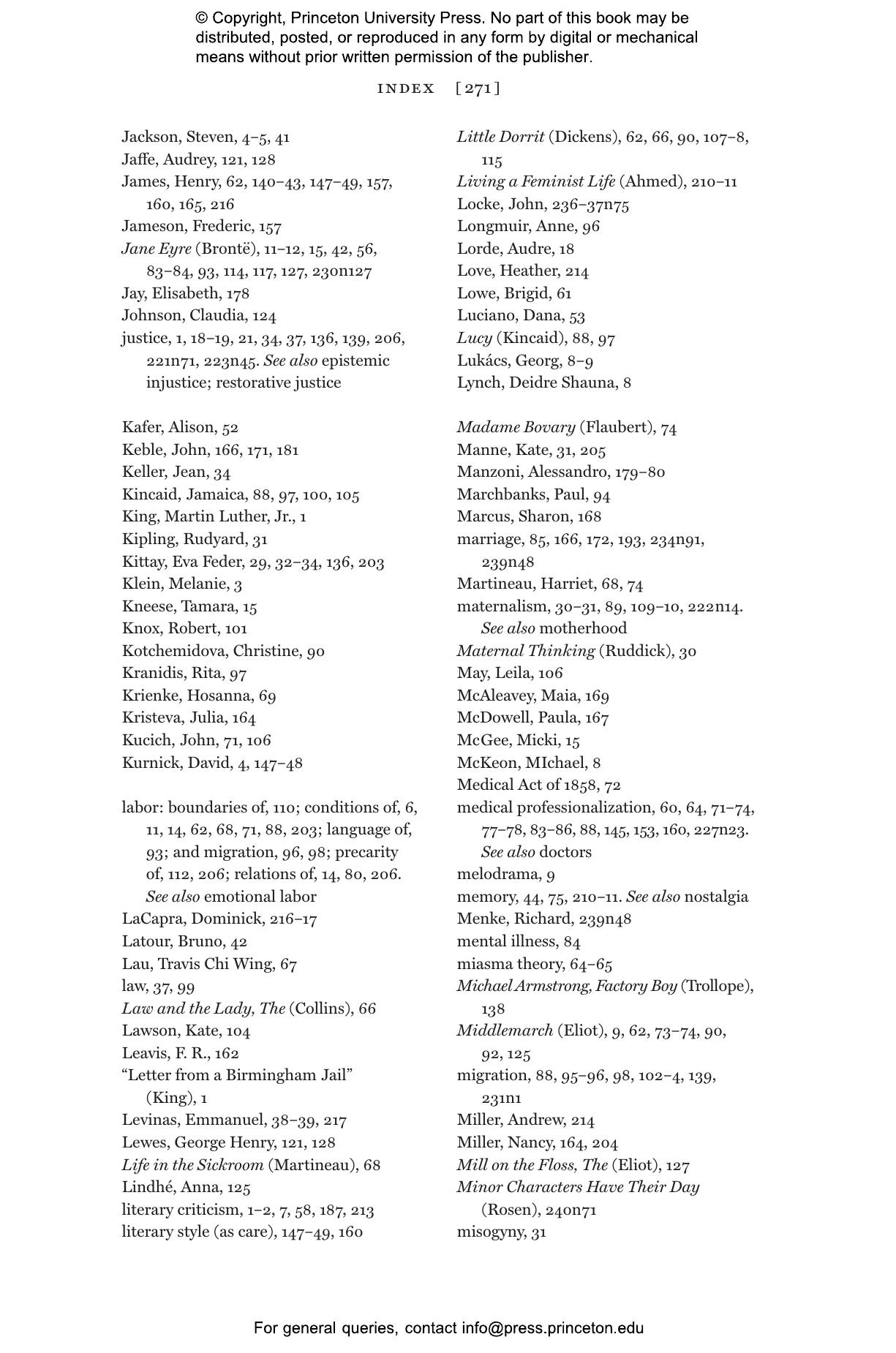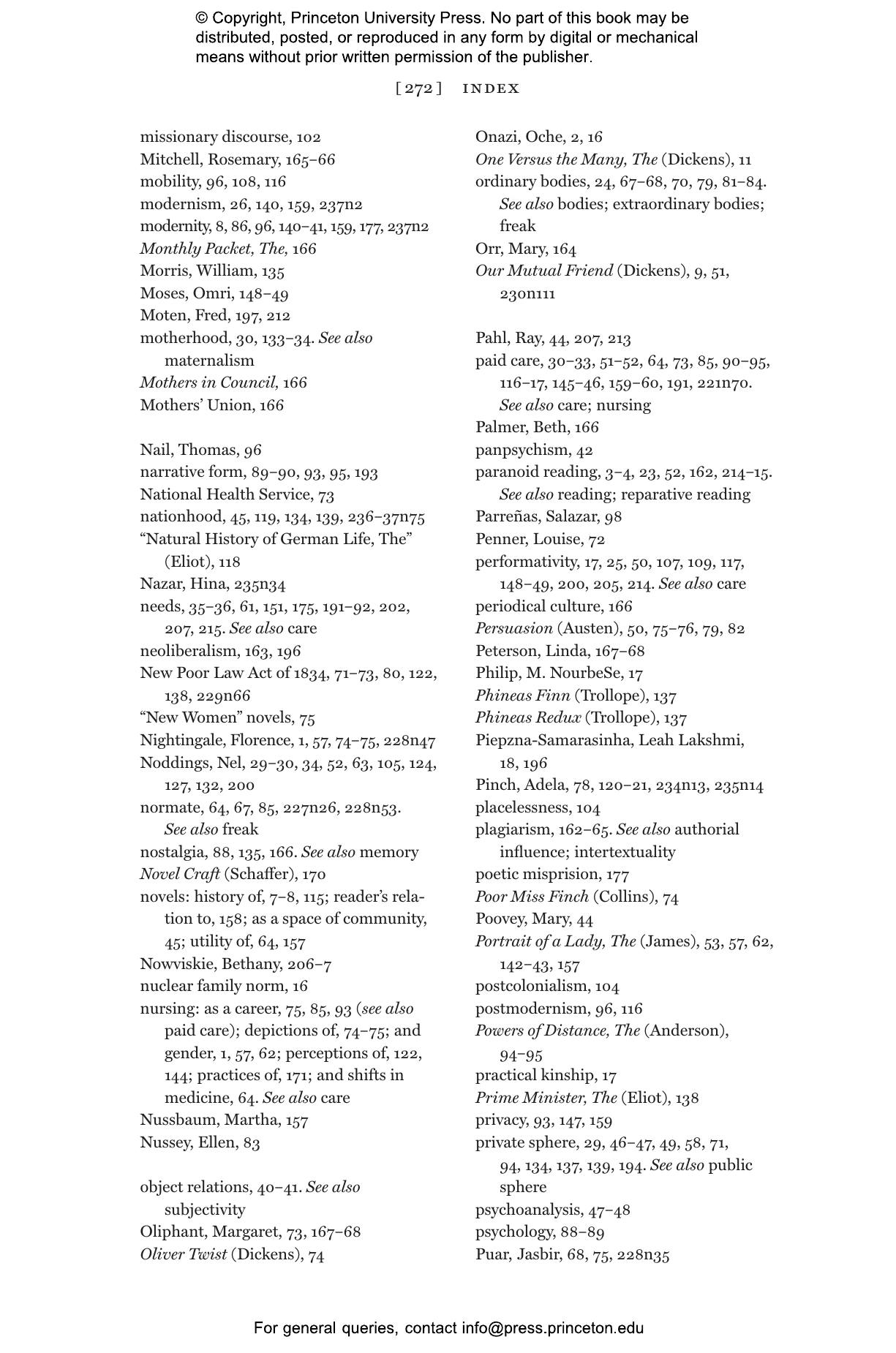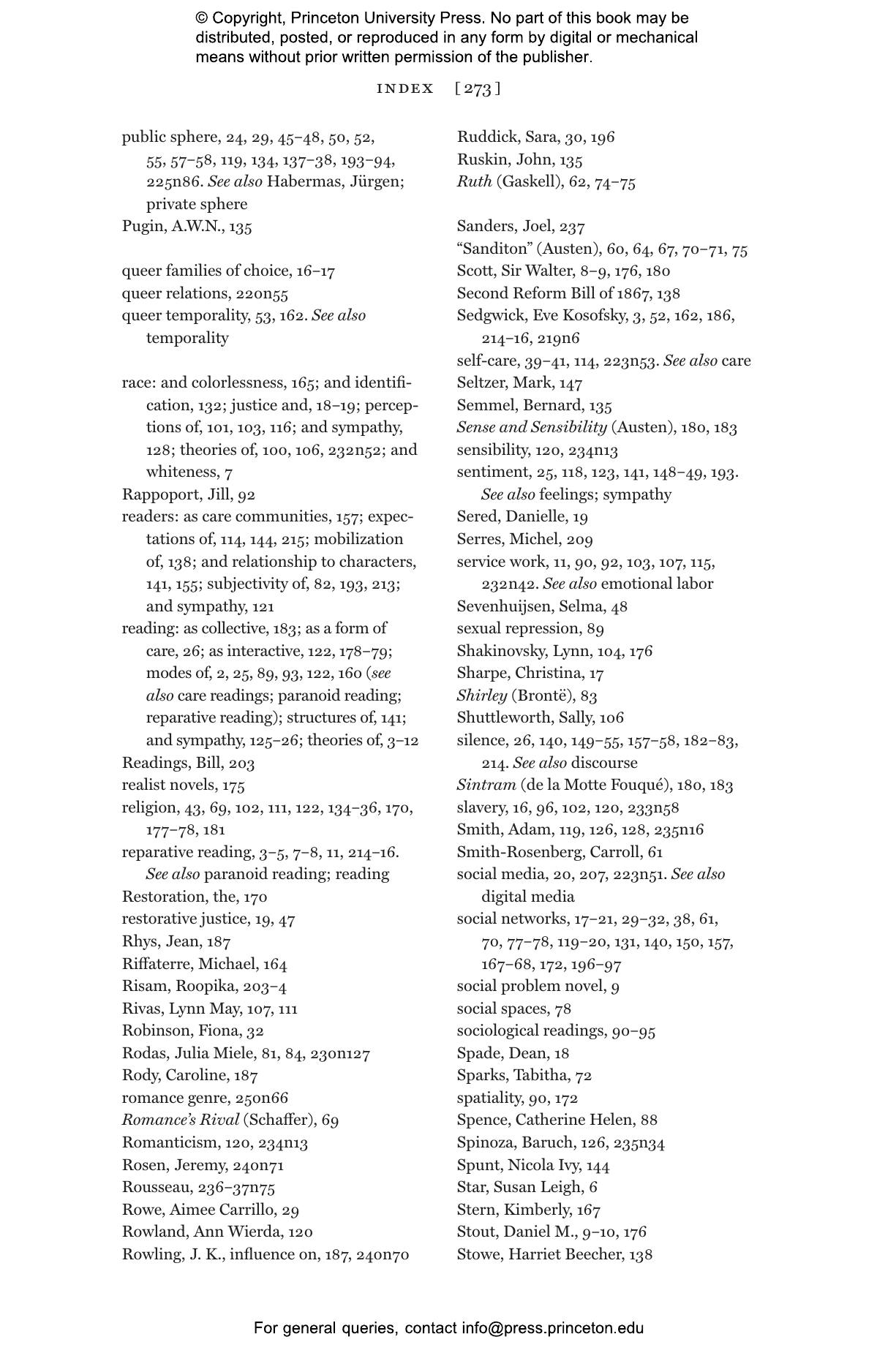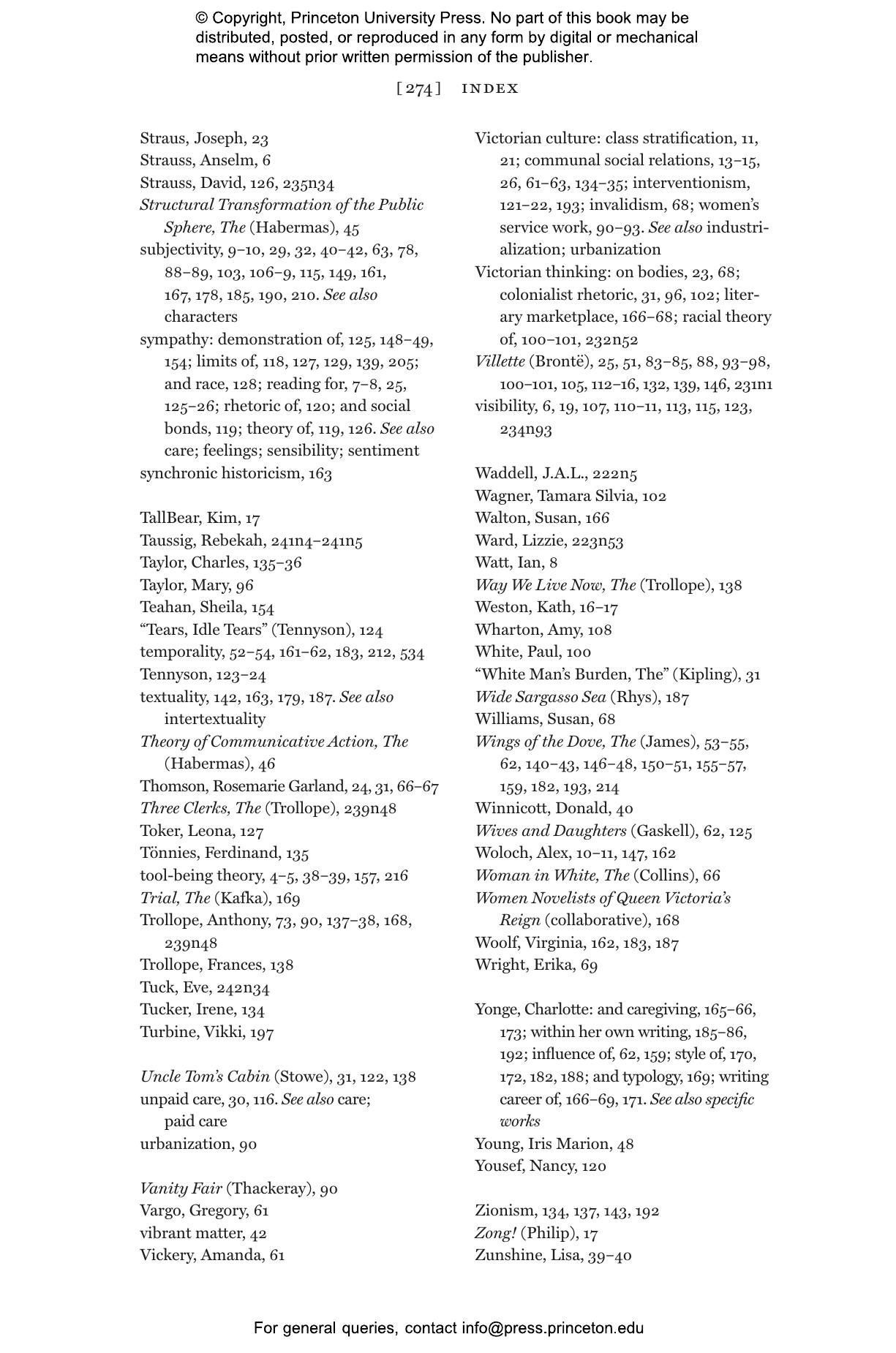In Communities of Care, Talia Schaffer explores Victorian fictional representations of care communities, small voluntary groups that coalesce around someone in need. Drawing lessons from Victorian sociality, Schaffer proposes a theory of communal care and a mode of critical reading centered on an ethics of care.
In the Victorian era, medical science offered little hope for cure of illness or disability, and chronic invalidism and lengthy convalescences were common. Small communities might gather around afflicted individuals to minister to their needs and palliate their suffering. Communities of Care examines these groups in the novels of Jane Austen, Charlotte Brontë, Charles Dickens, George Eliot, Henry James, and Charlotte Yonge, and studies the relationships that they exemplify. How do carers become part of the community? How do they negotiate status? How do caring emotions develop? And what does it mean to think of care as an activity rather than a feeling? Contrasting the Victorian emphasis on community and social structure with modern individualism and interiority, Schafferâs sympathetic readings draw us closer to the worldview from which these novels emerged. Schaffer also considers the ways in which these models of carework could inform and improve practice in criticism, in teaching, and in our daily lives.
Through the lens of care, Schaffer discovers a vital form of communal relationship in the Victorian novel. Communities of Care also demonstrates that literary criticism done well is the best care that scholars can give to texts.
Awards and Recognition
- Winner of the Literary Encyclopedia Book Prize
- Honorable Mention for North American Victorian Studies Association Best Book Award
"It is not often that a literary critic working in a historical period writes such a timely book. . . . Schaffer shows in a practical way how we can use our skills as literary scholars to effect the kinds of changes in academic life that we want to see."âRachael Scarborough King, Los Angeles Review of Books
"A groundbreaking work. . . . Schaffer’s explanation of reparative reading and discussion of what care ethics means to readers and thinkers in the present gives this study relevance beyond Victorian studies."âChoice Reviews
"Schafferâs attunement to a historically-informed understanding of Victorian caring allows her to recalibrate our understanding of novels we thought we knew well. . . . Communities of Care is truly a book that brings Victorian studies into alignment with some of the pressing issues of our time."âAdela Pinch, Victorian Studies
"A rare academic book that provides a fresh approach to Victorian literature. . . . [Communities of Care is] capacious, smart, and engaging."âCatherine J. Golden, Tulsa Studies in Womenâs Literature
"Once you read the book, the term care will hit you very differently, and you may find yourself asking whether its usage in a particular context satisfies the ethical criteria Schaffer has proffered."âZarena Aslami, Modern Language Quarterly
"The best critical books afford readers new perspectives not only on familiar nineteenth-century texts, but also on something yet more familiar and perhaps therefore even more in need of a fresh view: their own lives as readers, critics, teachers, colleagues, partners, friends, and parents. Communities of Care: The Social Ethics of Victorian Fiction is such a book."âEmily Allen, Nineteenth-Century Literature
âThrough a bracing combination of philosophical, historical, and literary analysis, Talia Schafferâs Communities of Care reframes our understanding of the social ethics informing Victorian literature and culture. This important and timely book advances an action-based and politically attuned understanding of care, bringing nineteenth-century culture into productive dialogue with contemporary work in feminist philosophy, disability studies, and the sociology of emotional work.ââAmanda Anderson, author of Psyche and Ethos: Moral Life after Psychology
âEqual parts criticism, history, theory, and manifesto, Talia Schafferâs Communities of Care is an eloquent, timely, and durable study that bridges literary worlds past and lived realities present. Sympathy is something we feel, caregiving something we do, and the Victorians did a lot of caring. Through imaginative, nuanced readings of fiction by Jane Austen, George Eliot, Charlotte Brontë, Charles Dickens, Henry James, and Charlotte Yonge, Schaffer offers robust models for how we can live together, in sickness and in health.ââSharon Marcus, author of The Drama of Celebrity
âCommunities of Care draws a productive distinction between care as an emotional state and care as a practical performance. As Schaffer illustrates, the detachment of performance from emotional commitment disentangles care from family relations, throwing us back on the novelâs capacity to imagine a community of care beyond those who are biologically related.ââNancy Armstrong, coauthor of Novels in the Time of Democratic Writing
âCommunities of Care is revelatory. Schaffer writes lucidly, her analyses of literary texts are compelling, and her argument is sustained and clear. Readers will draw inspiration and an alternative methodology from this book.ââCarolyn Betensky, University of Rhode Island
âCommunities of Care is pressing and timely, pointing to new directions and practical applications. Cogent and clearly written, it is as thoughtful and careful as it is intellectually rigorous.ââRebecca N. Mitchell, University of Birmingham



